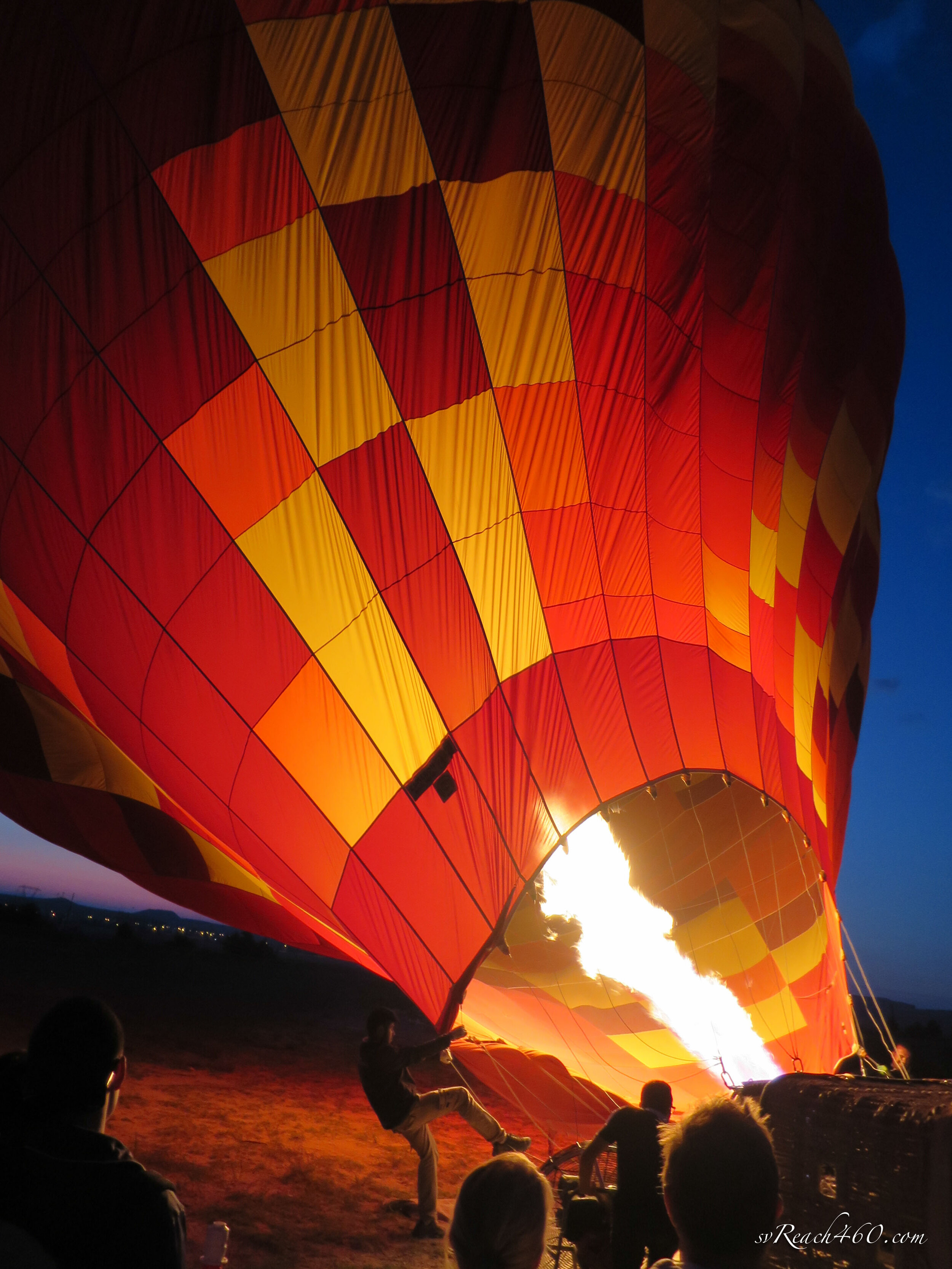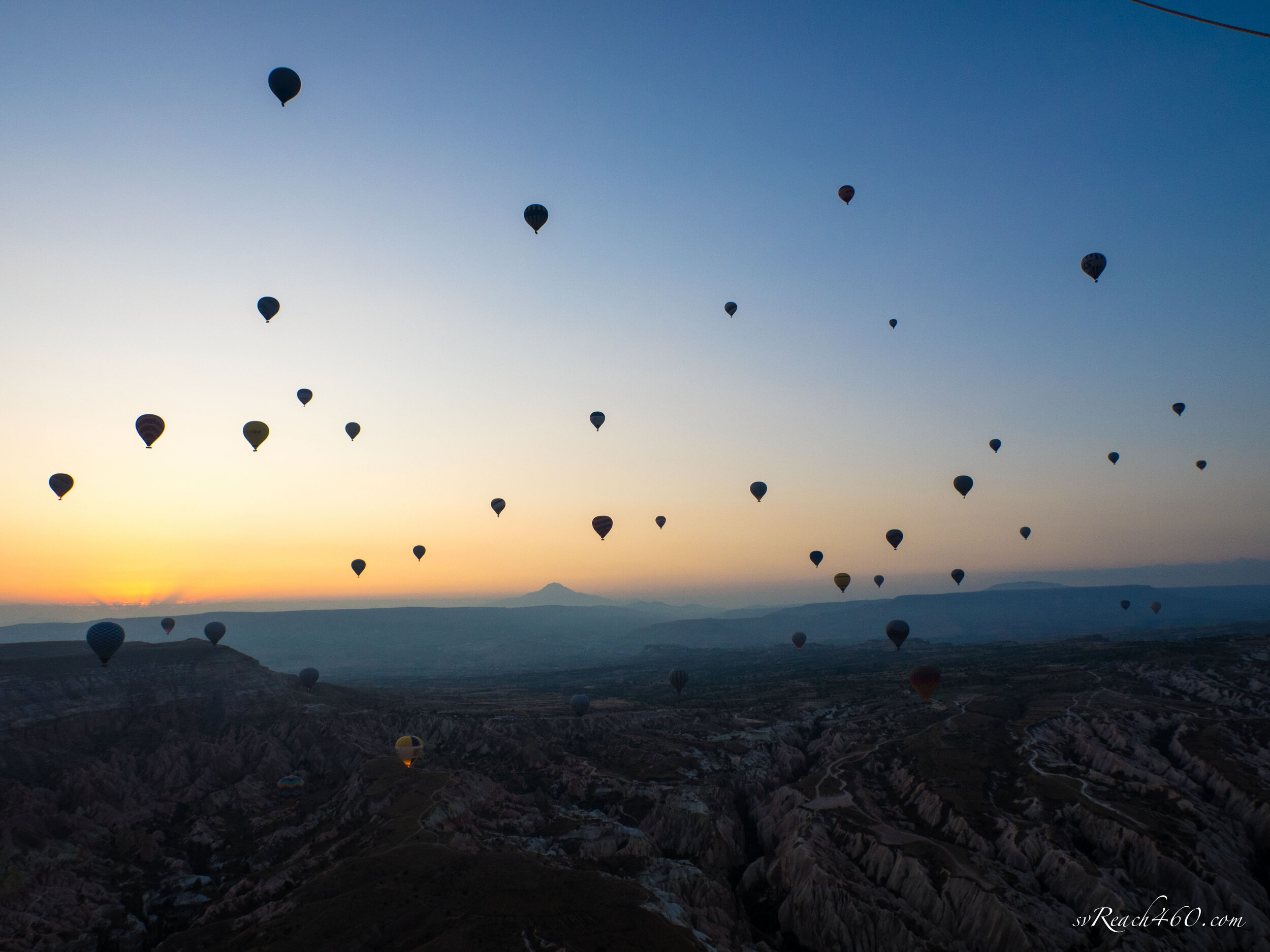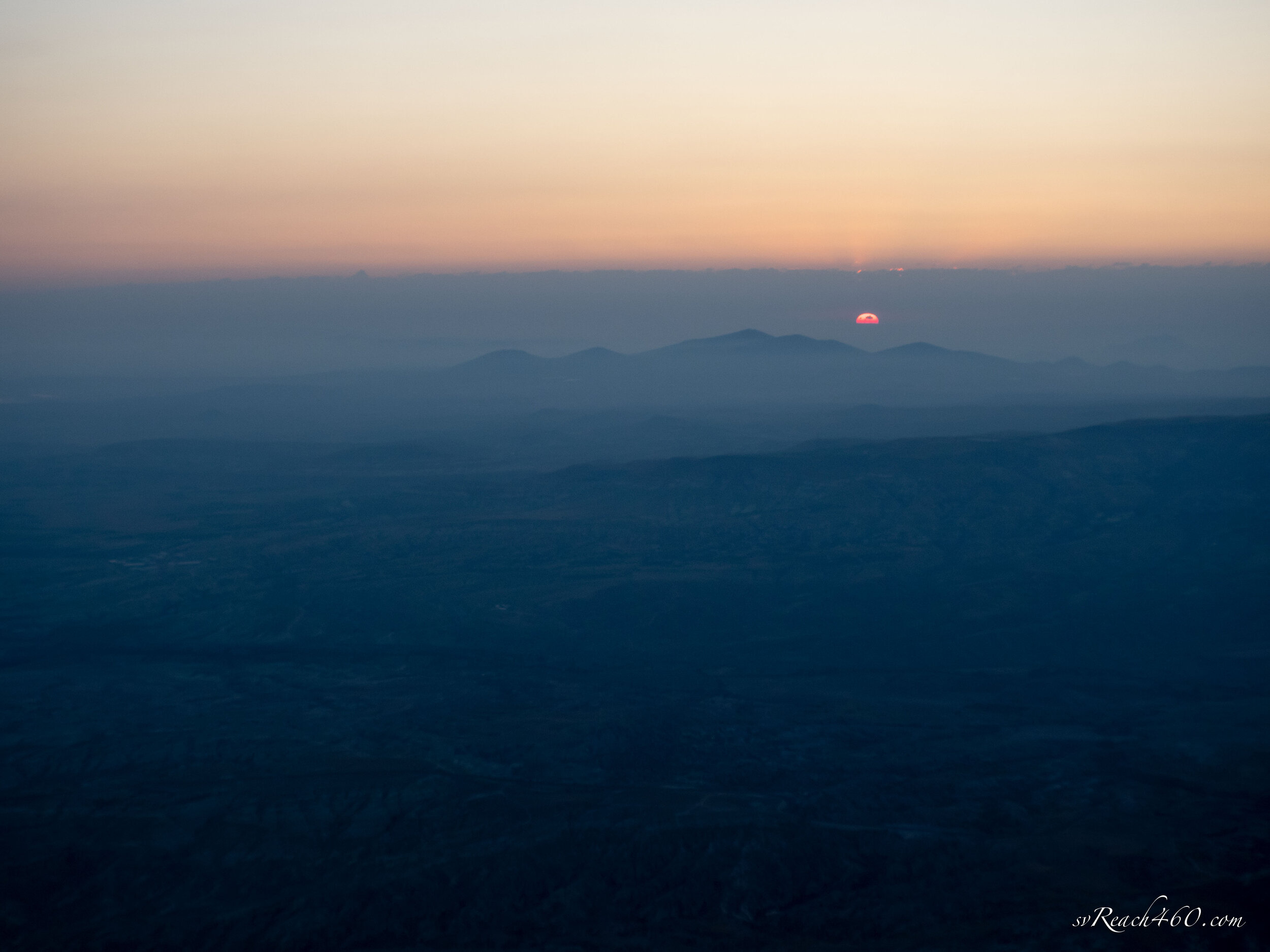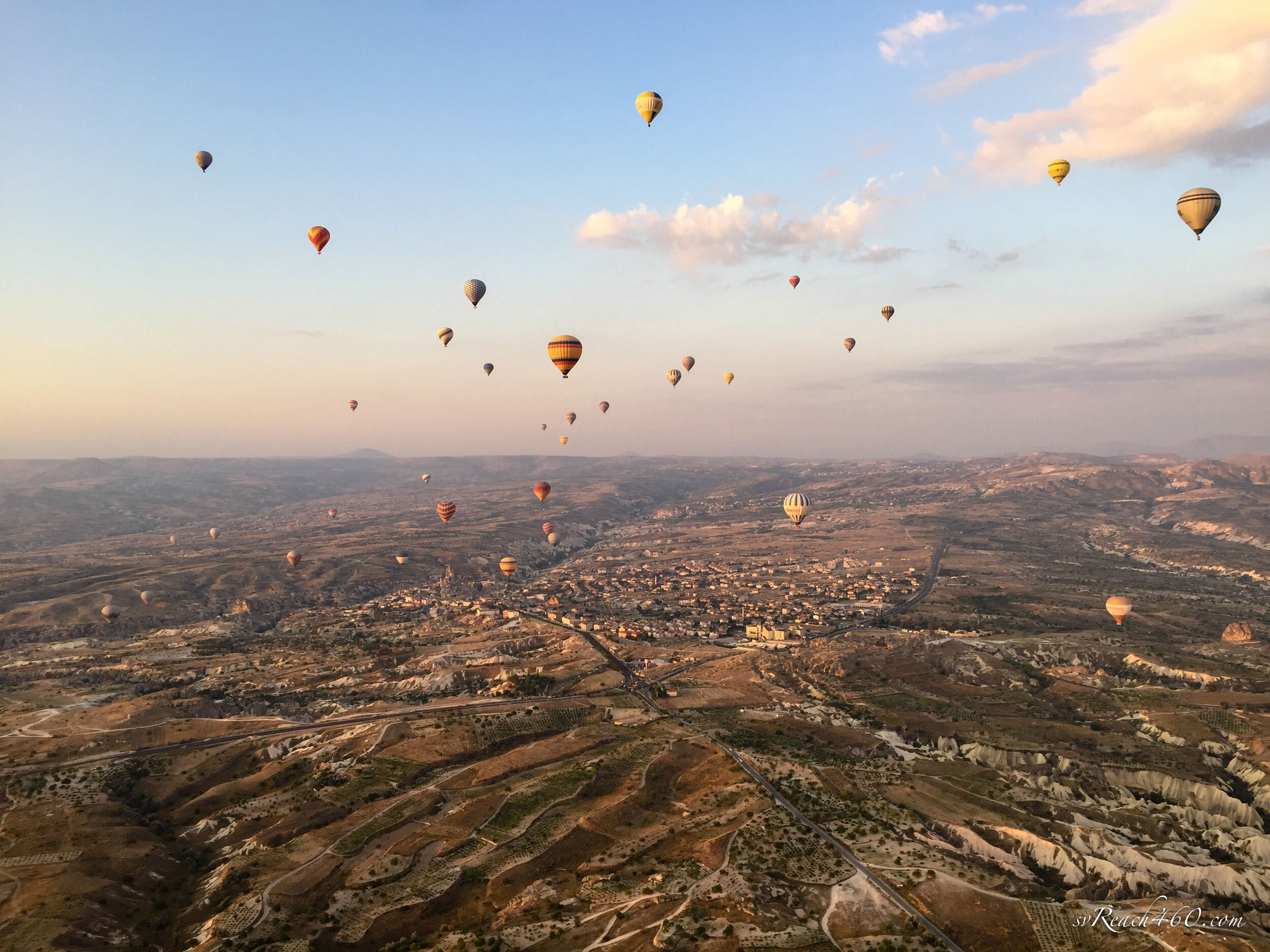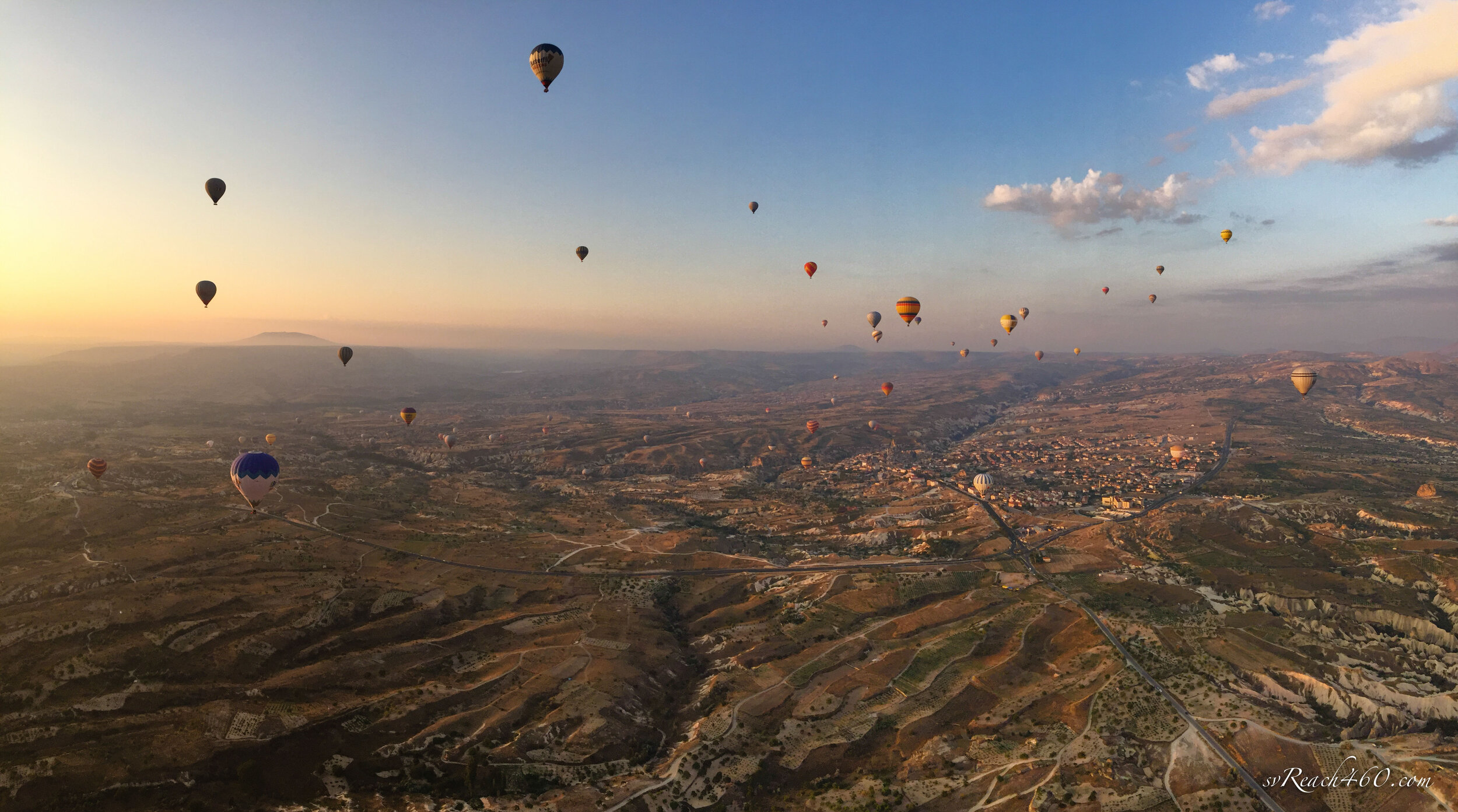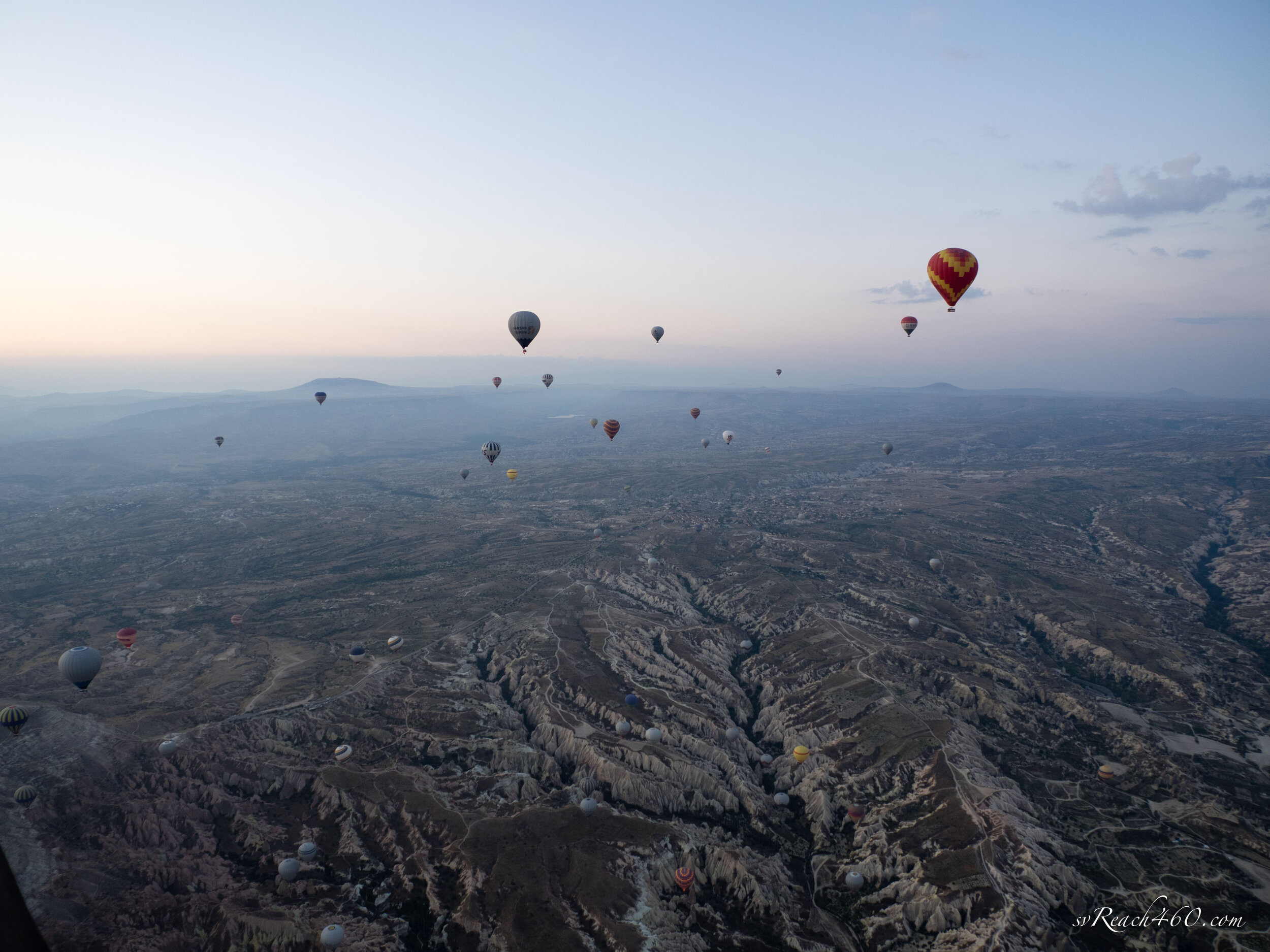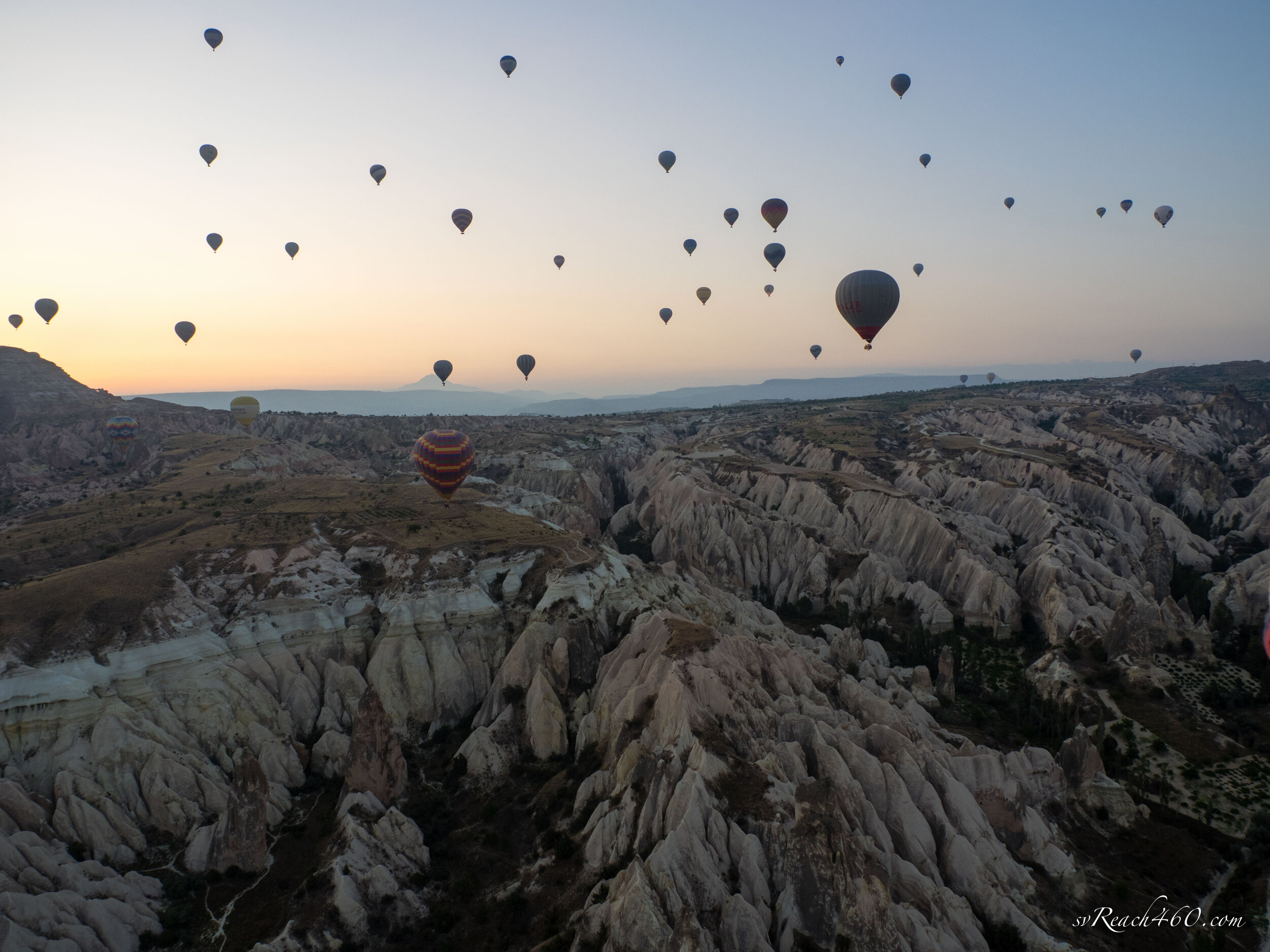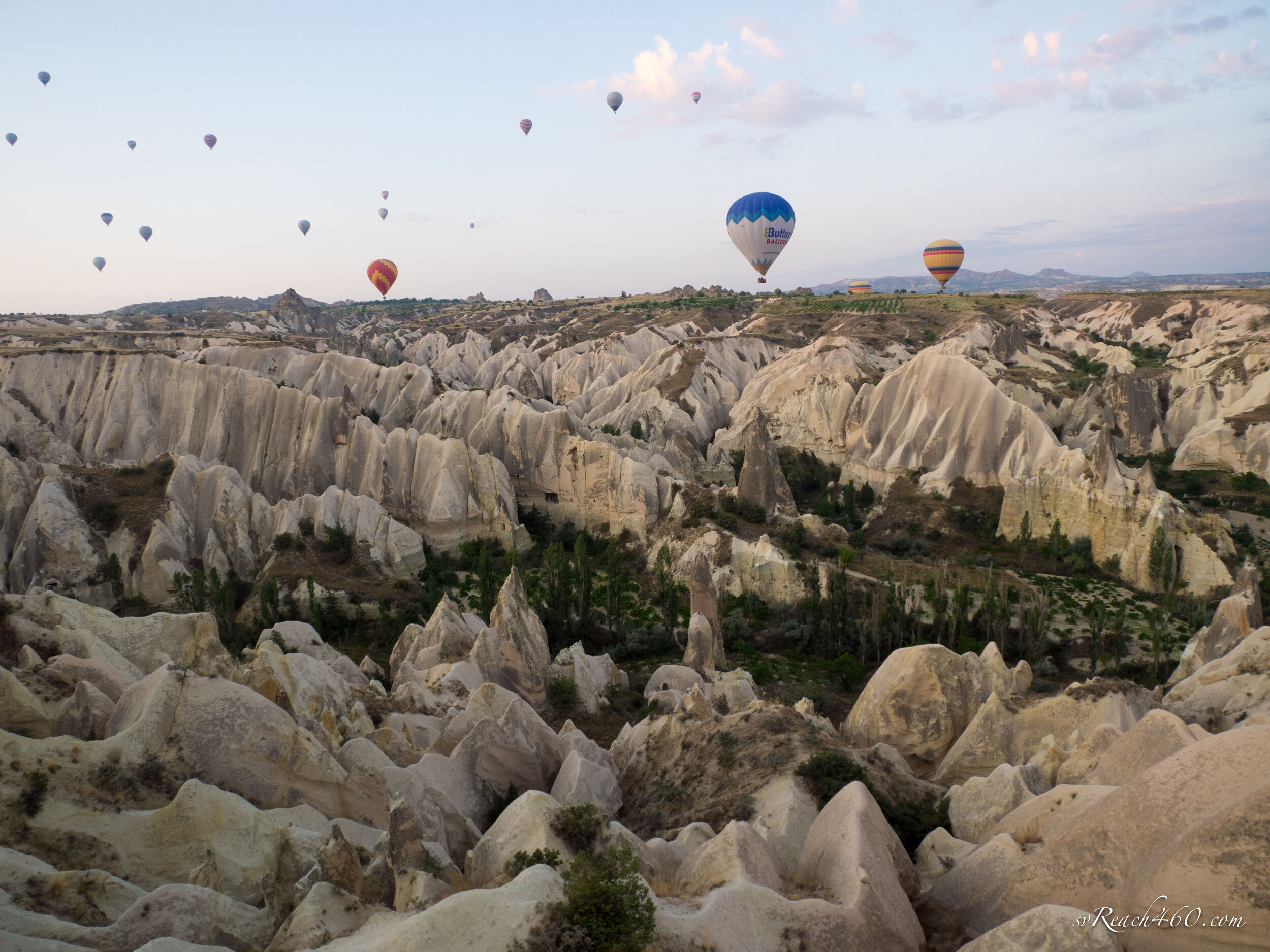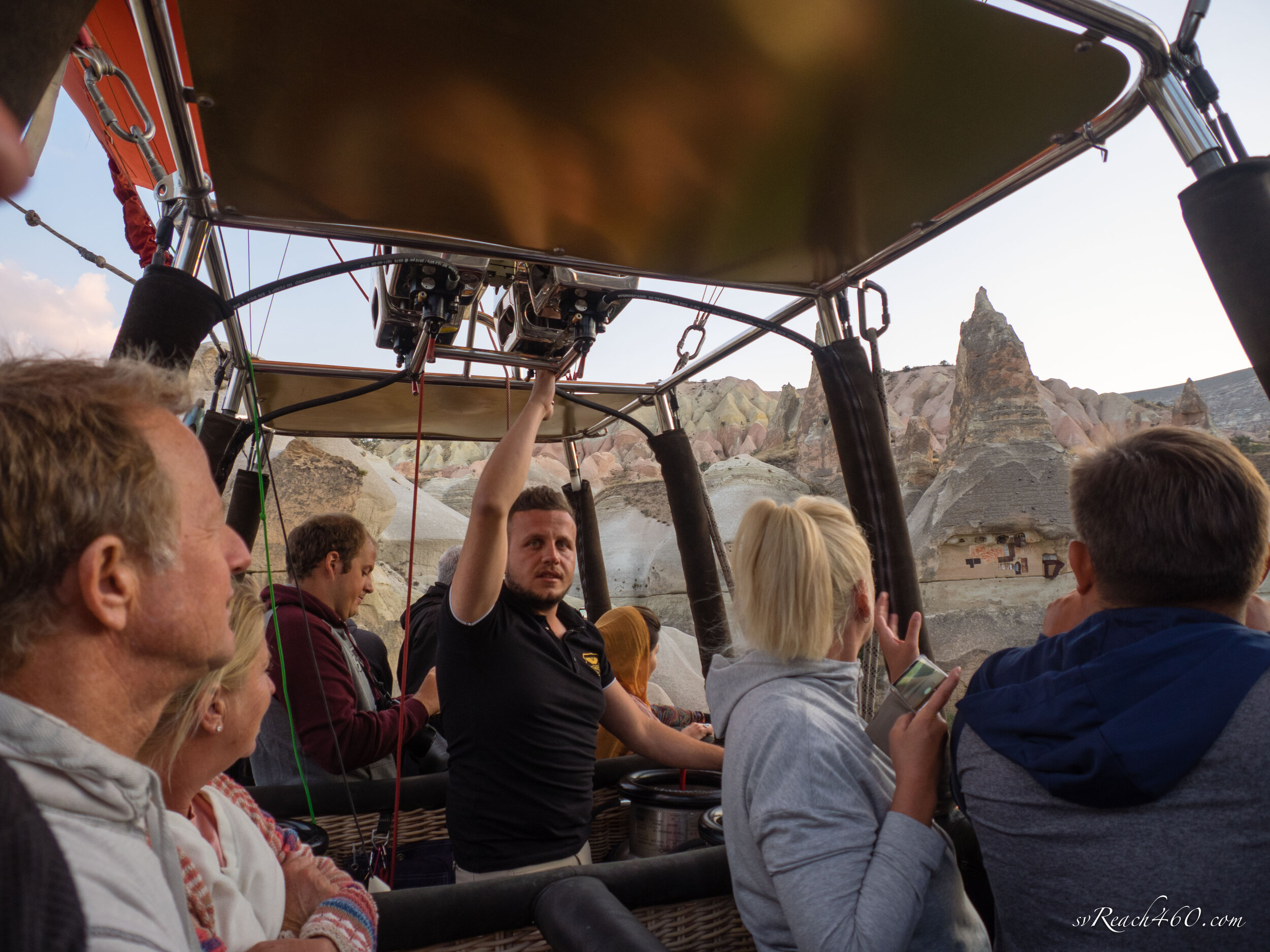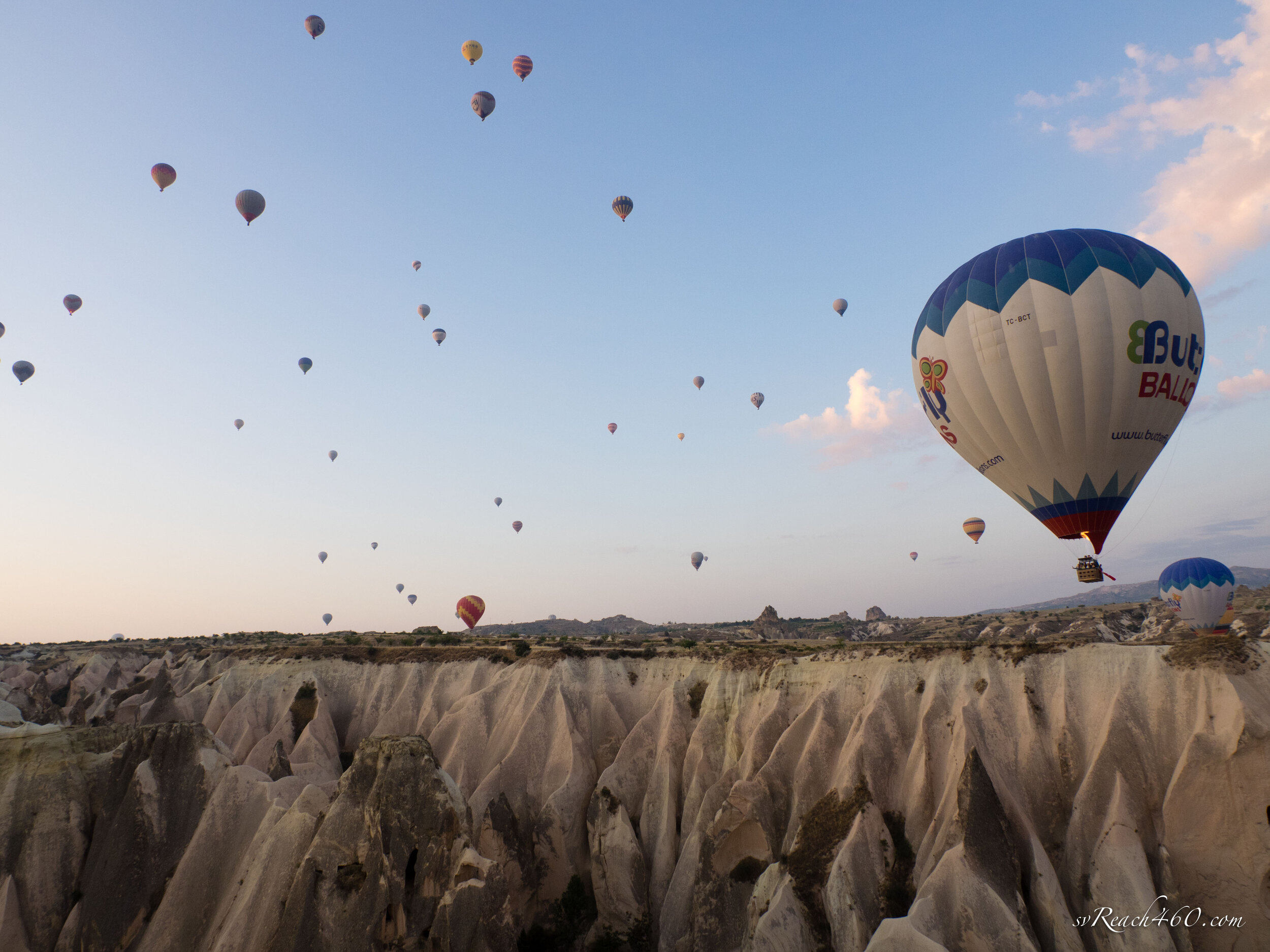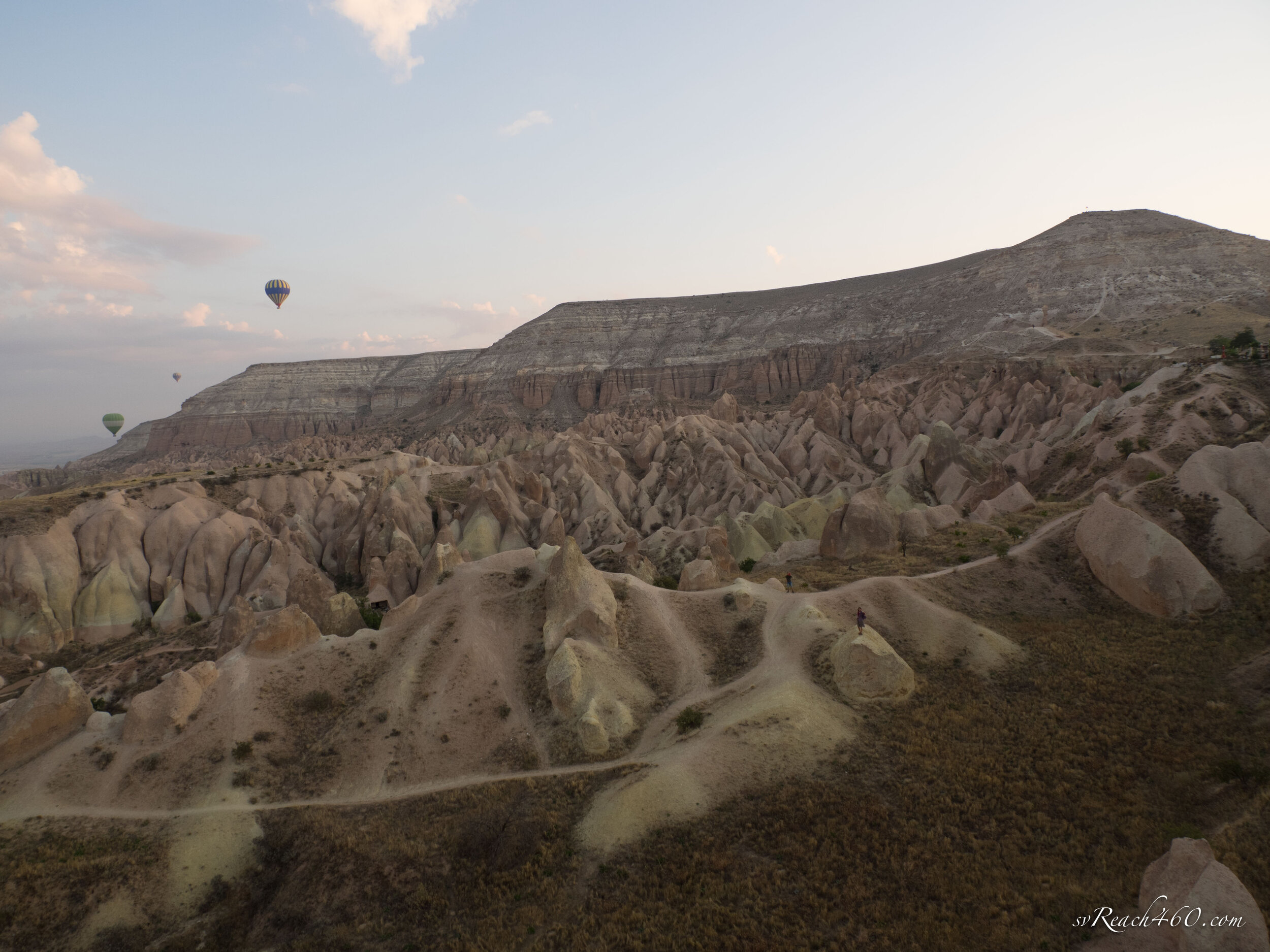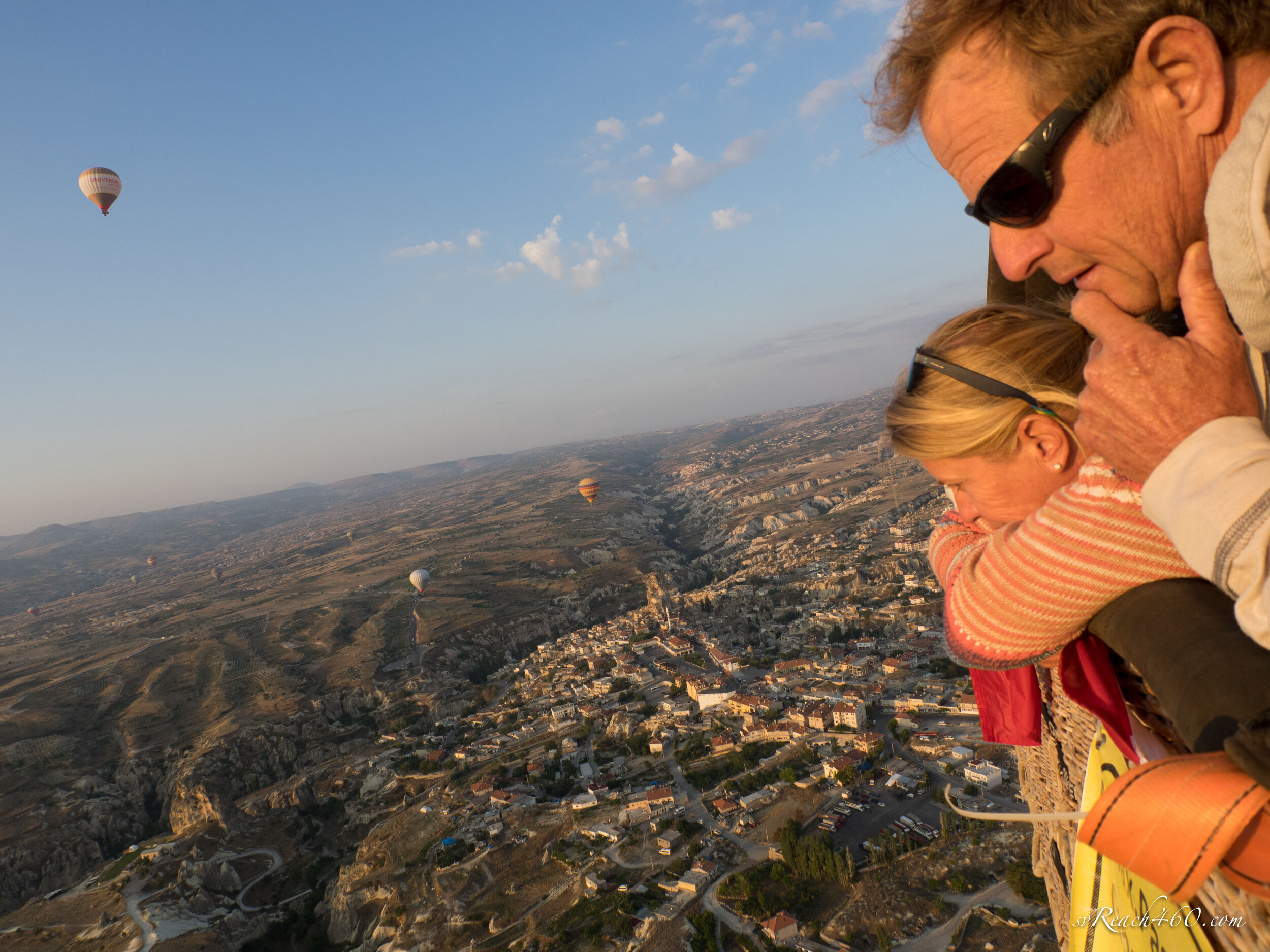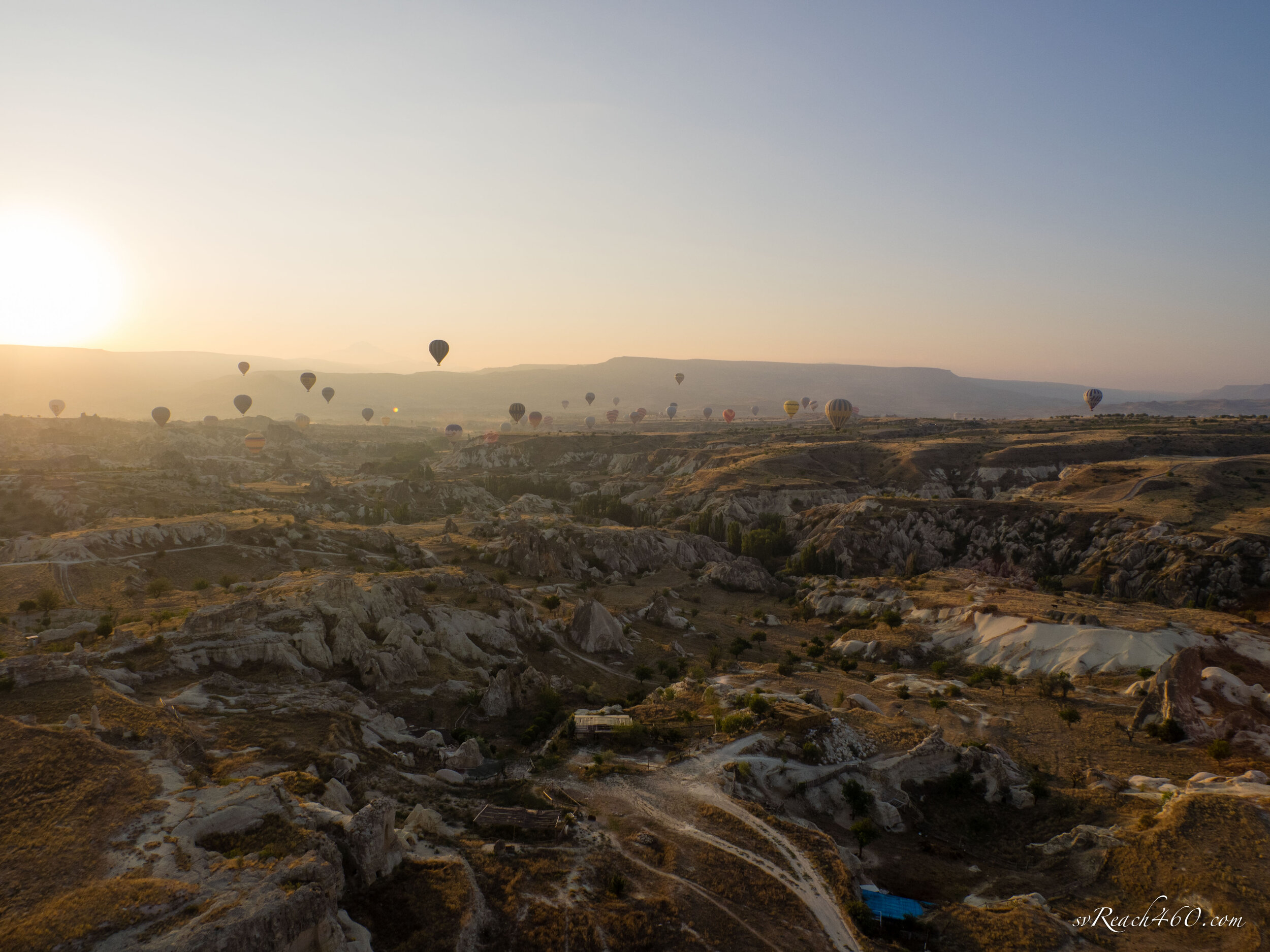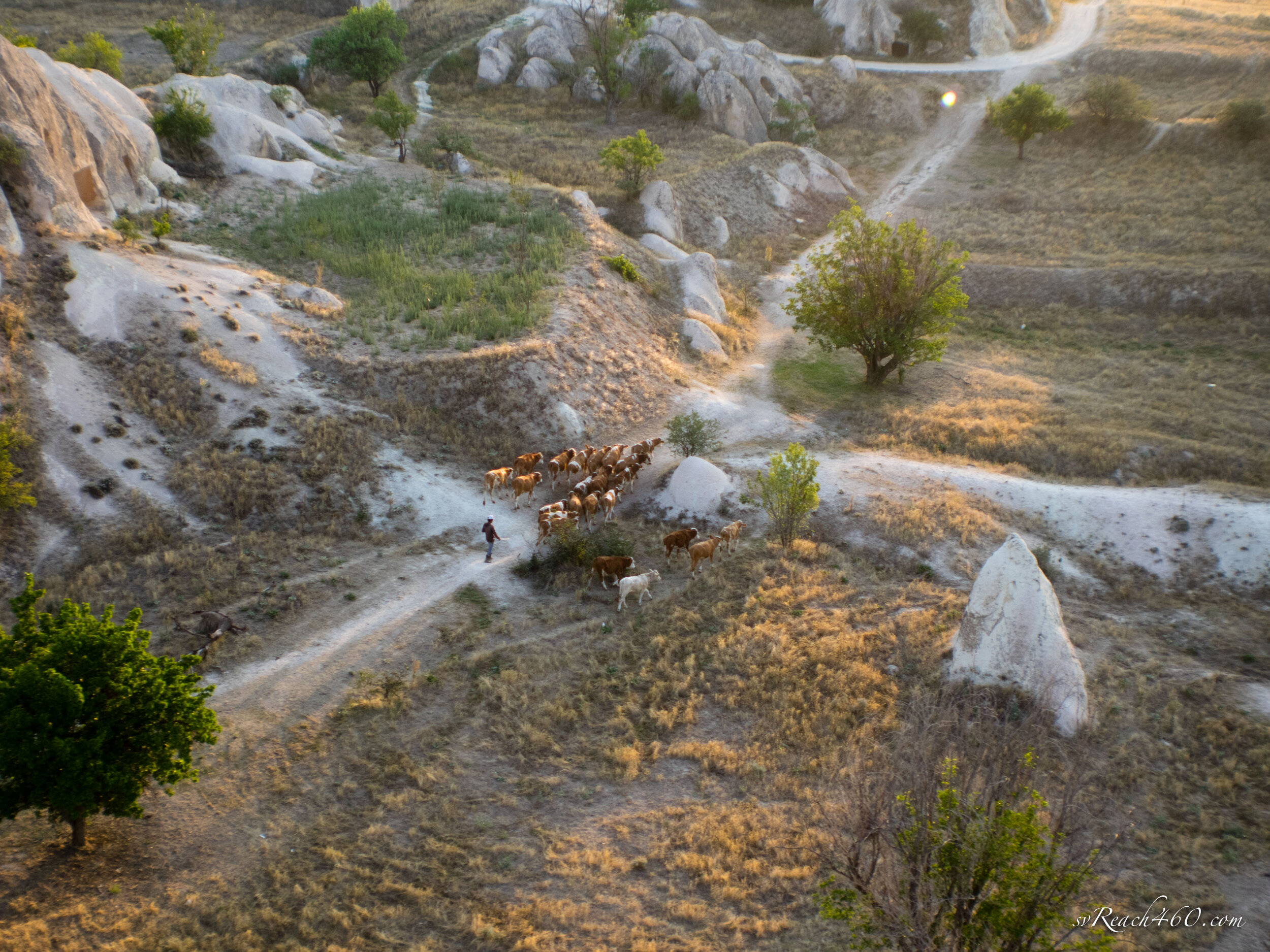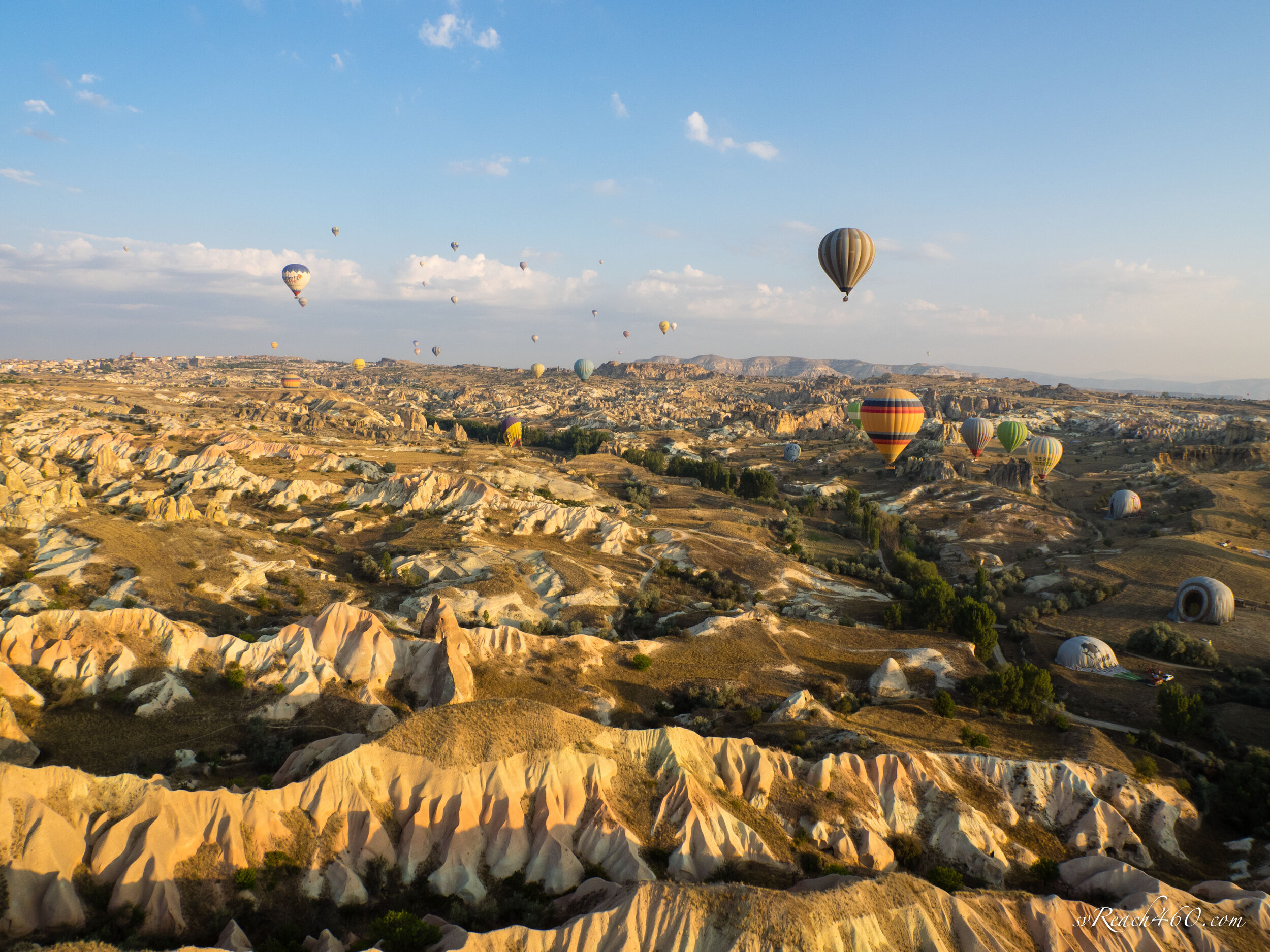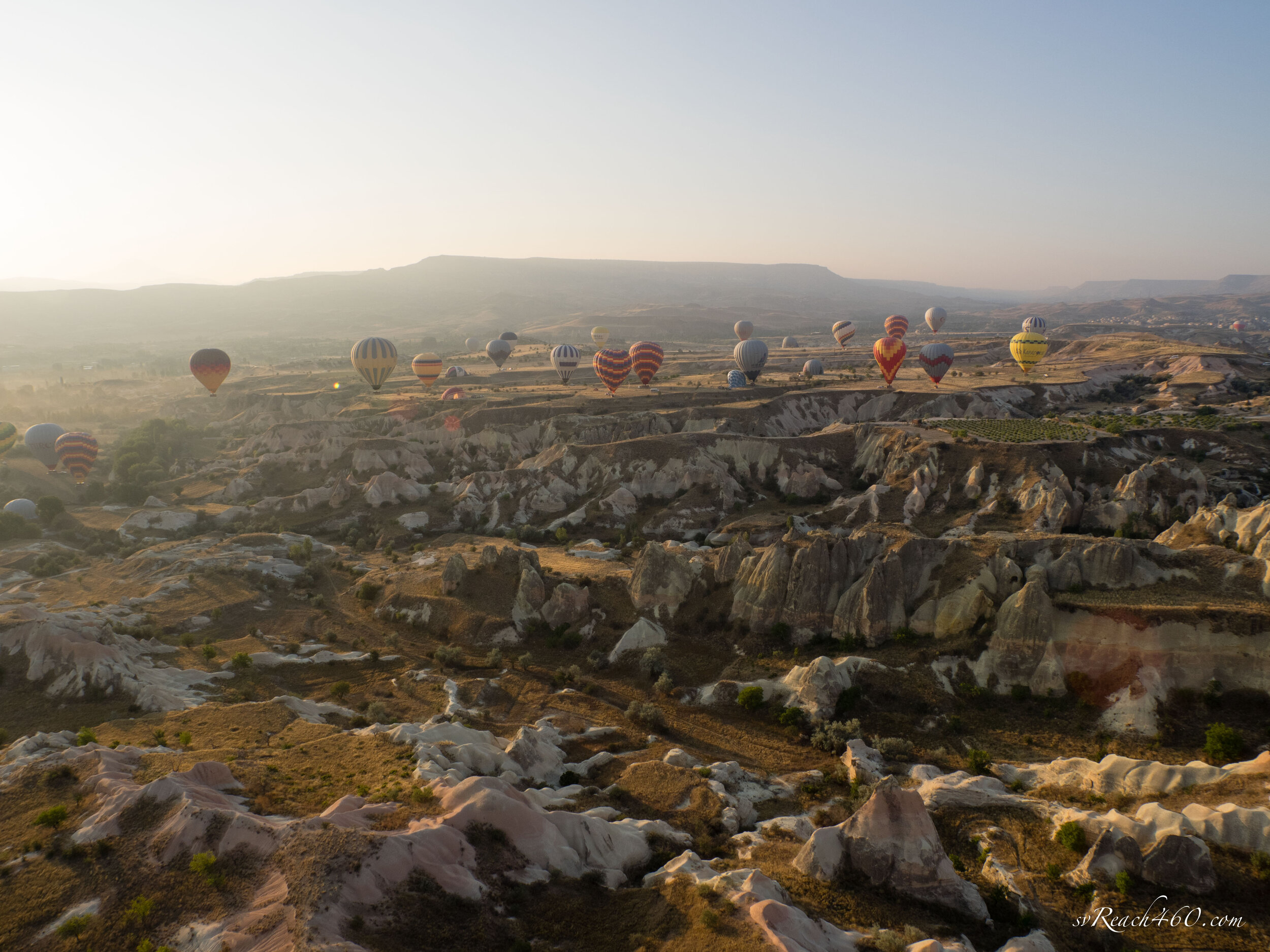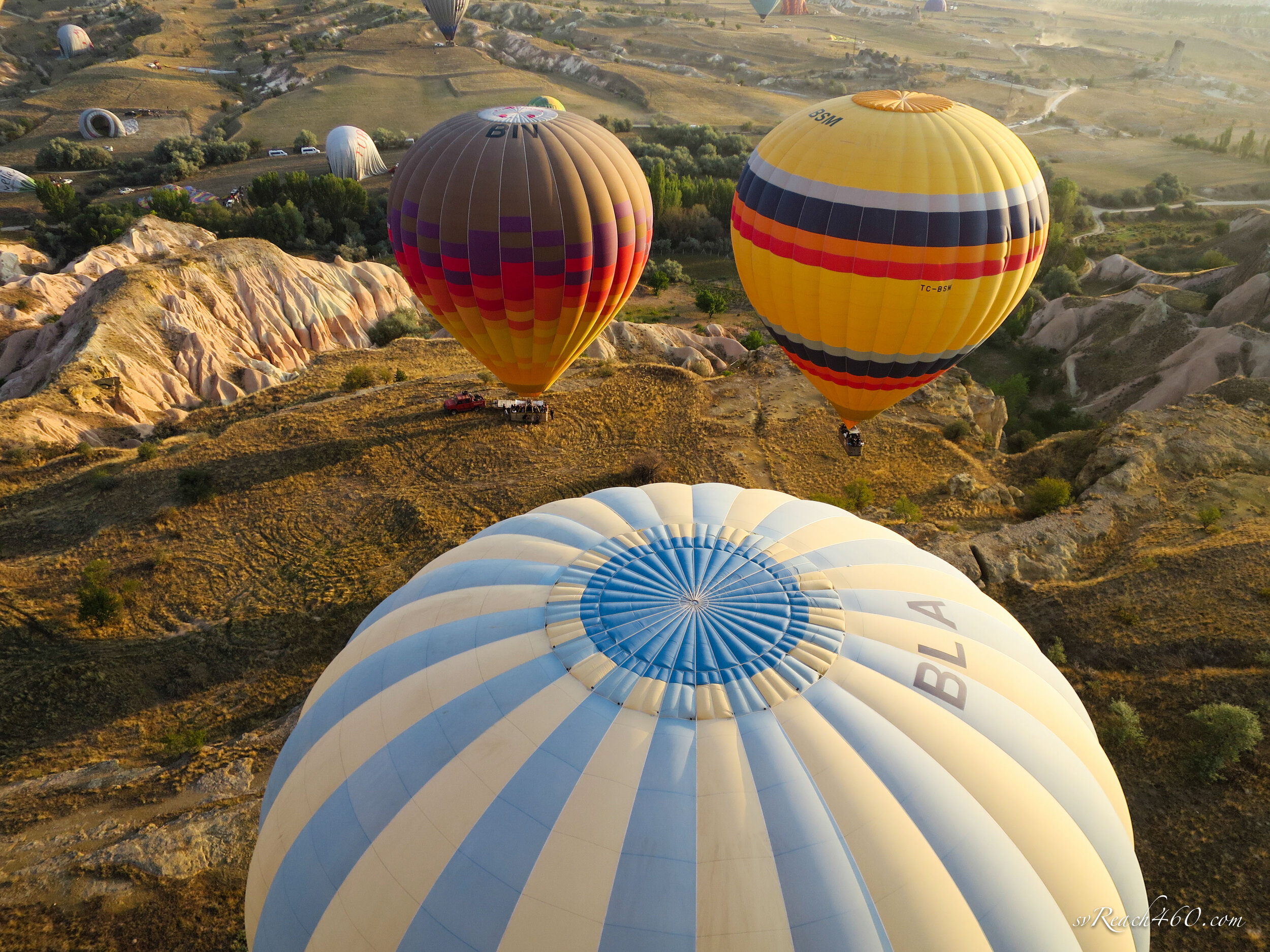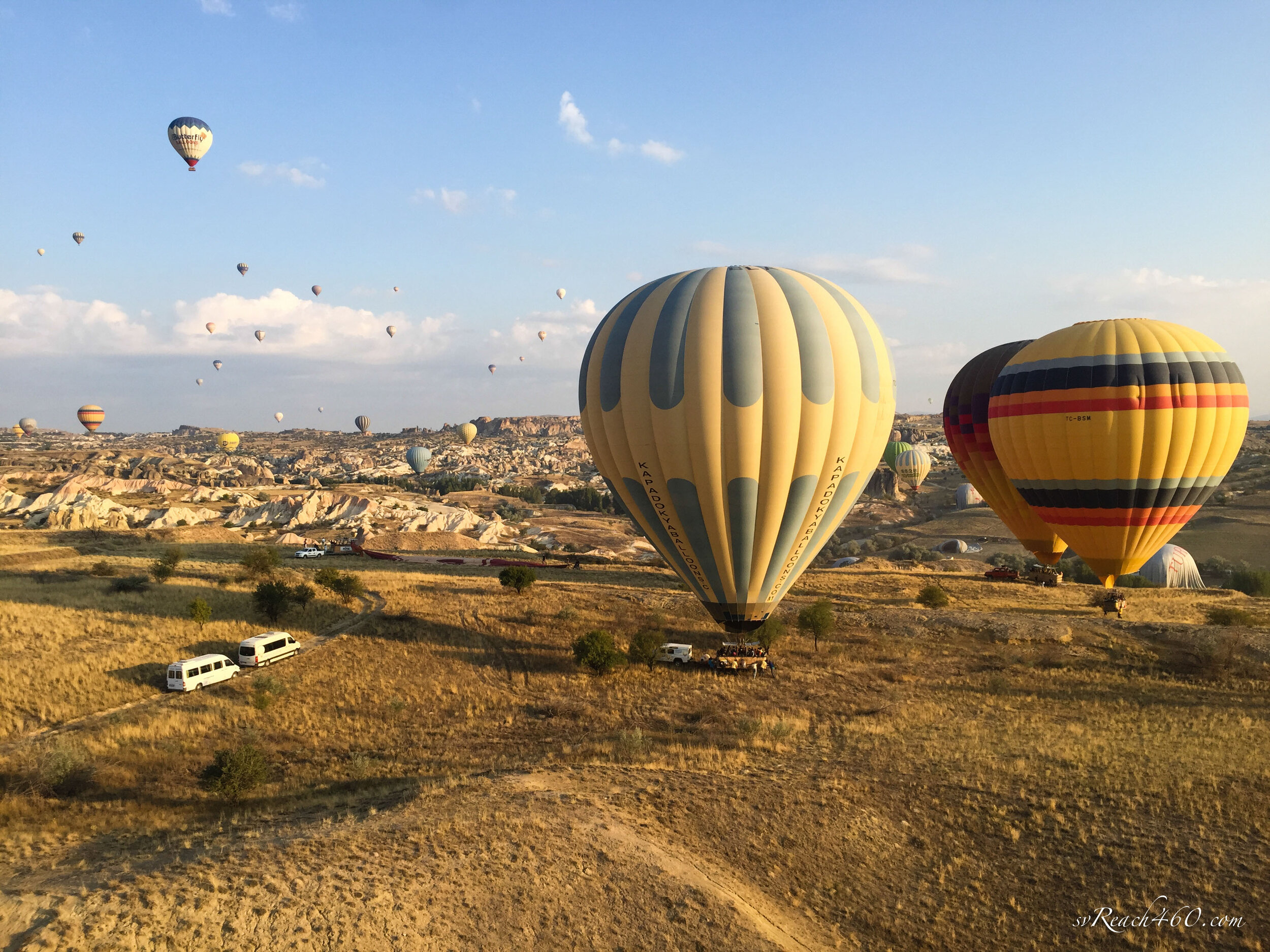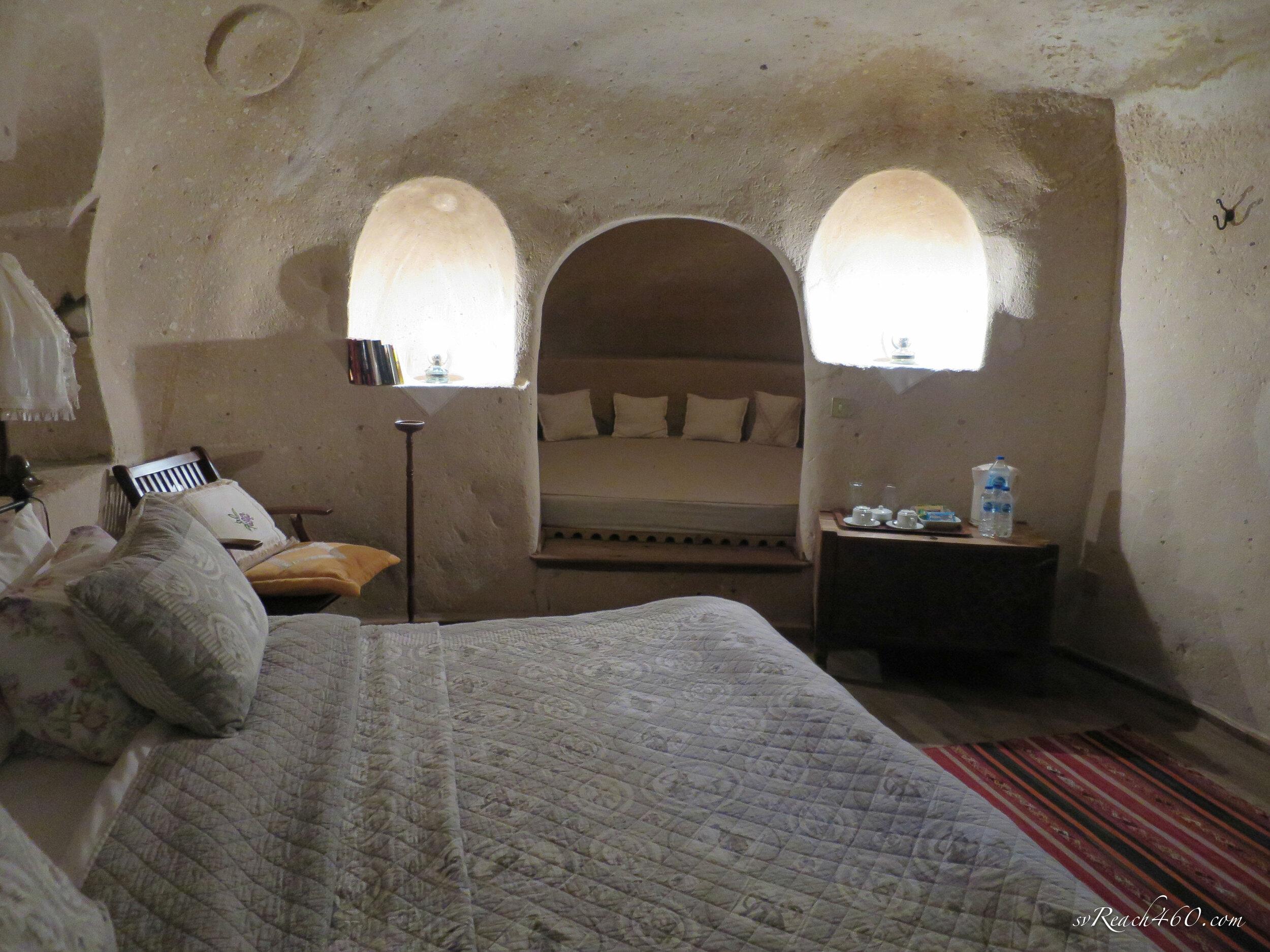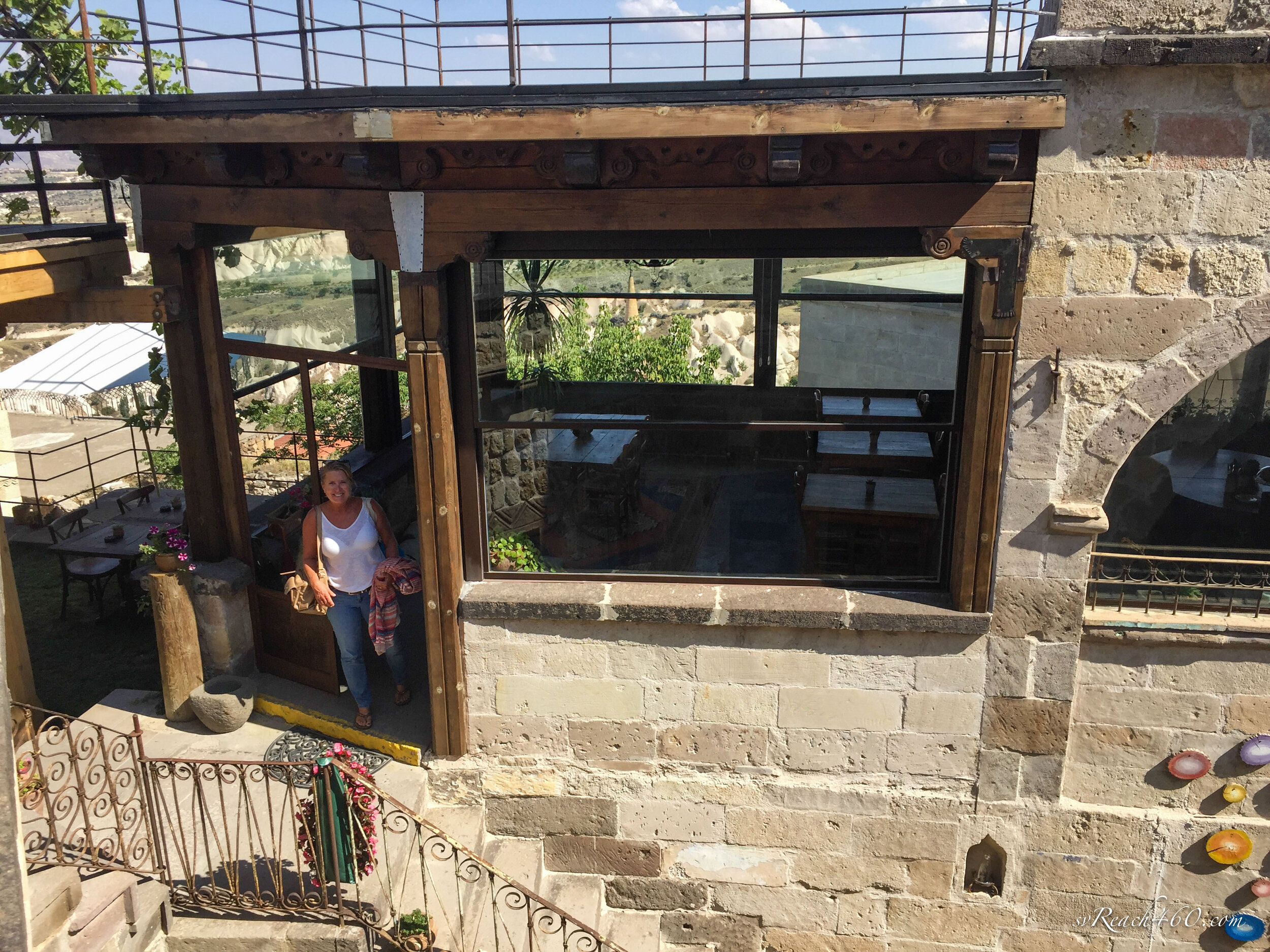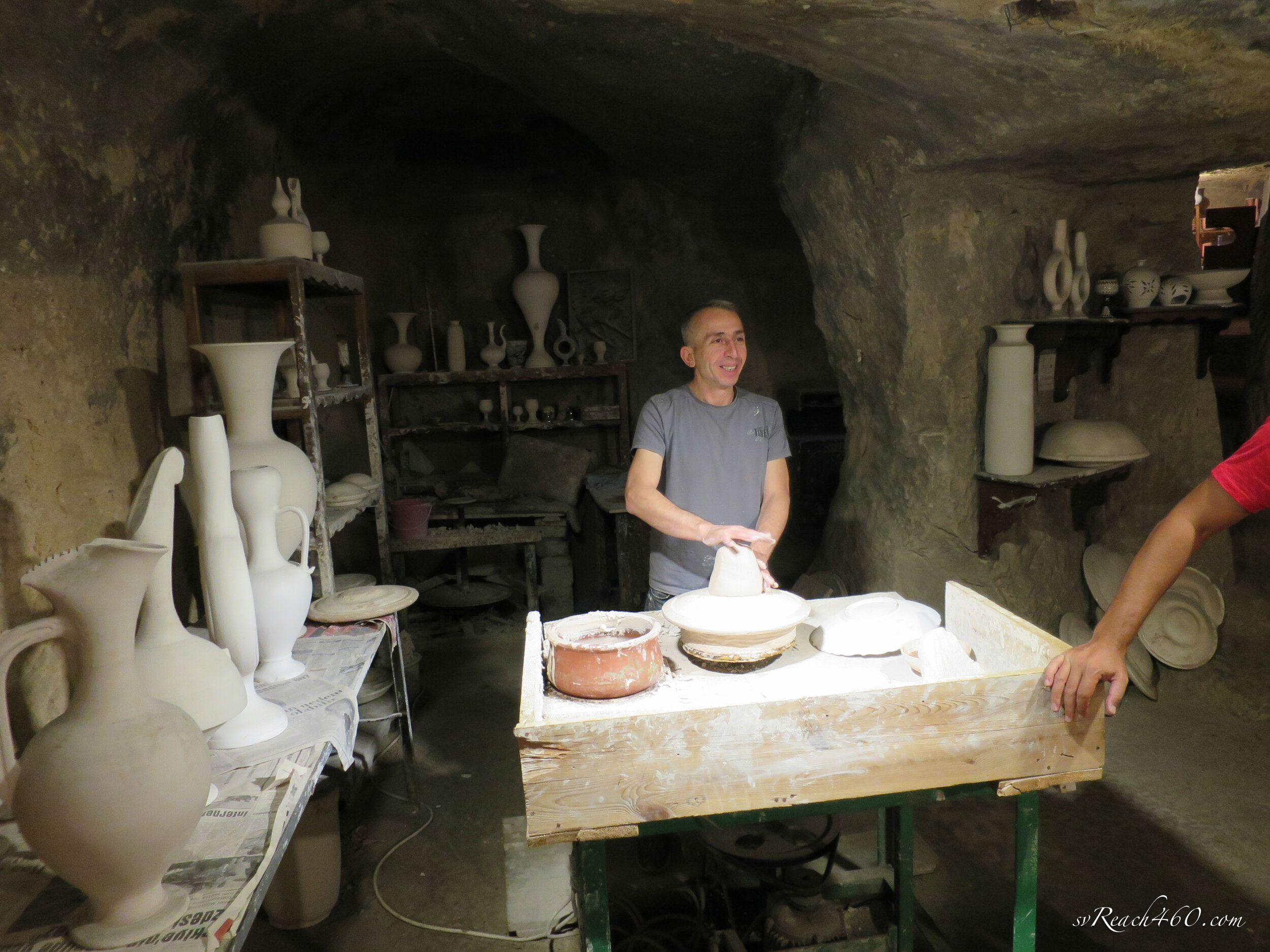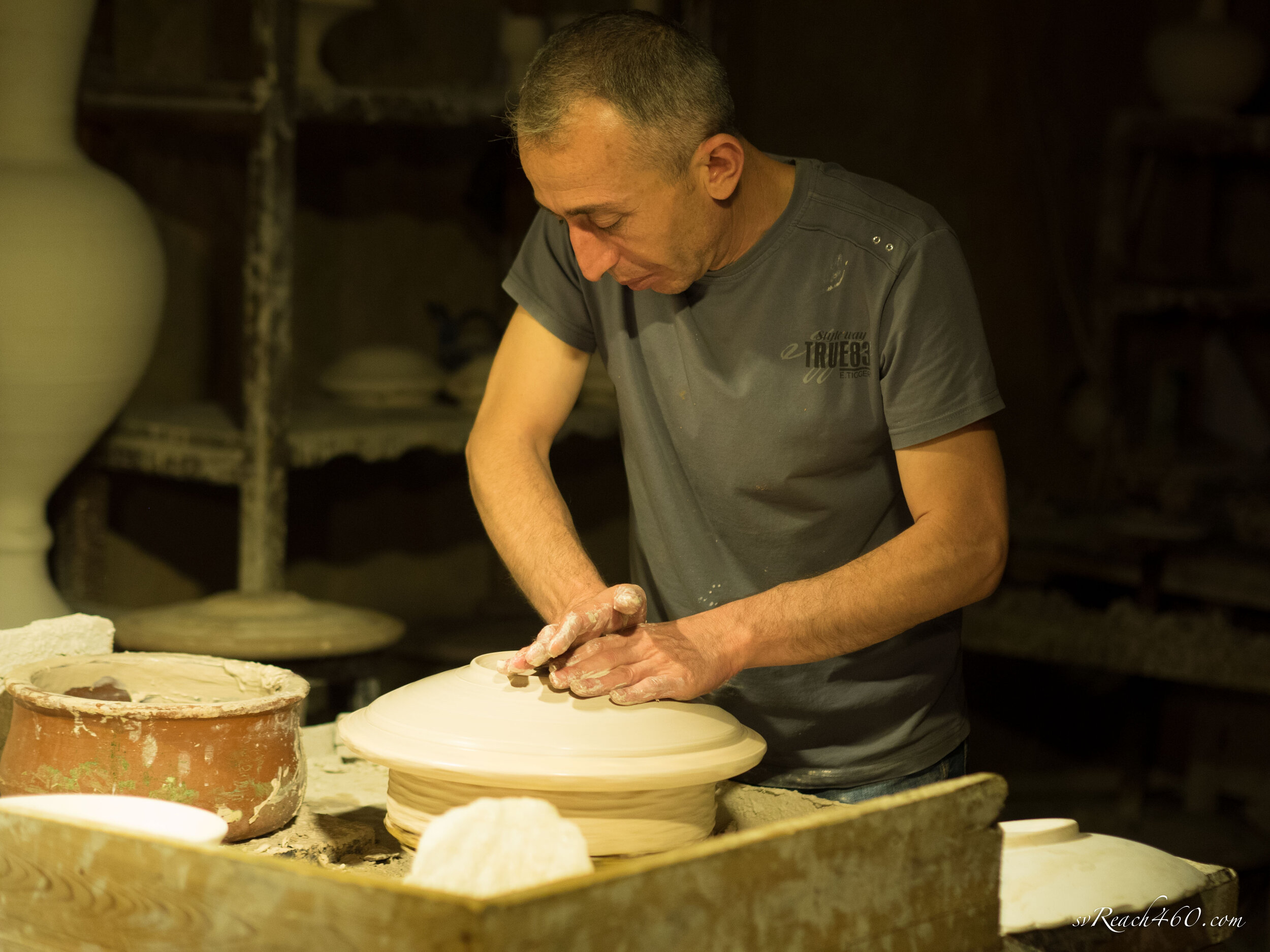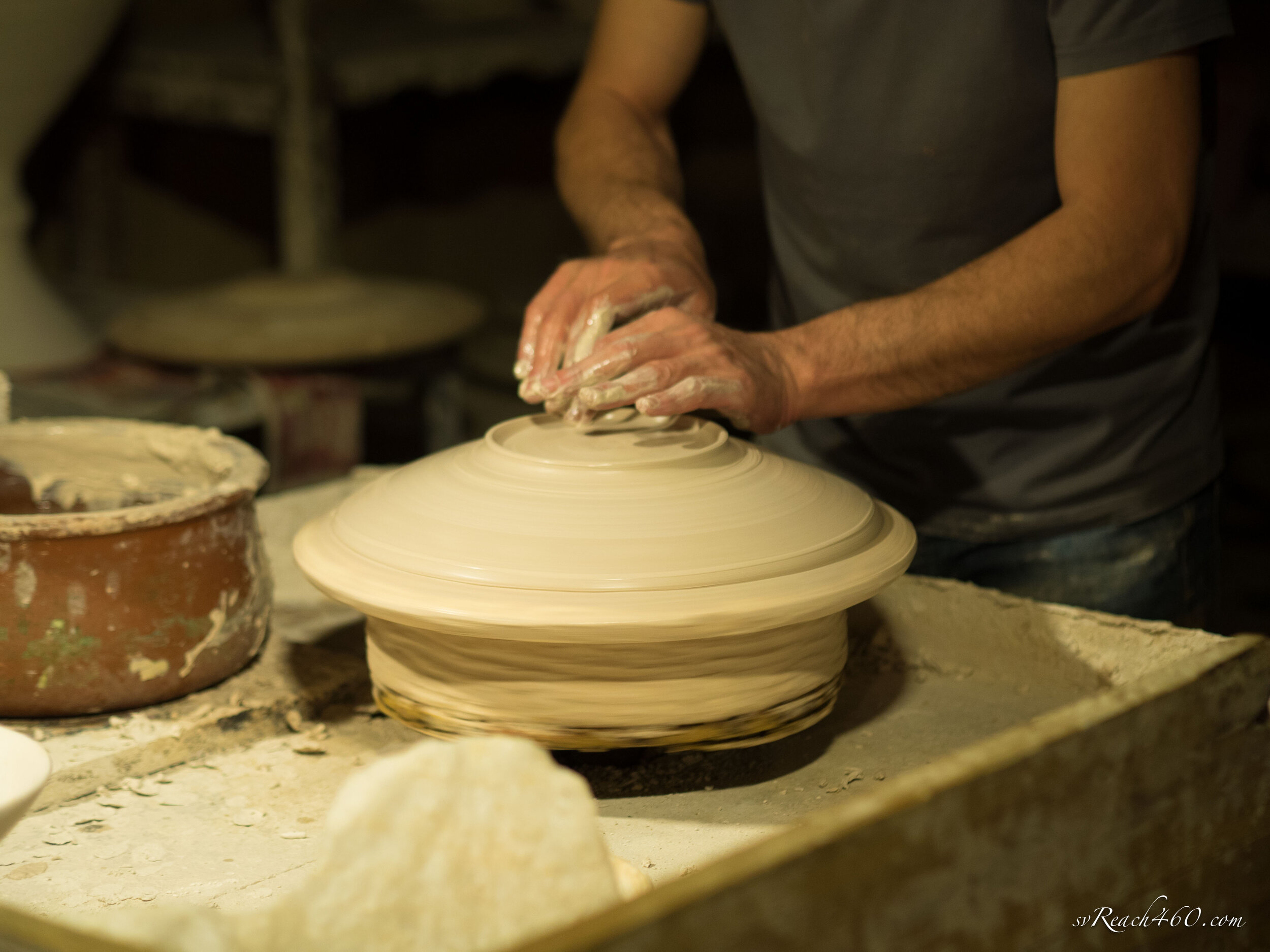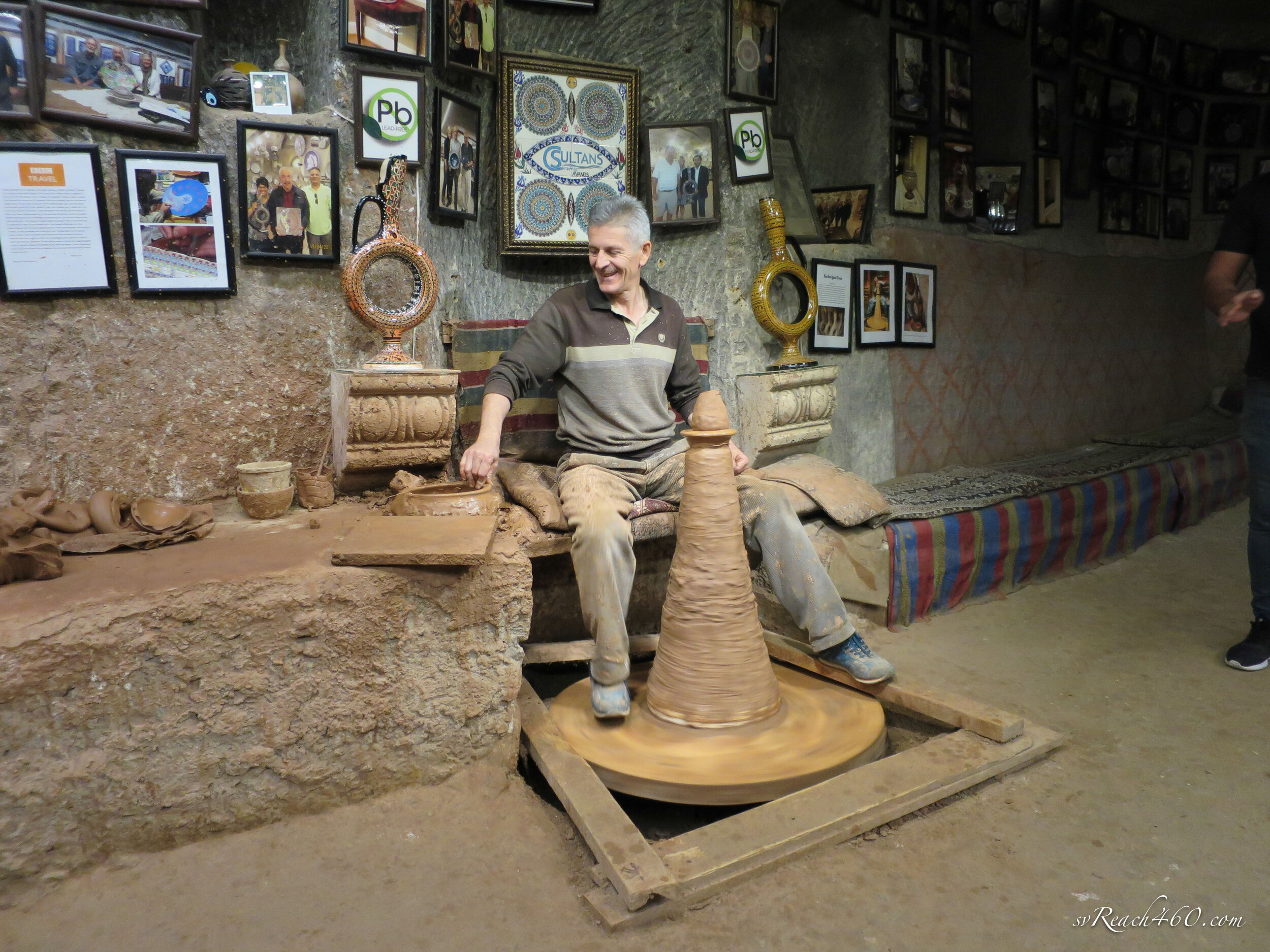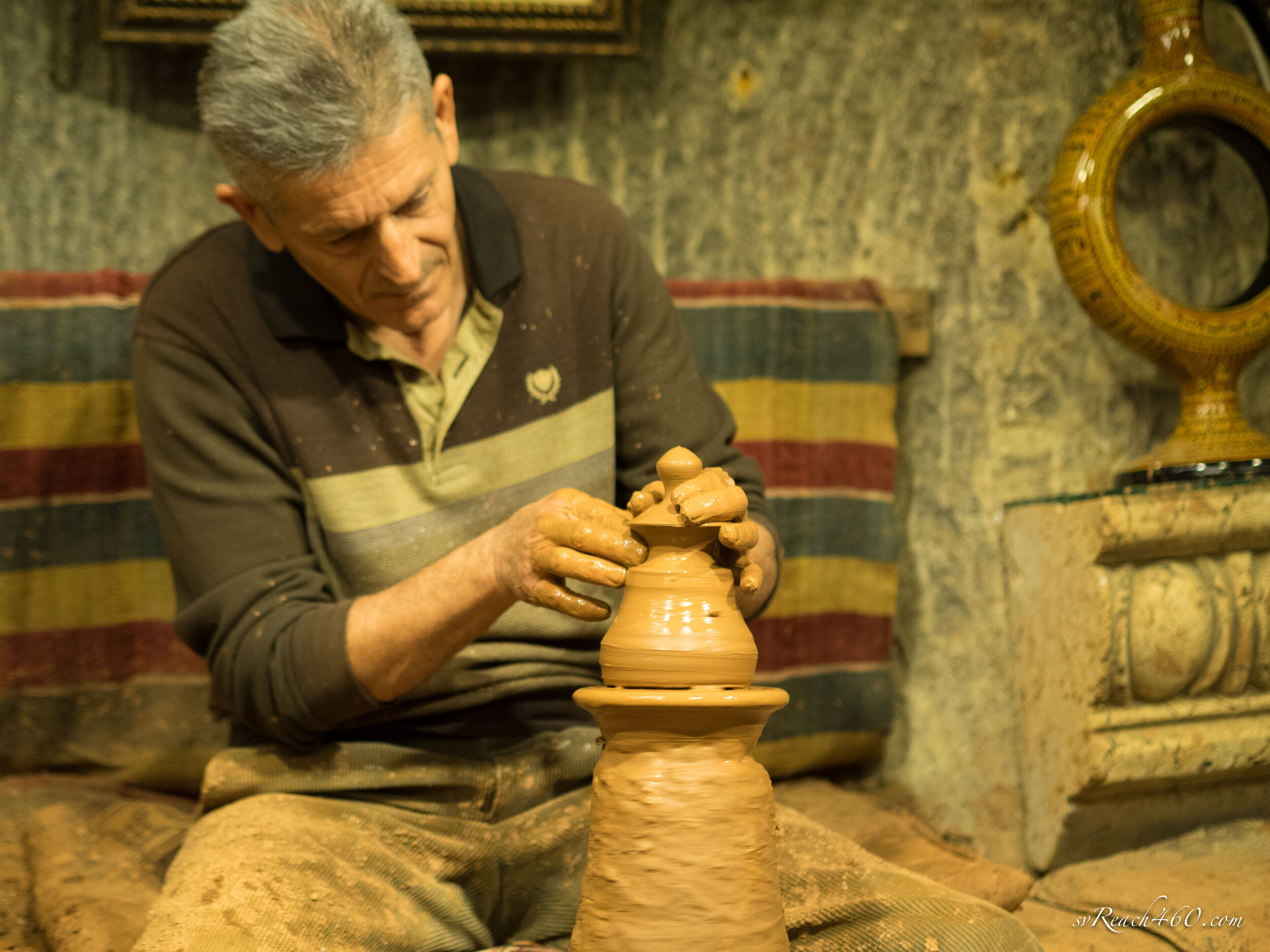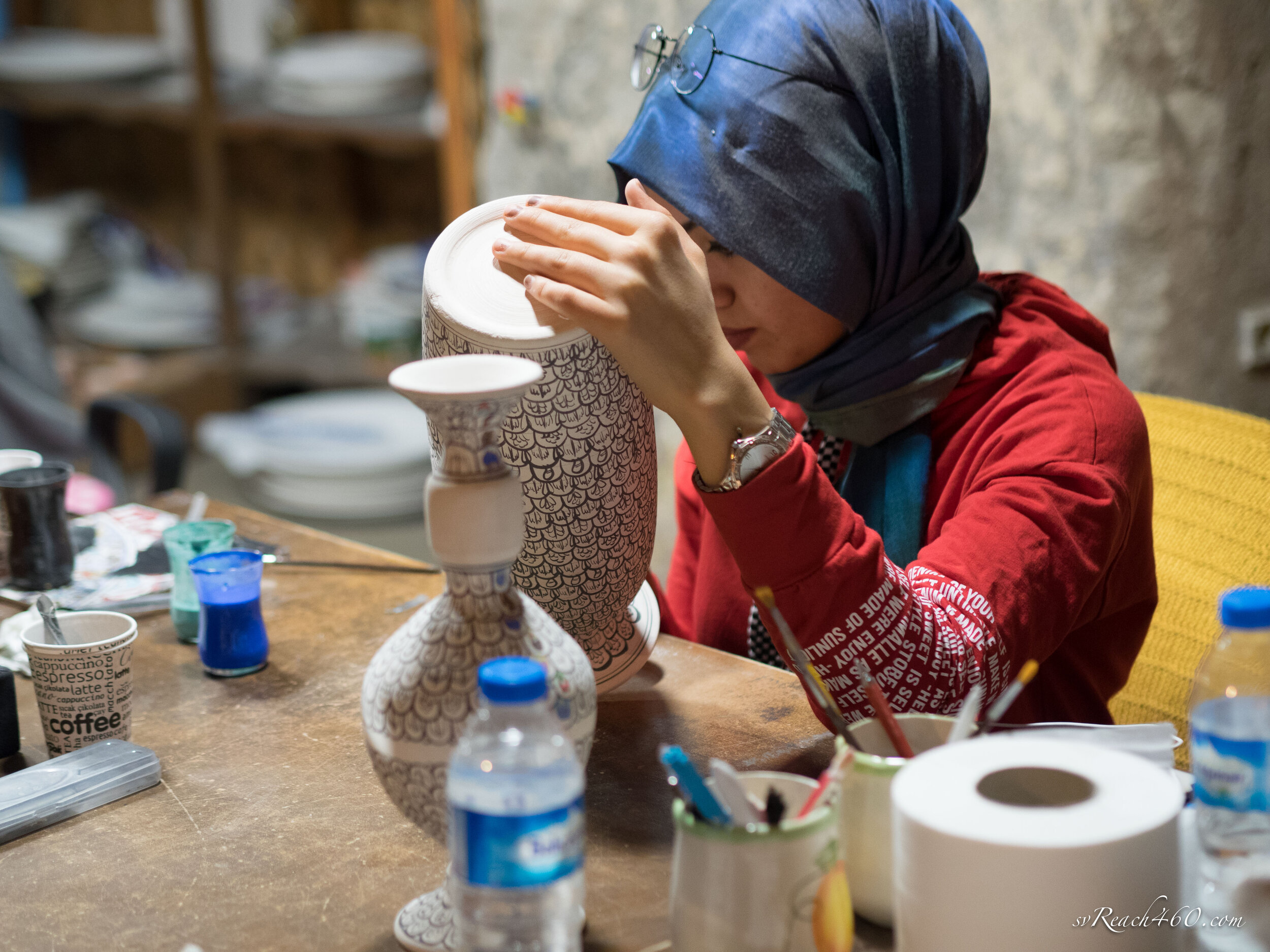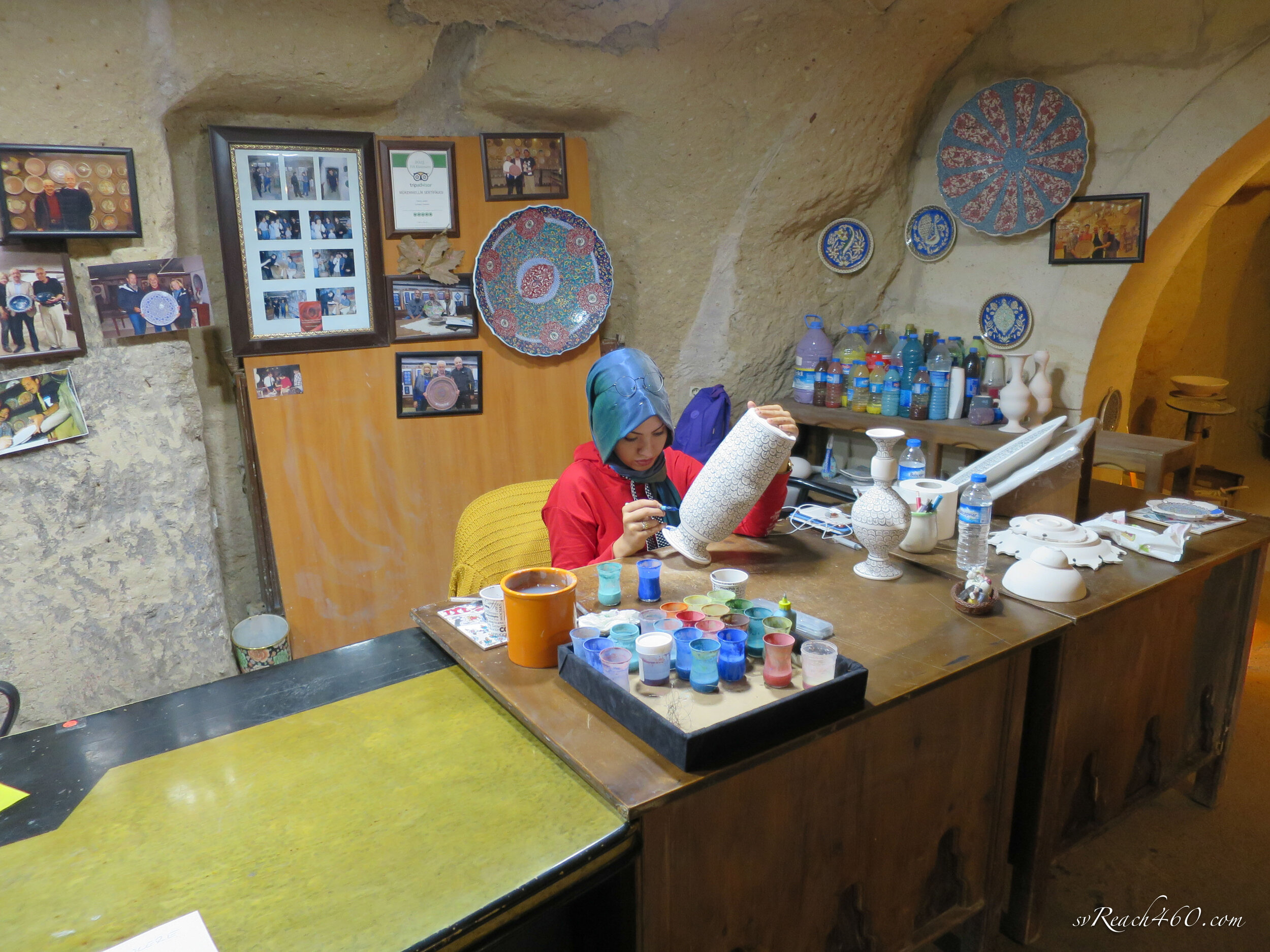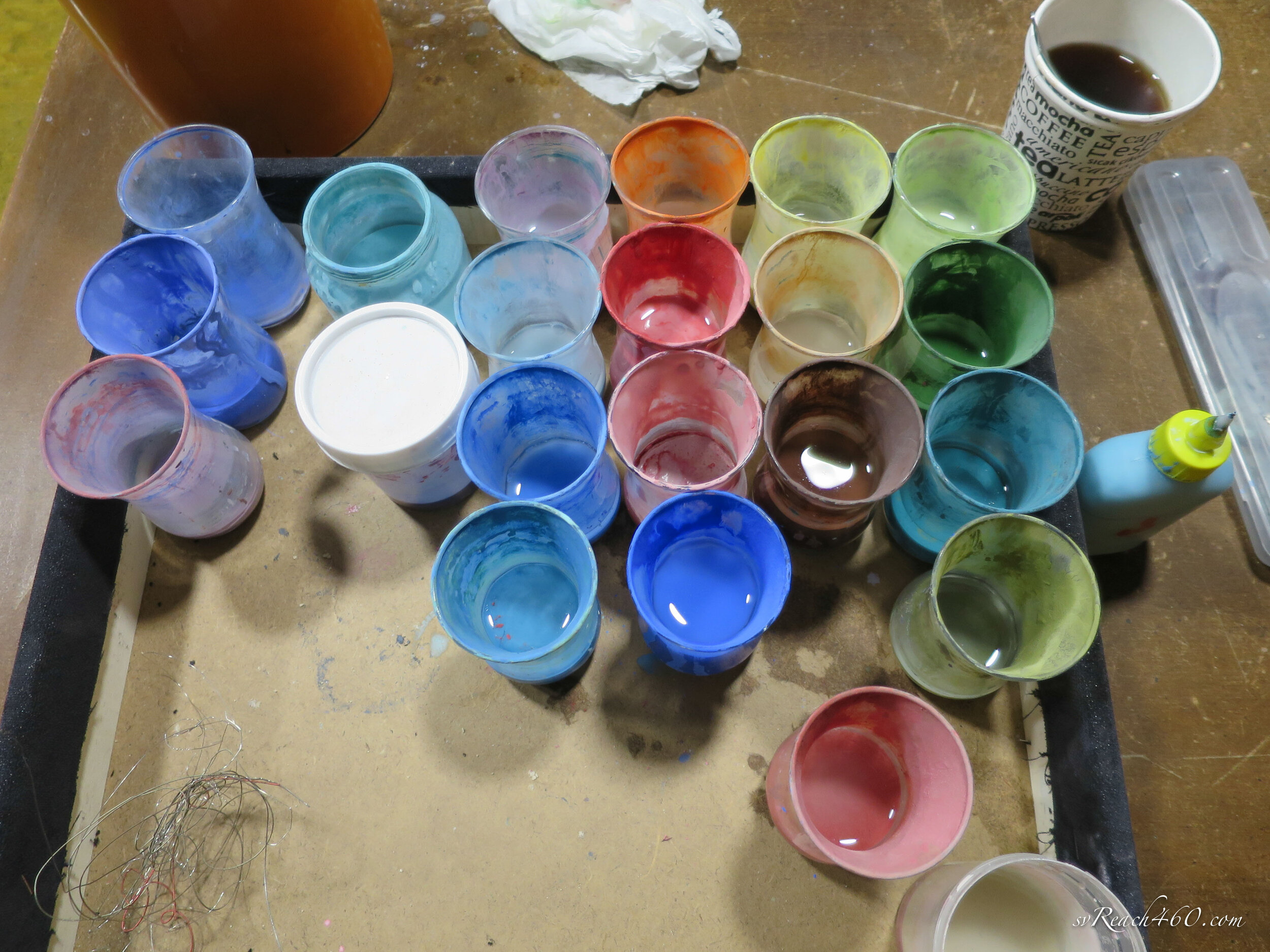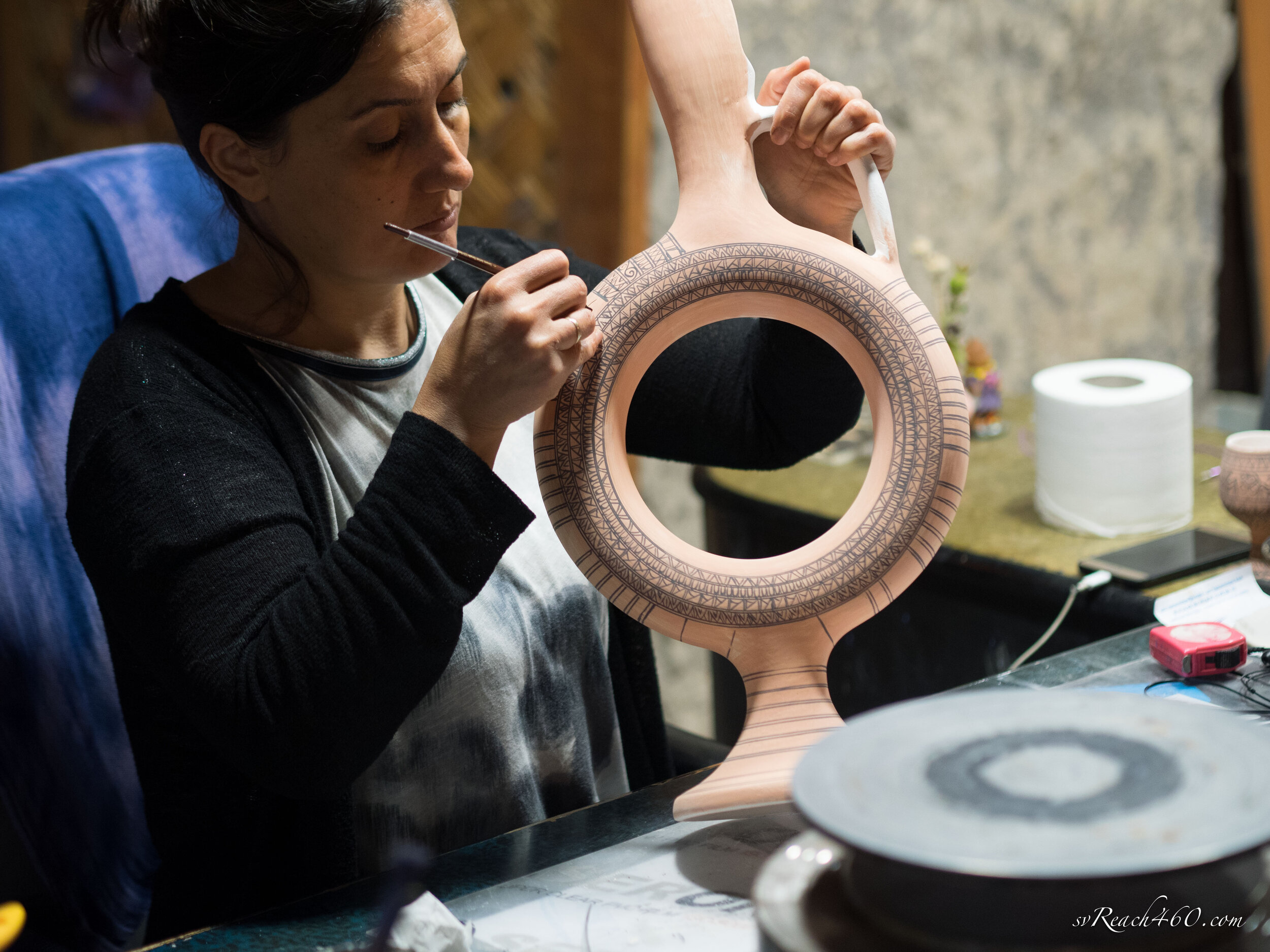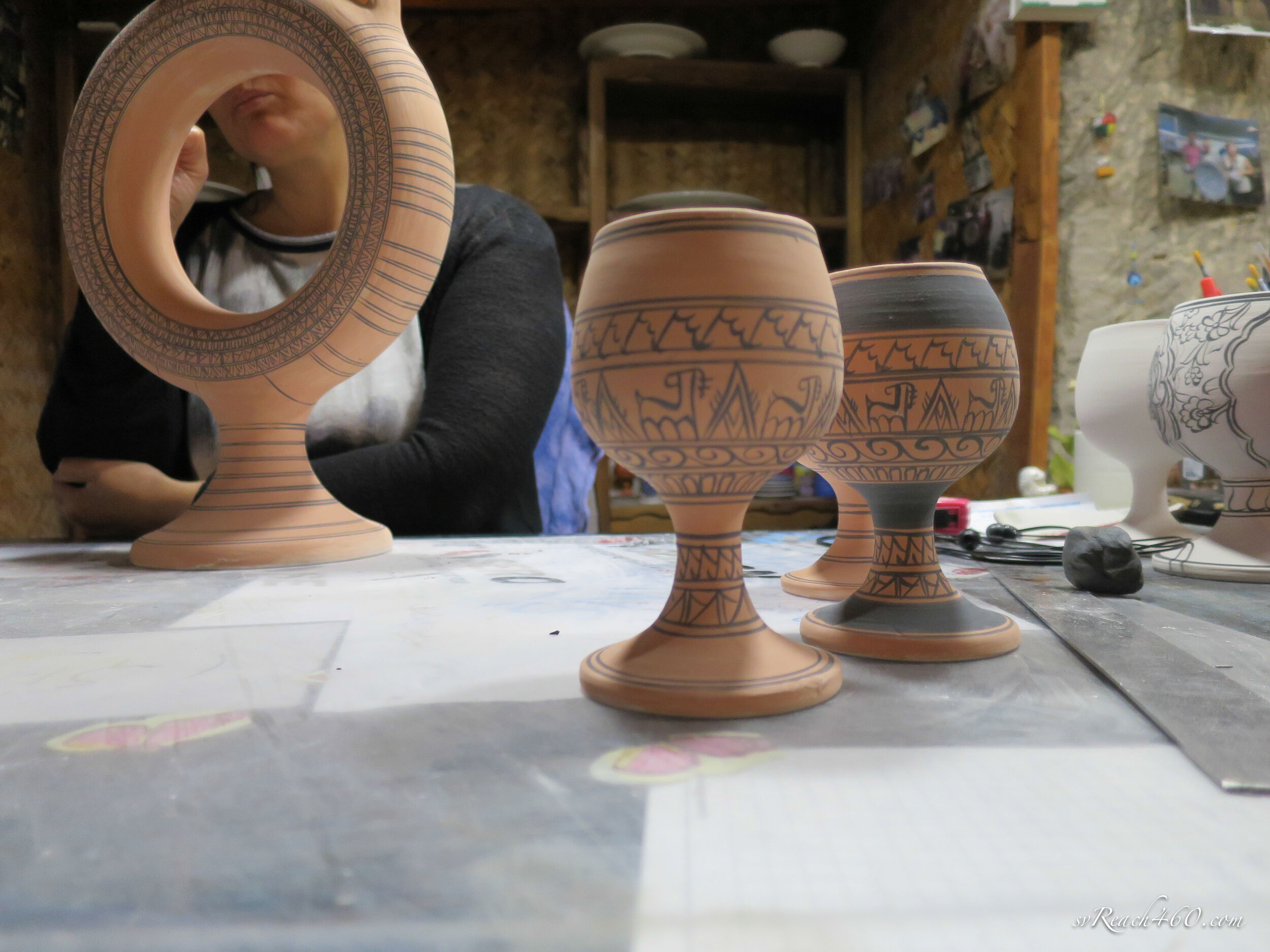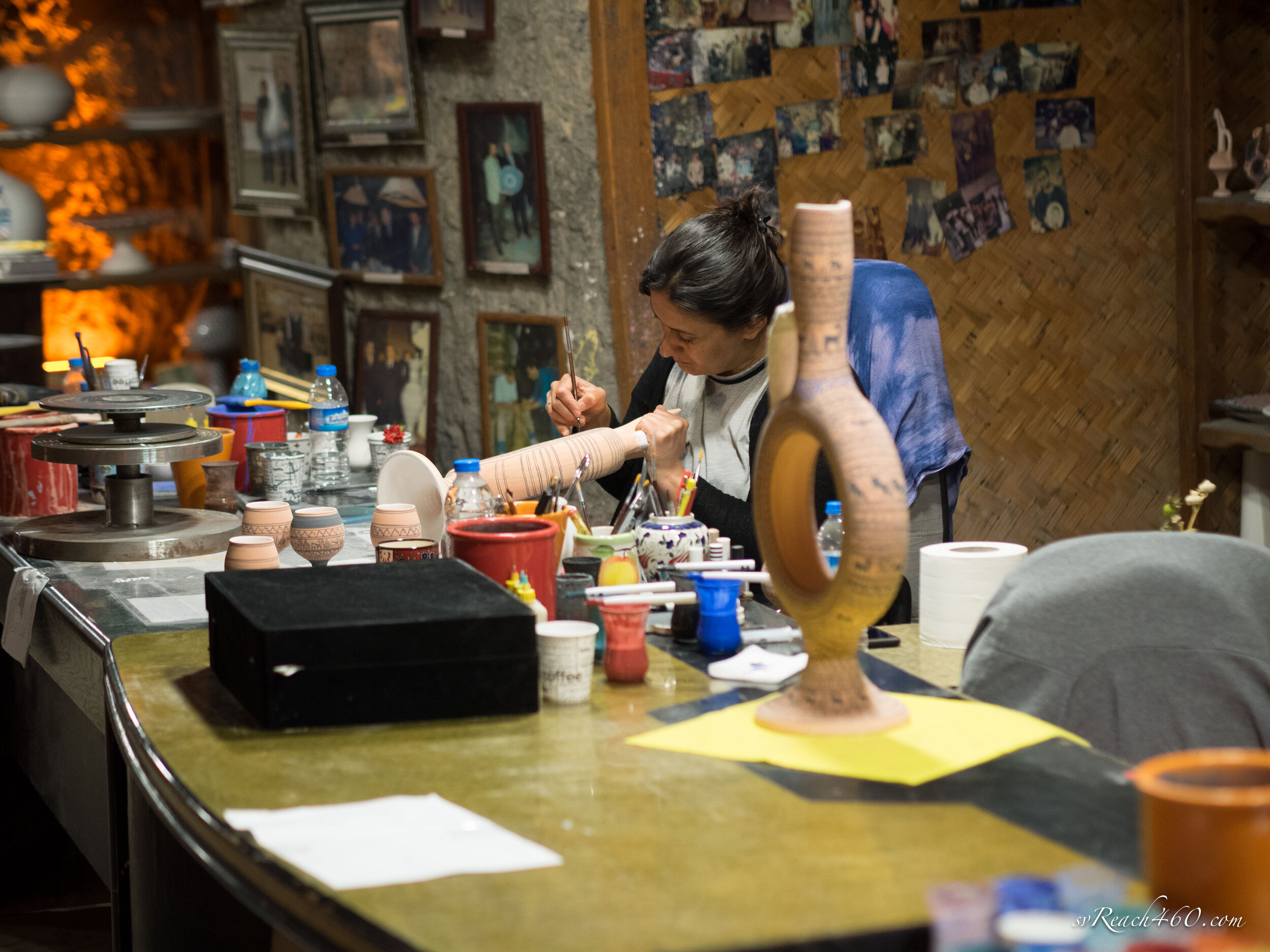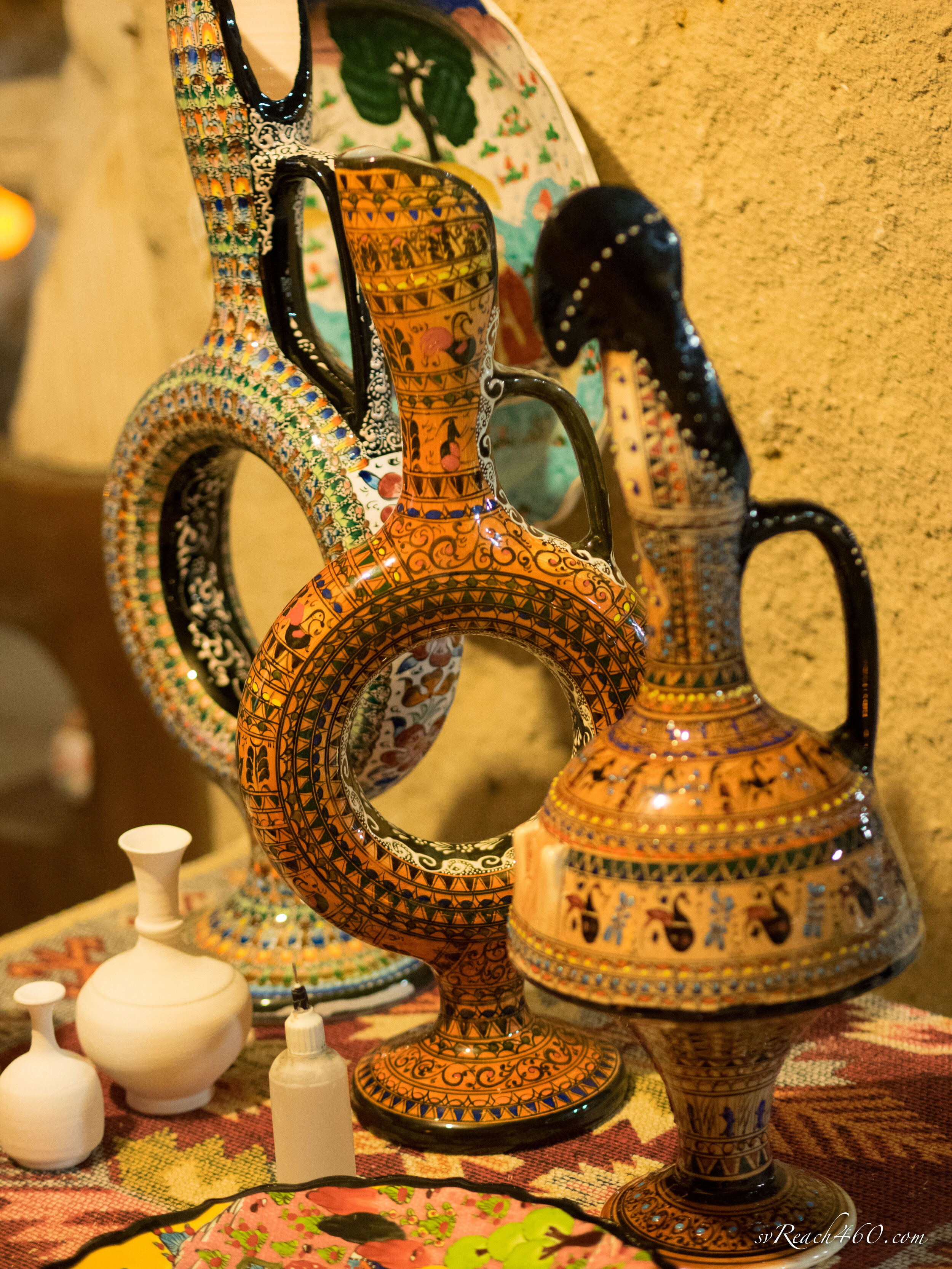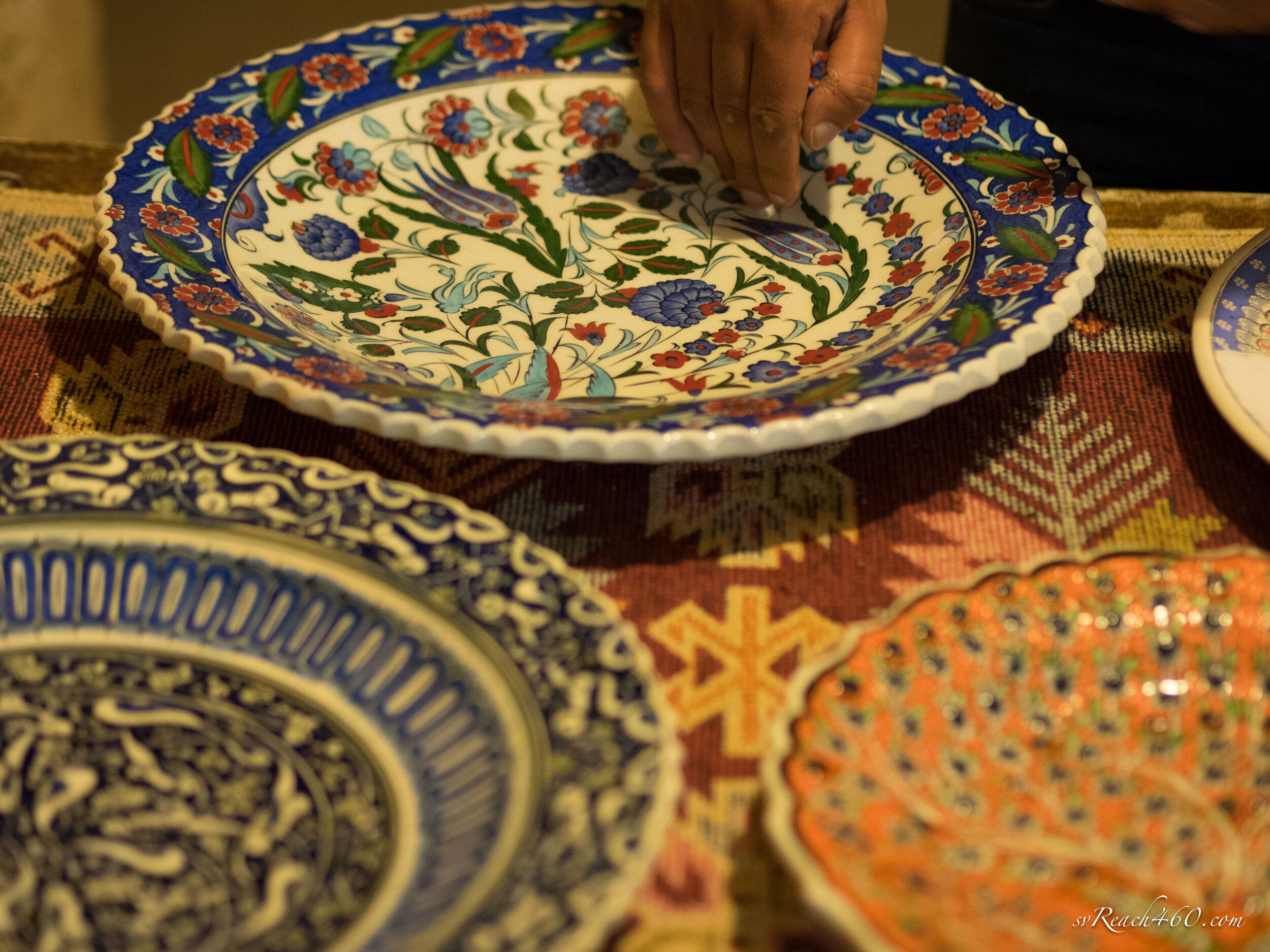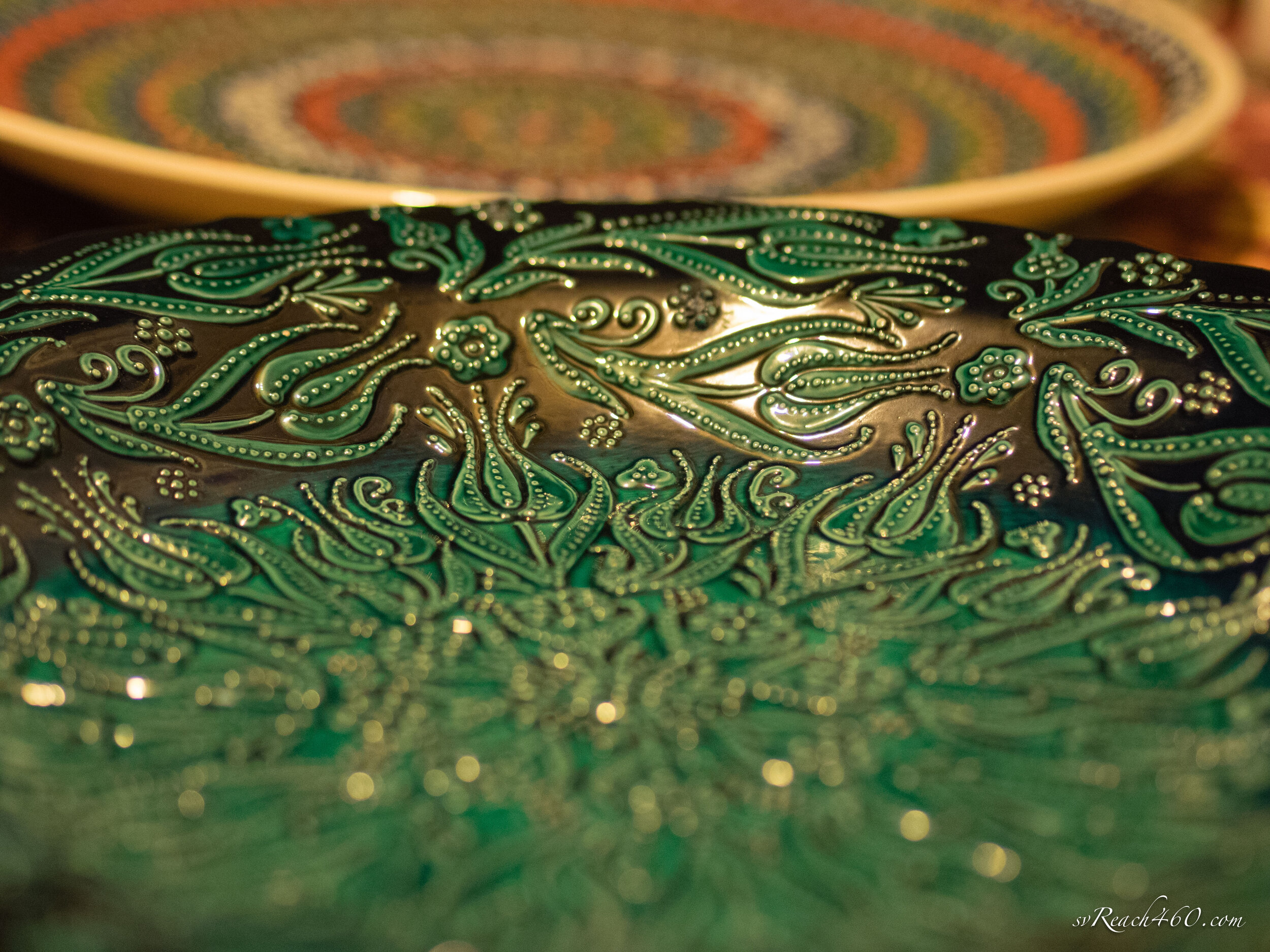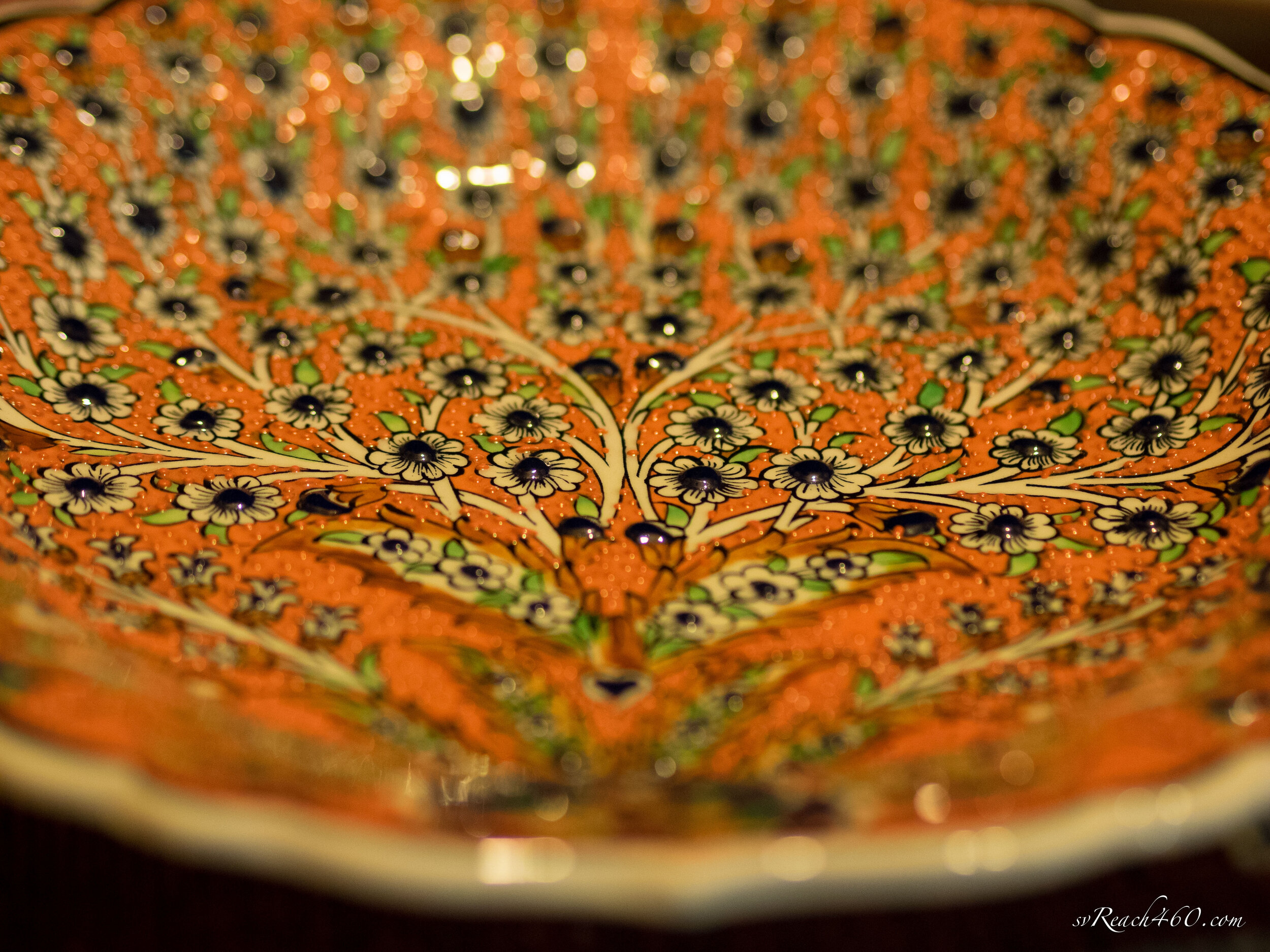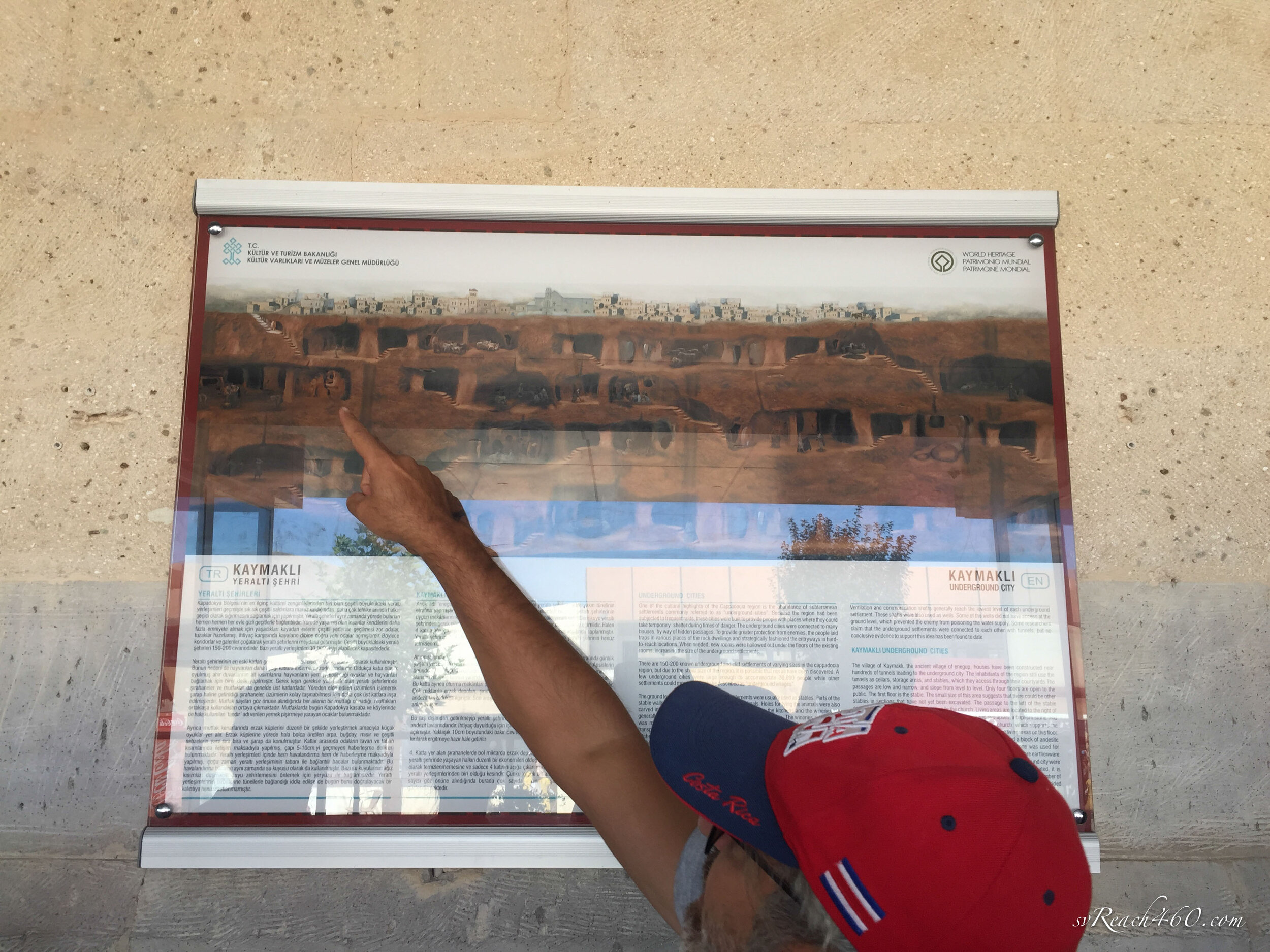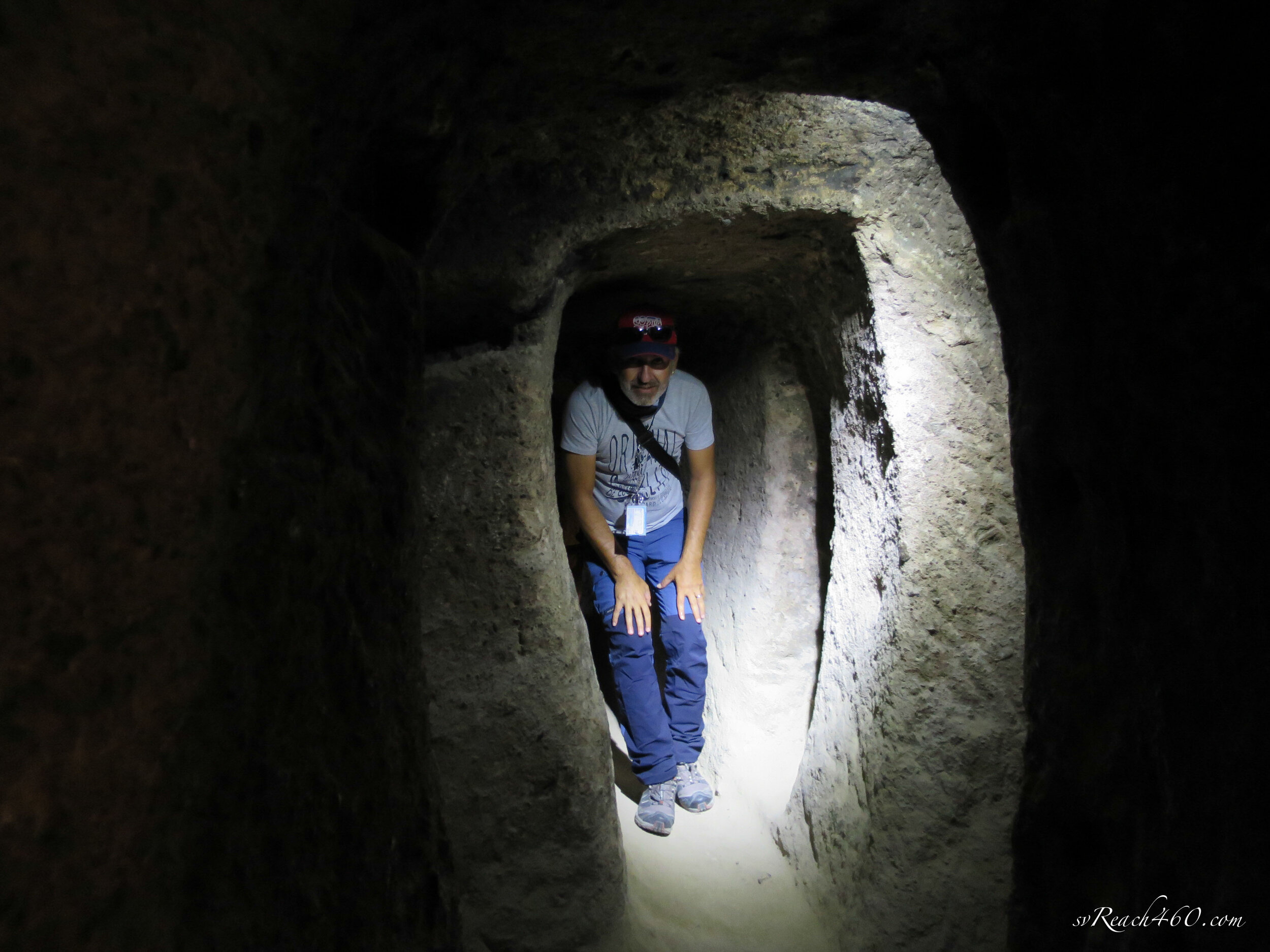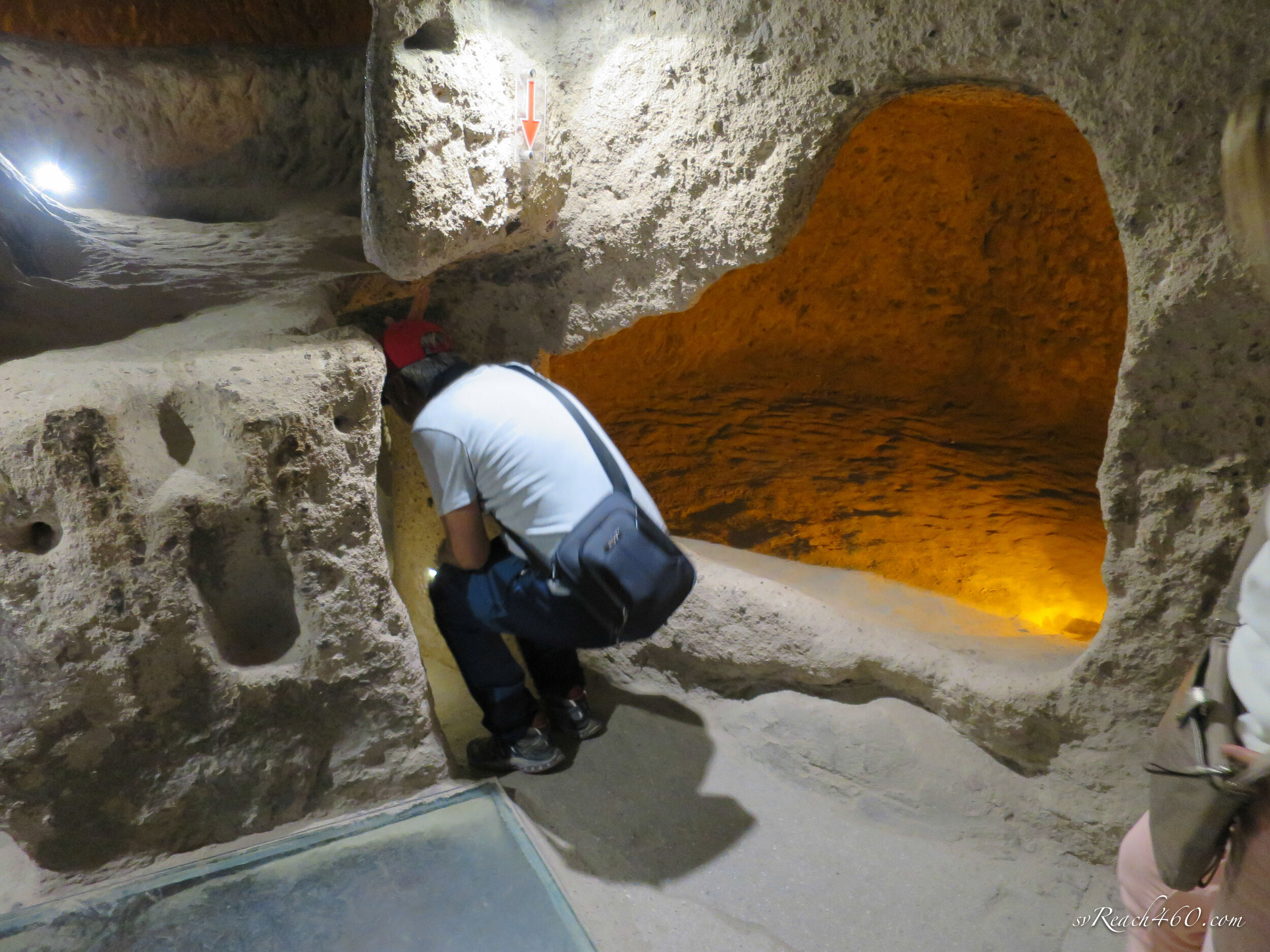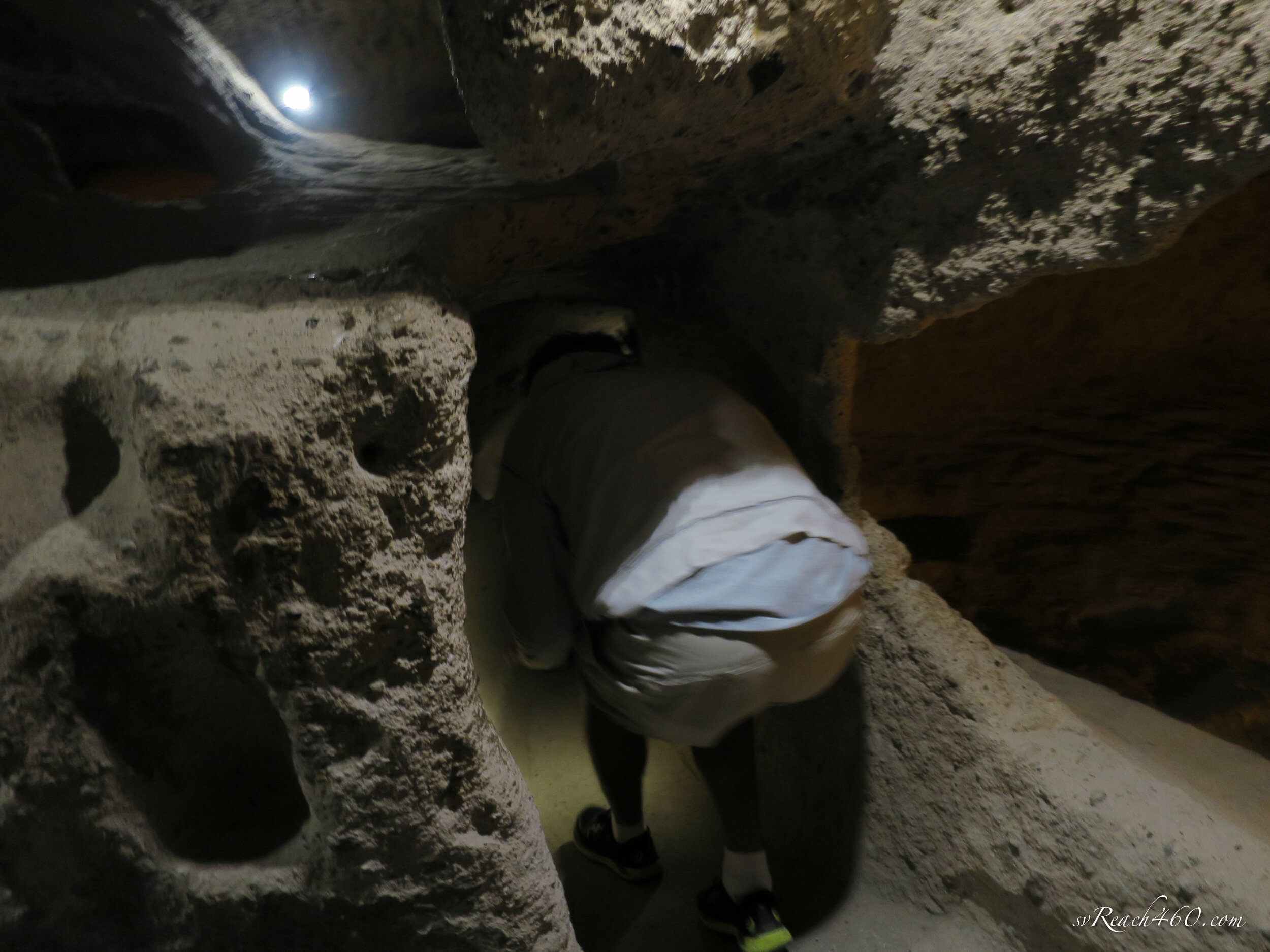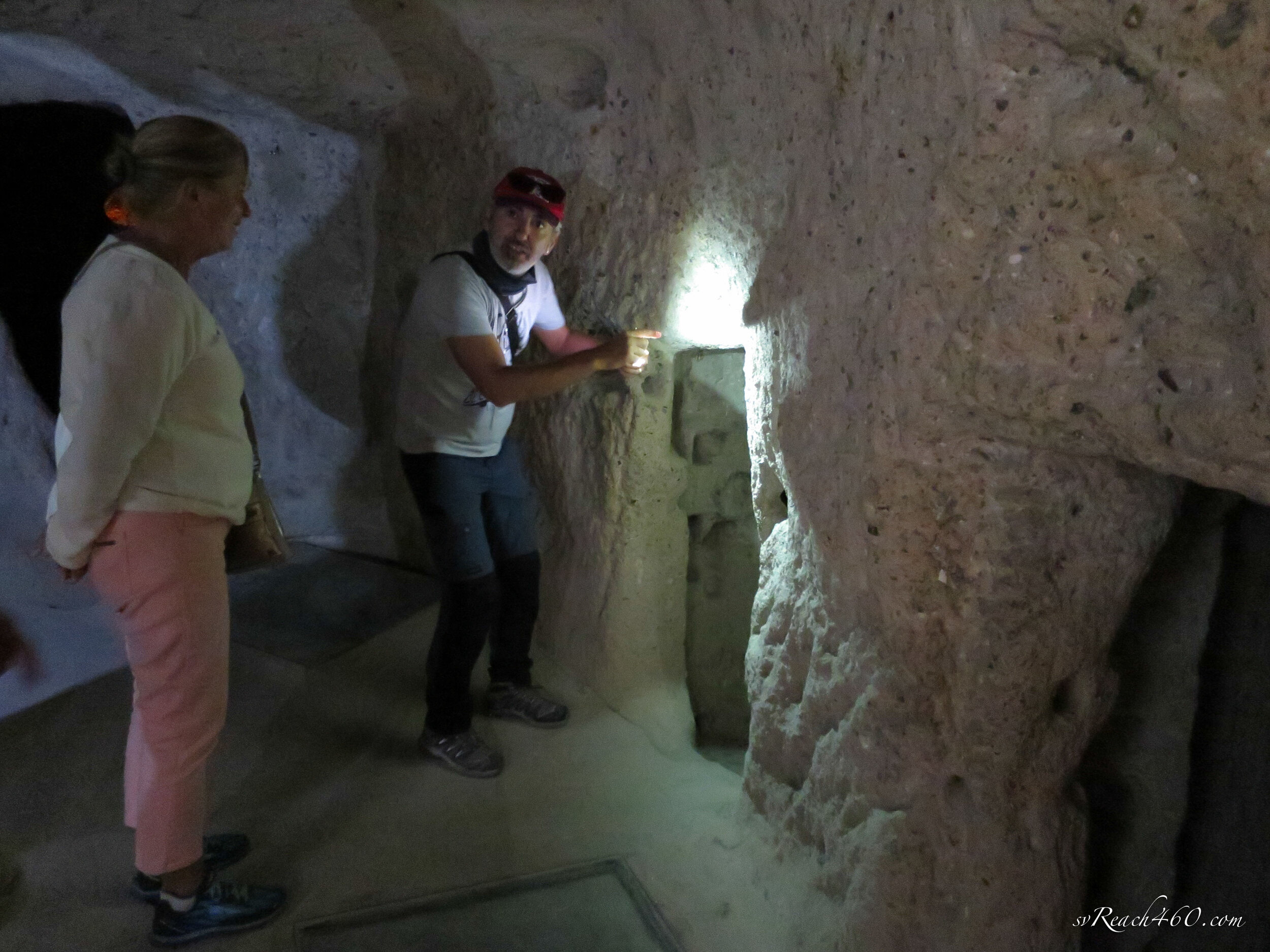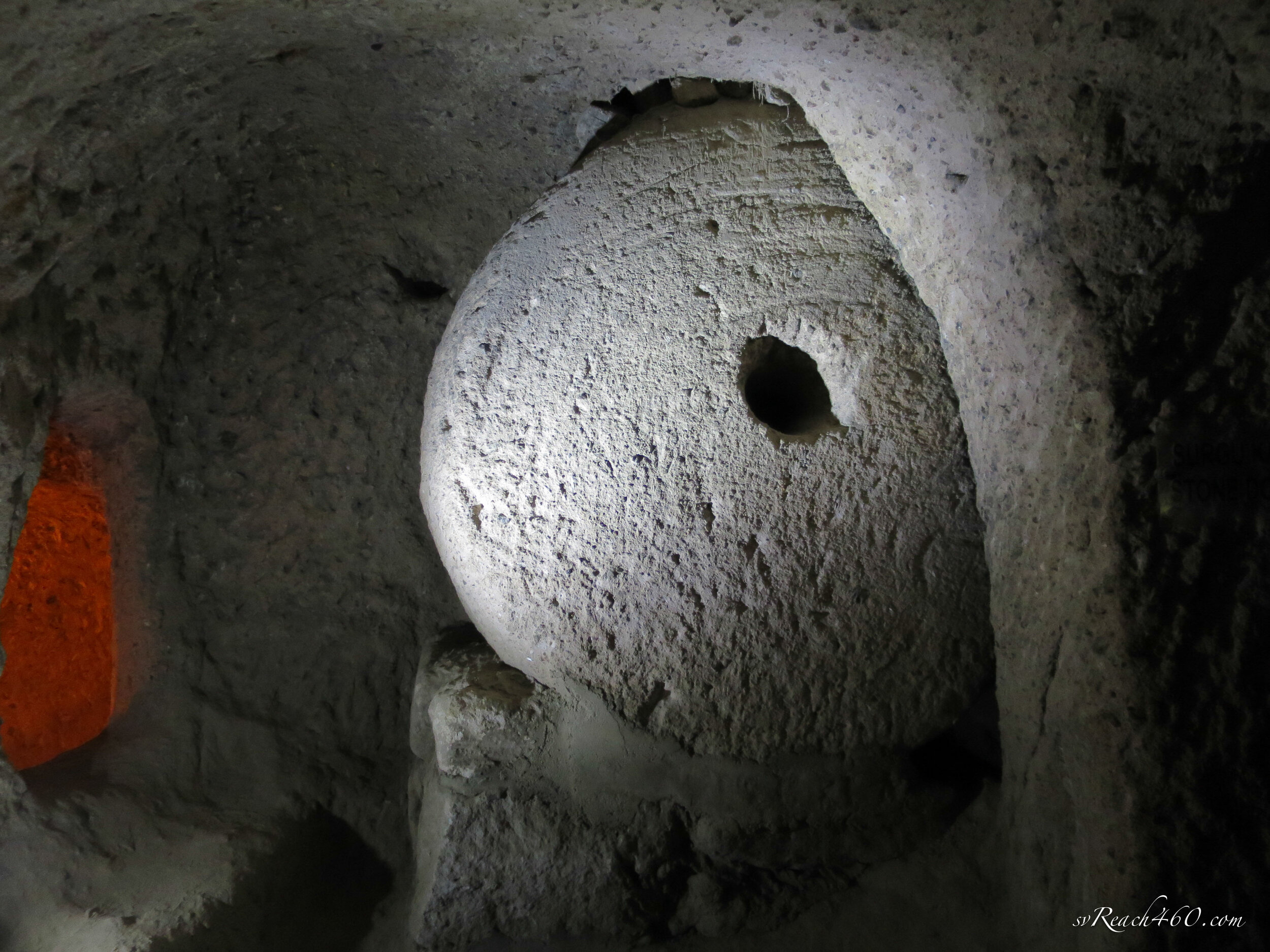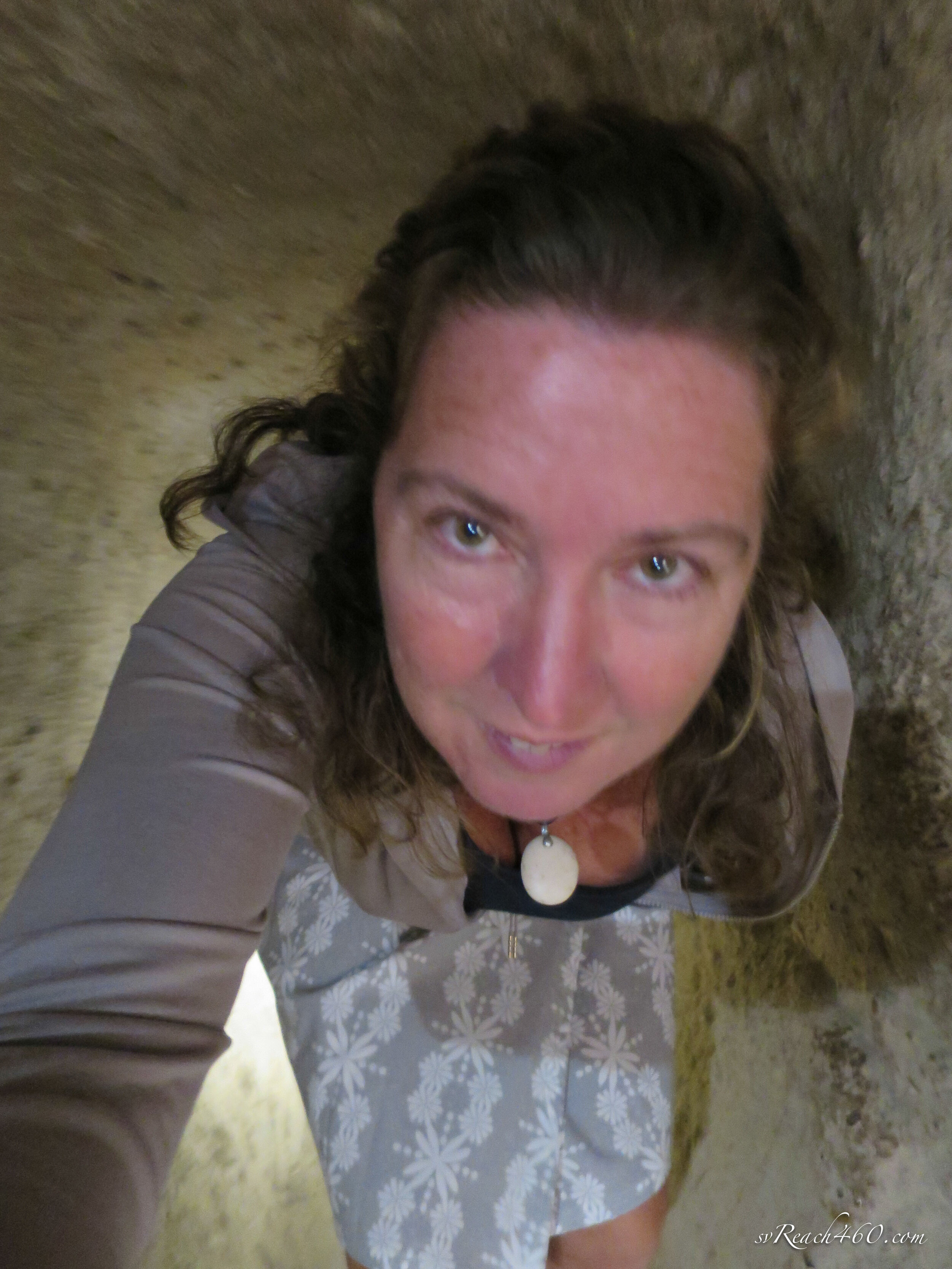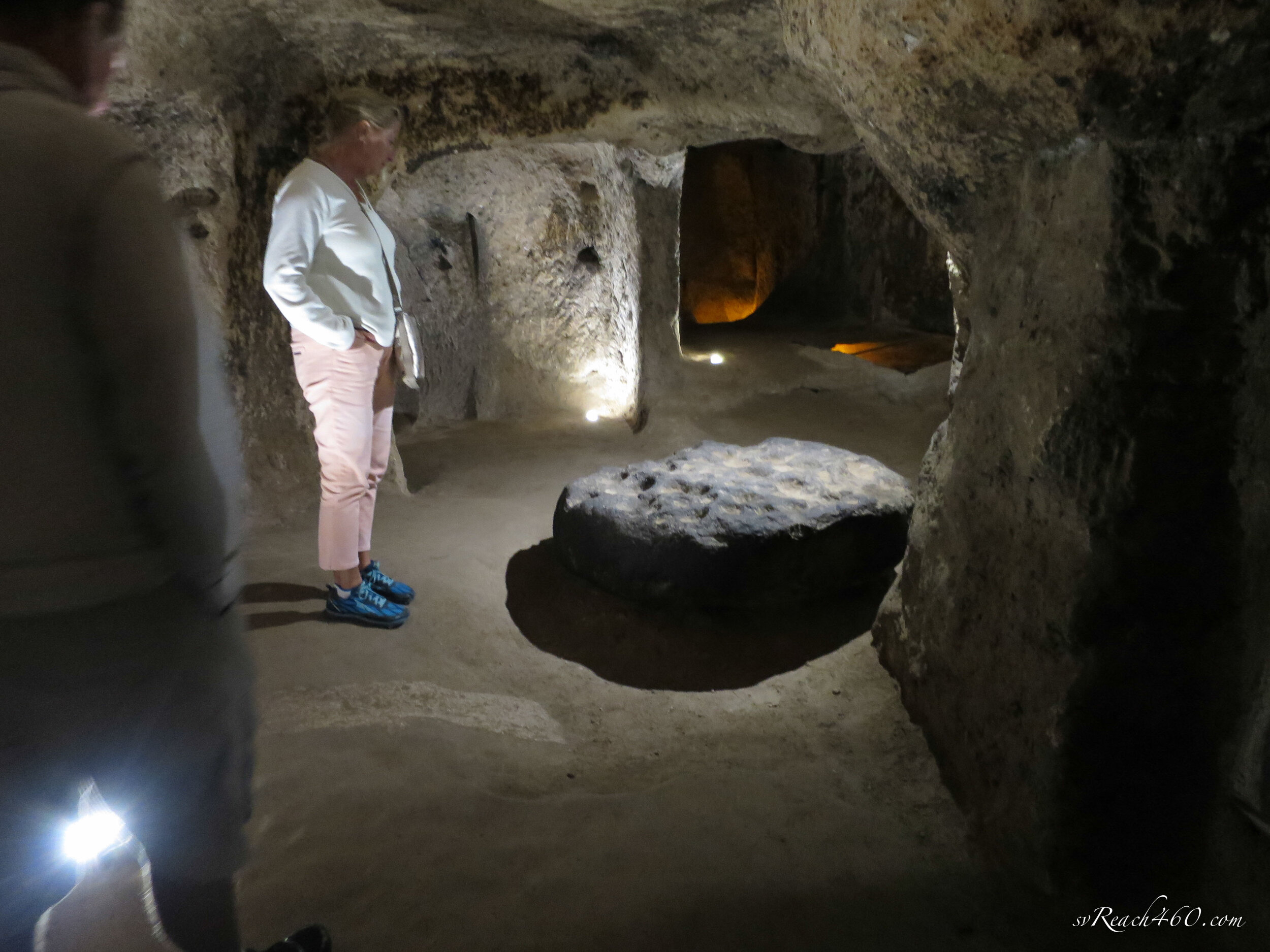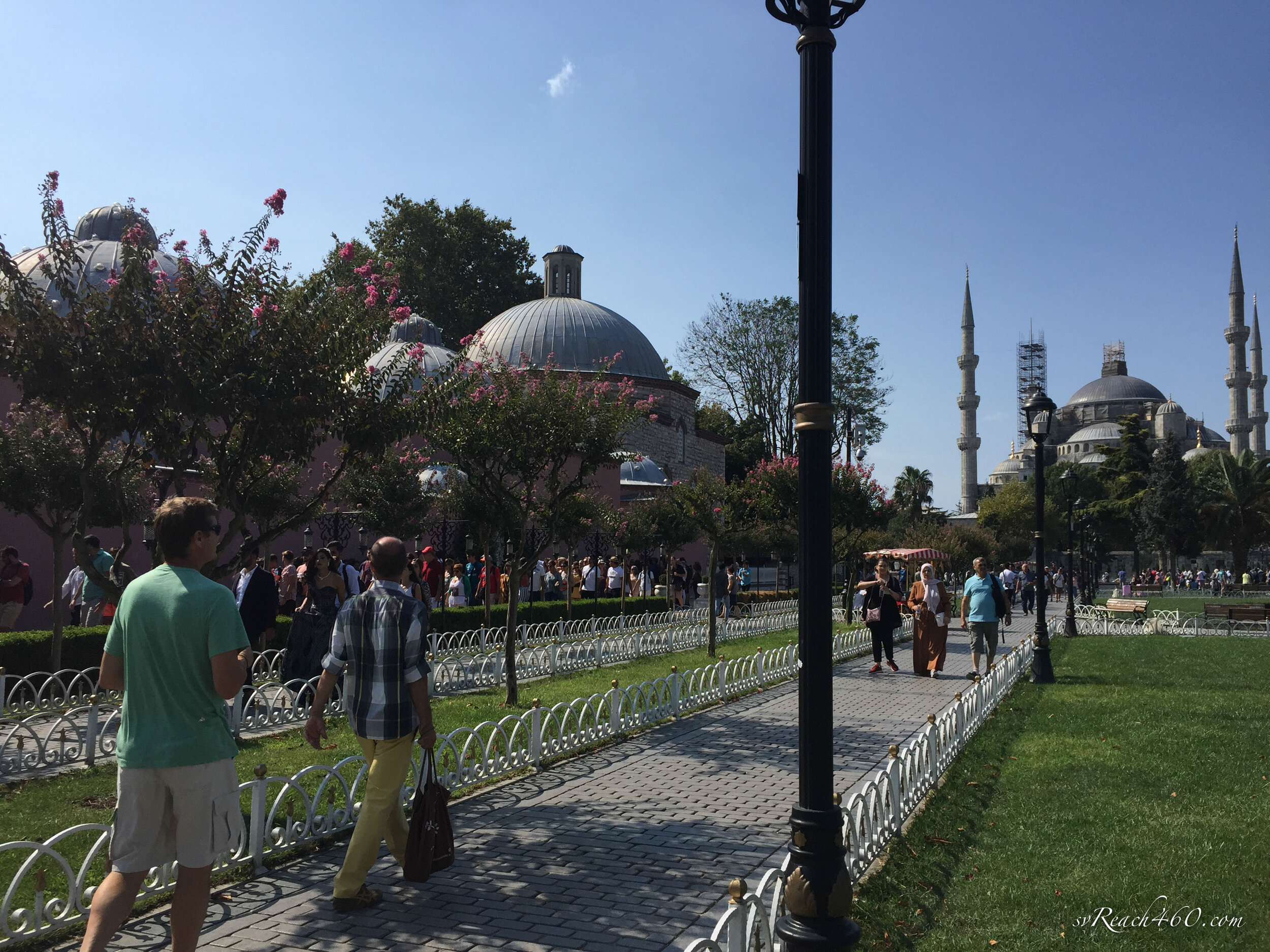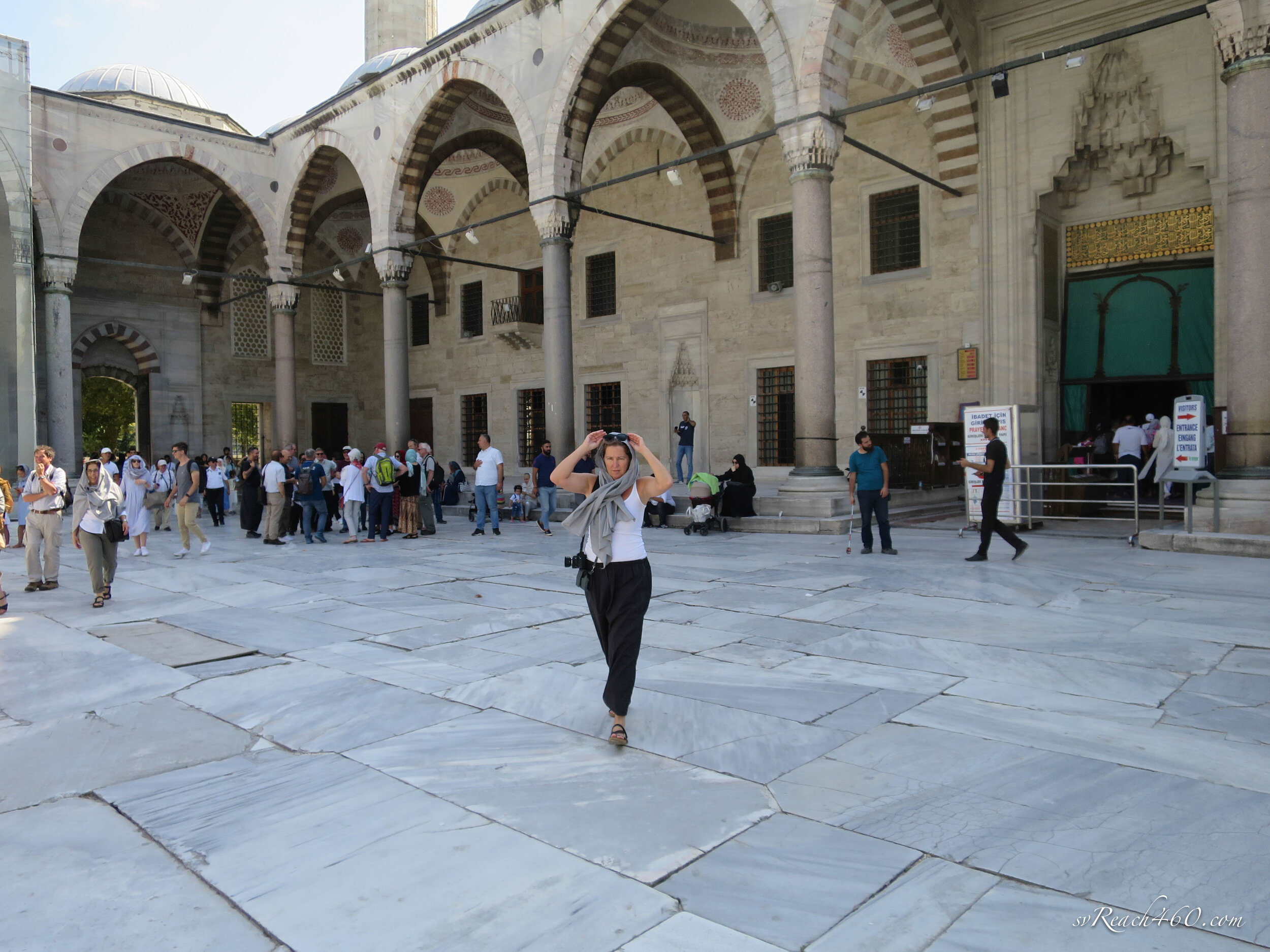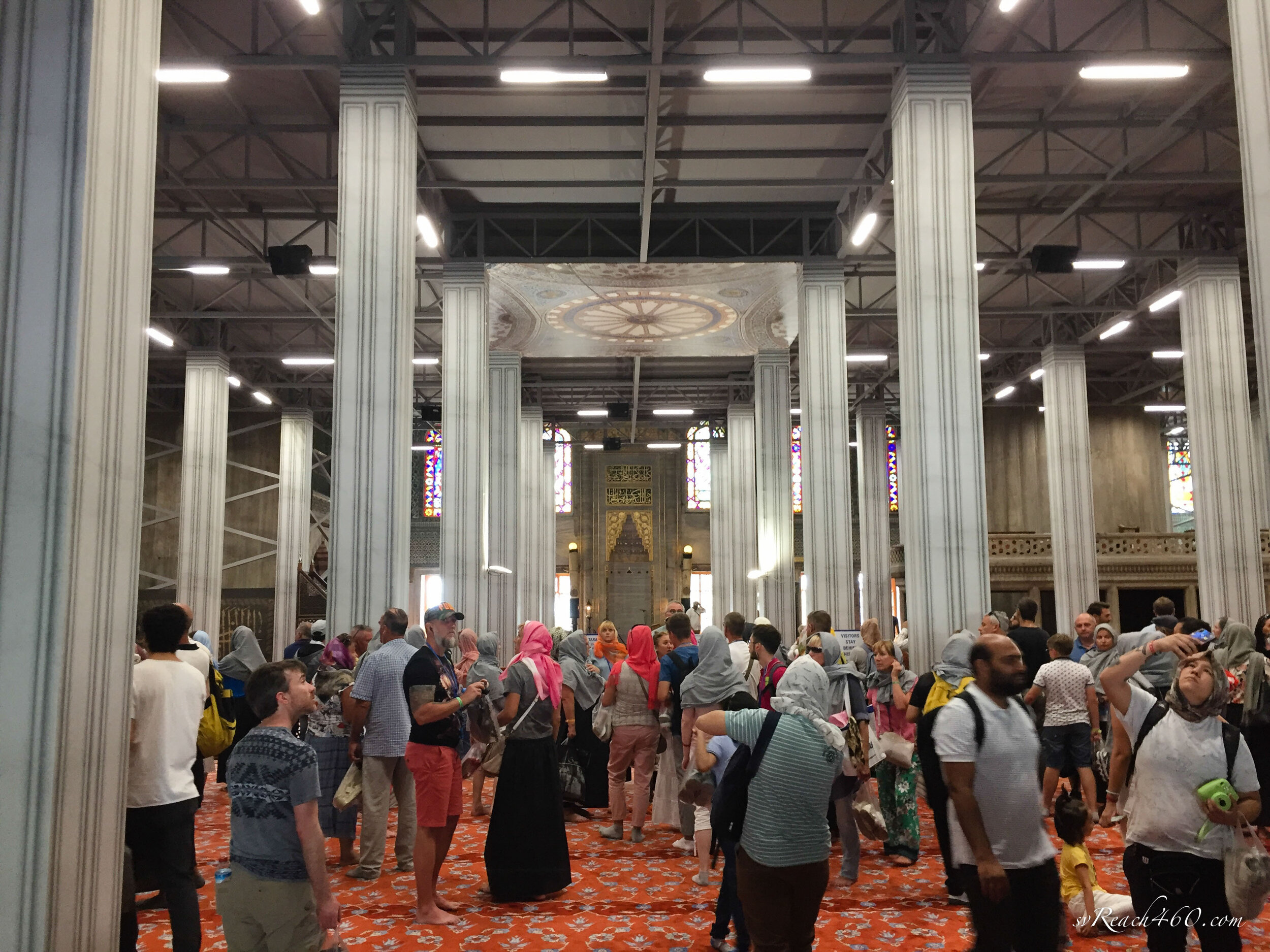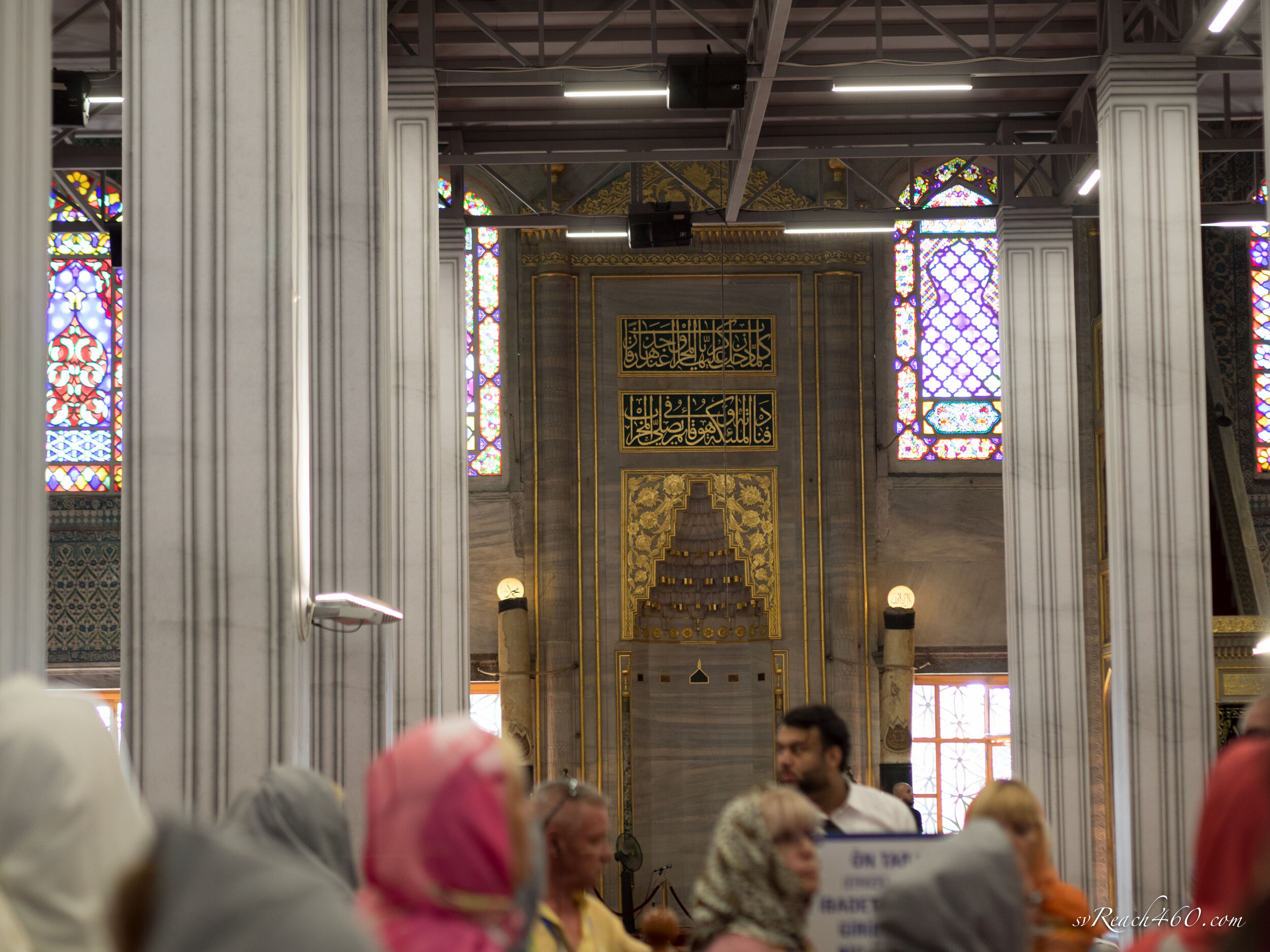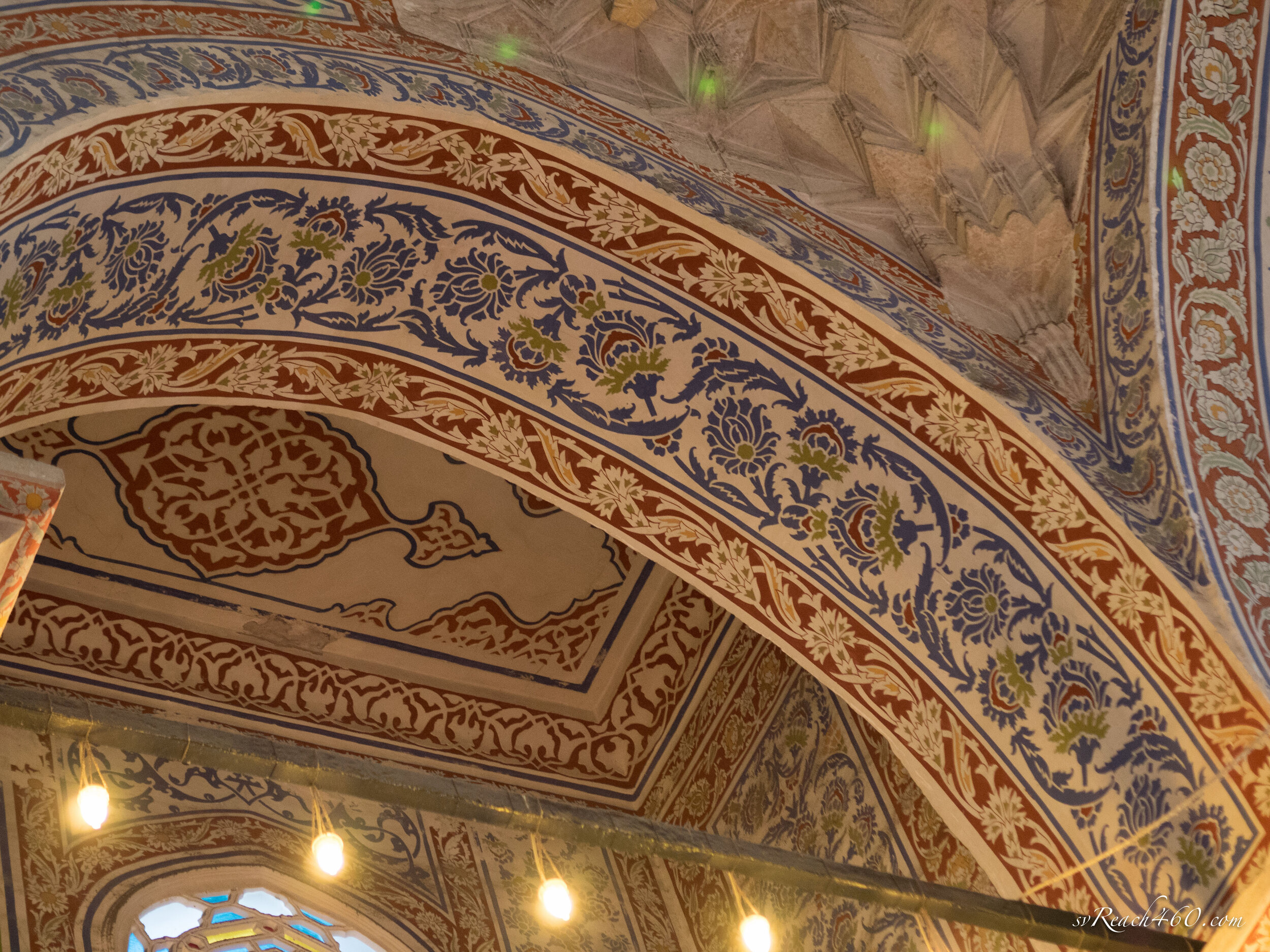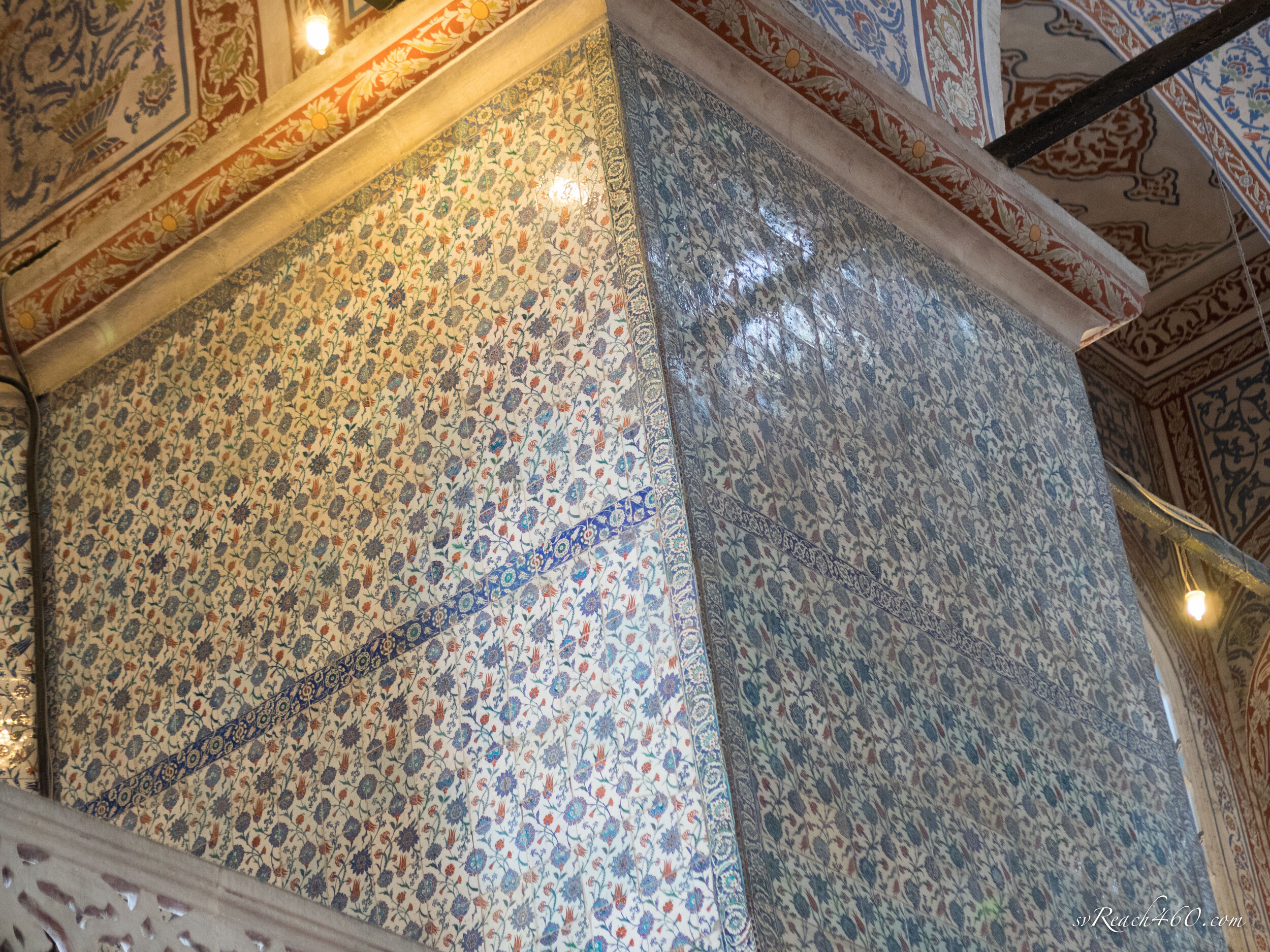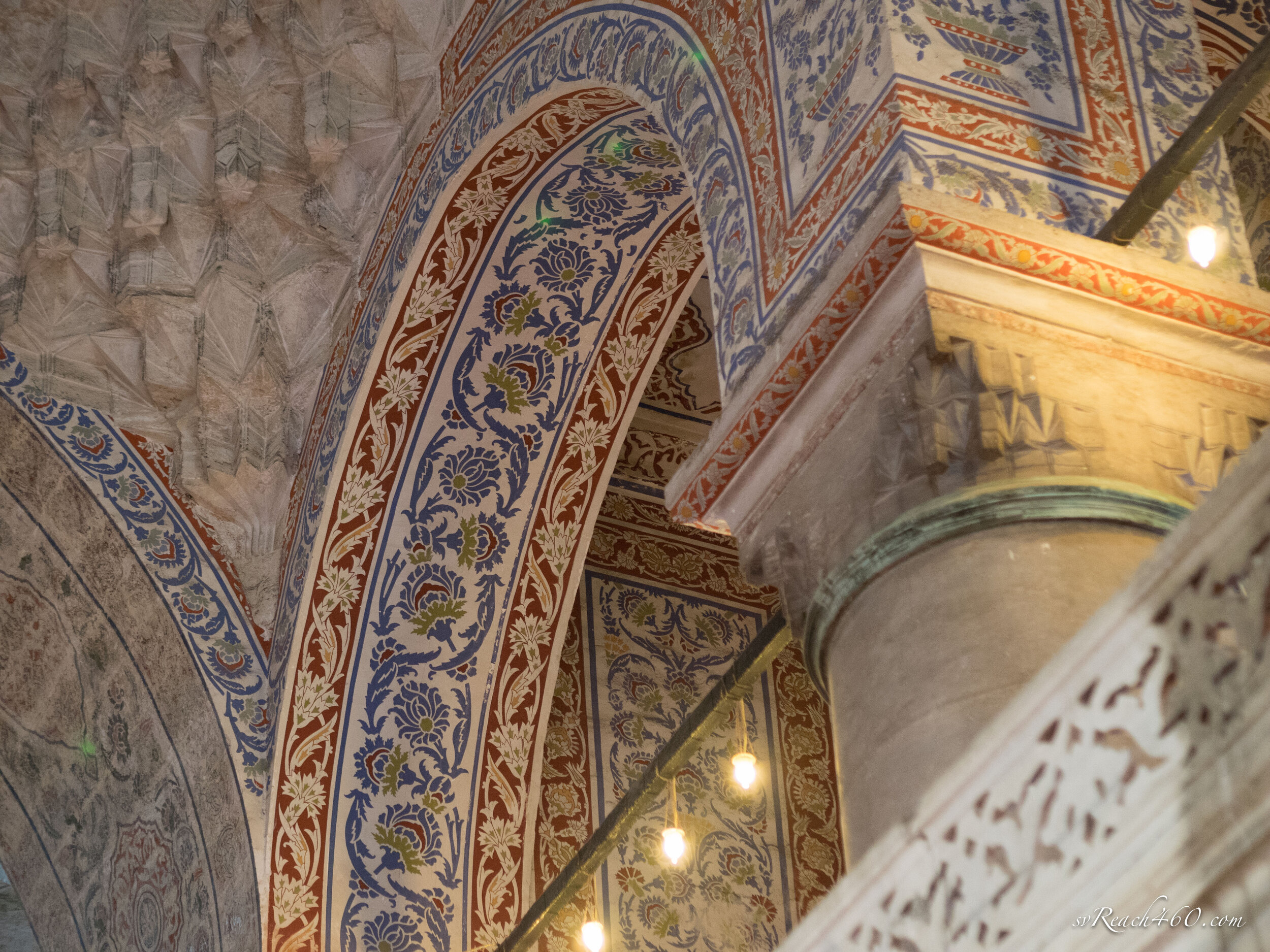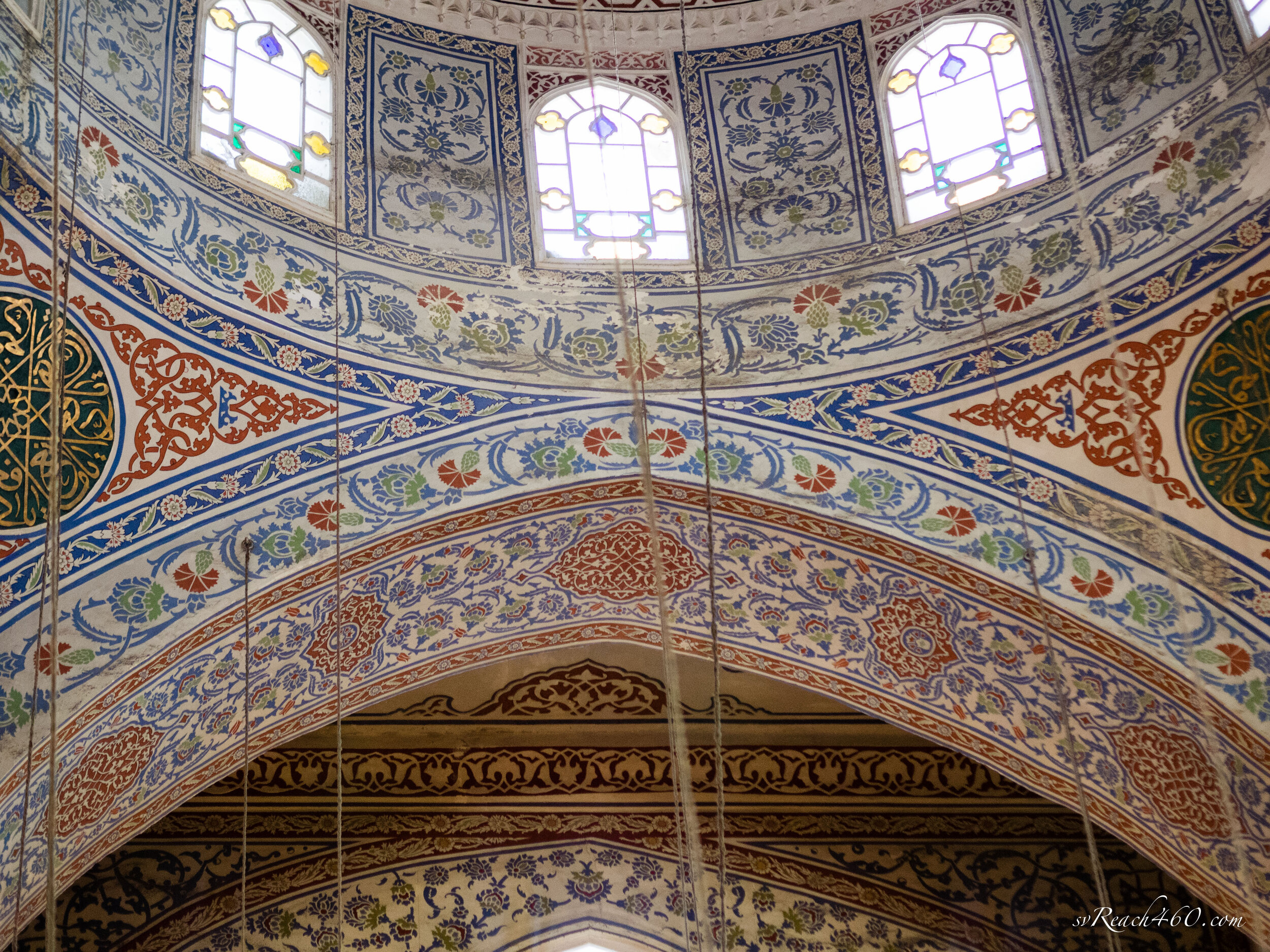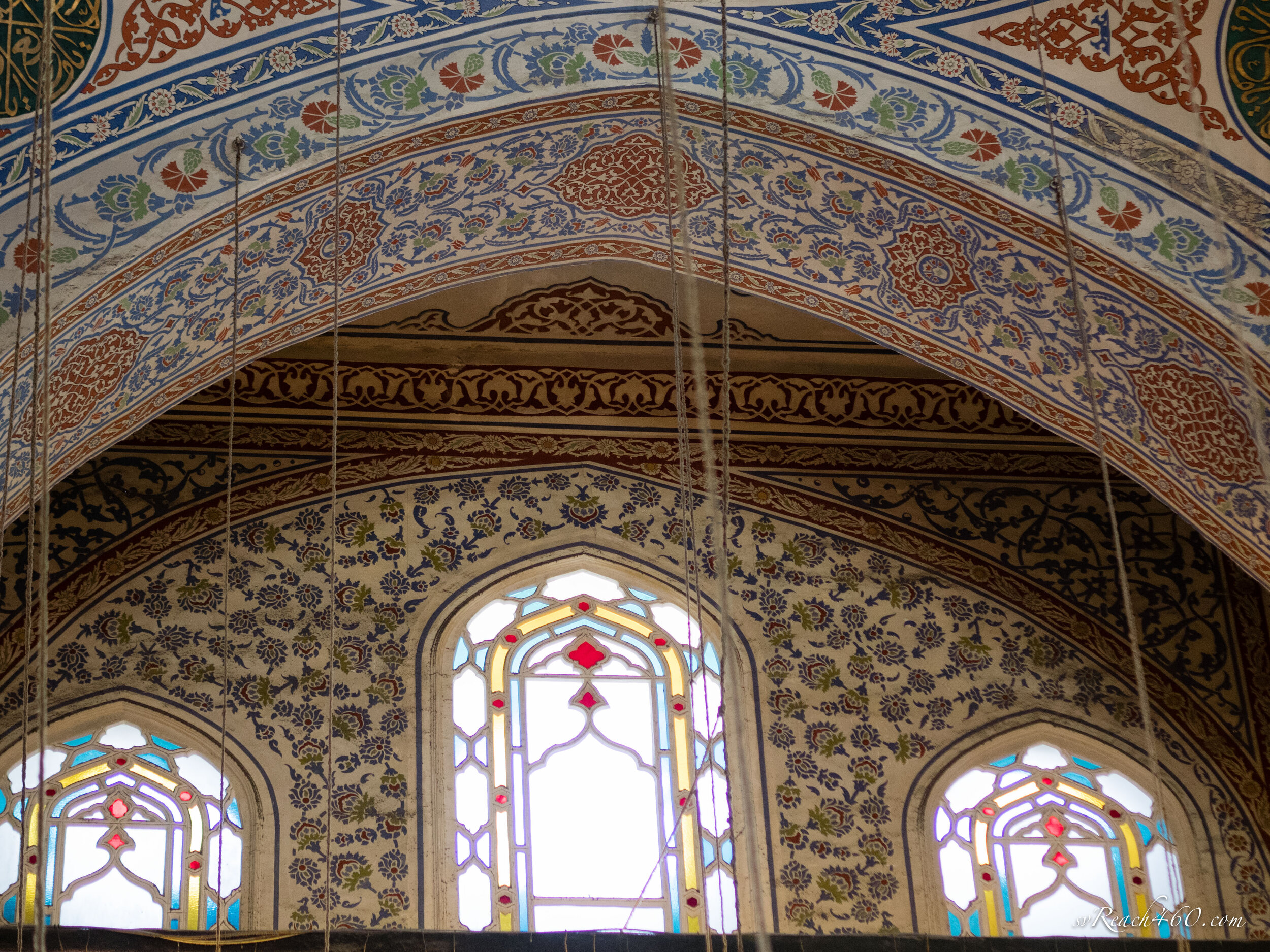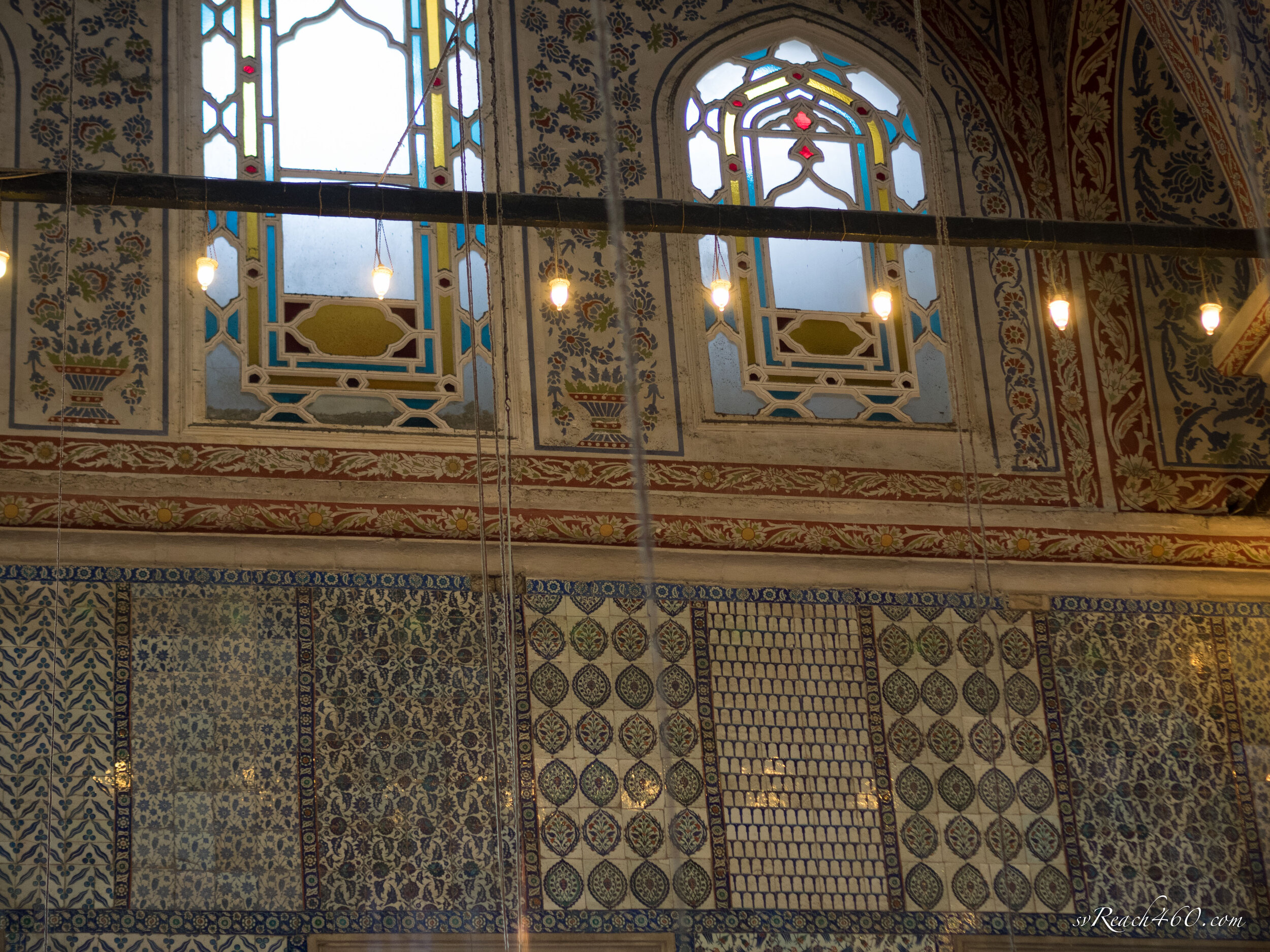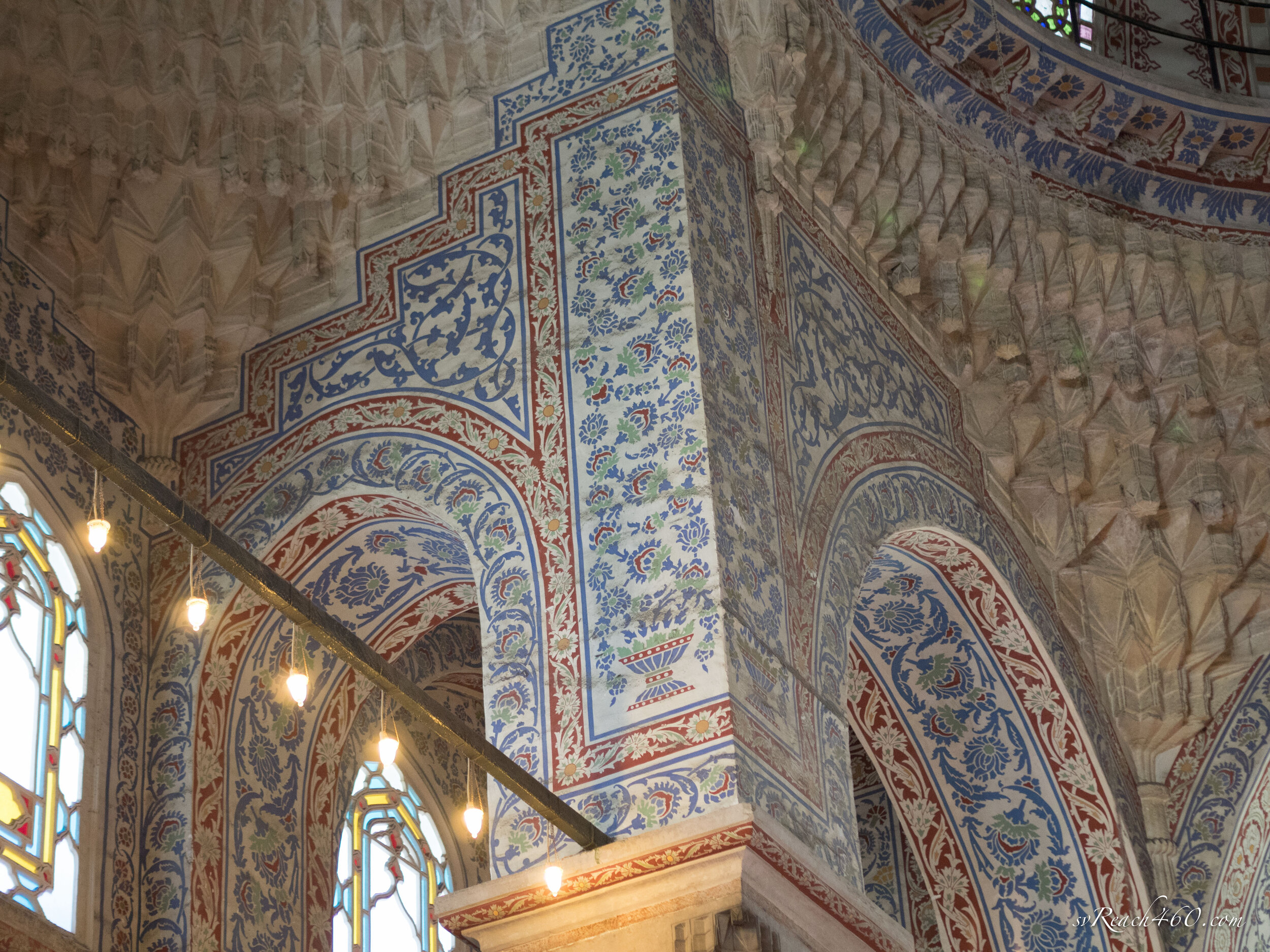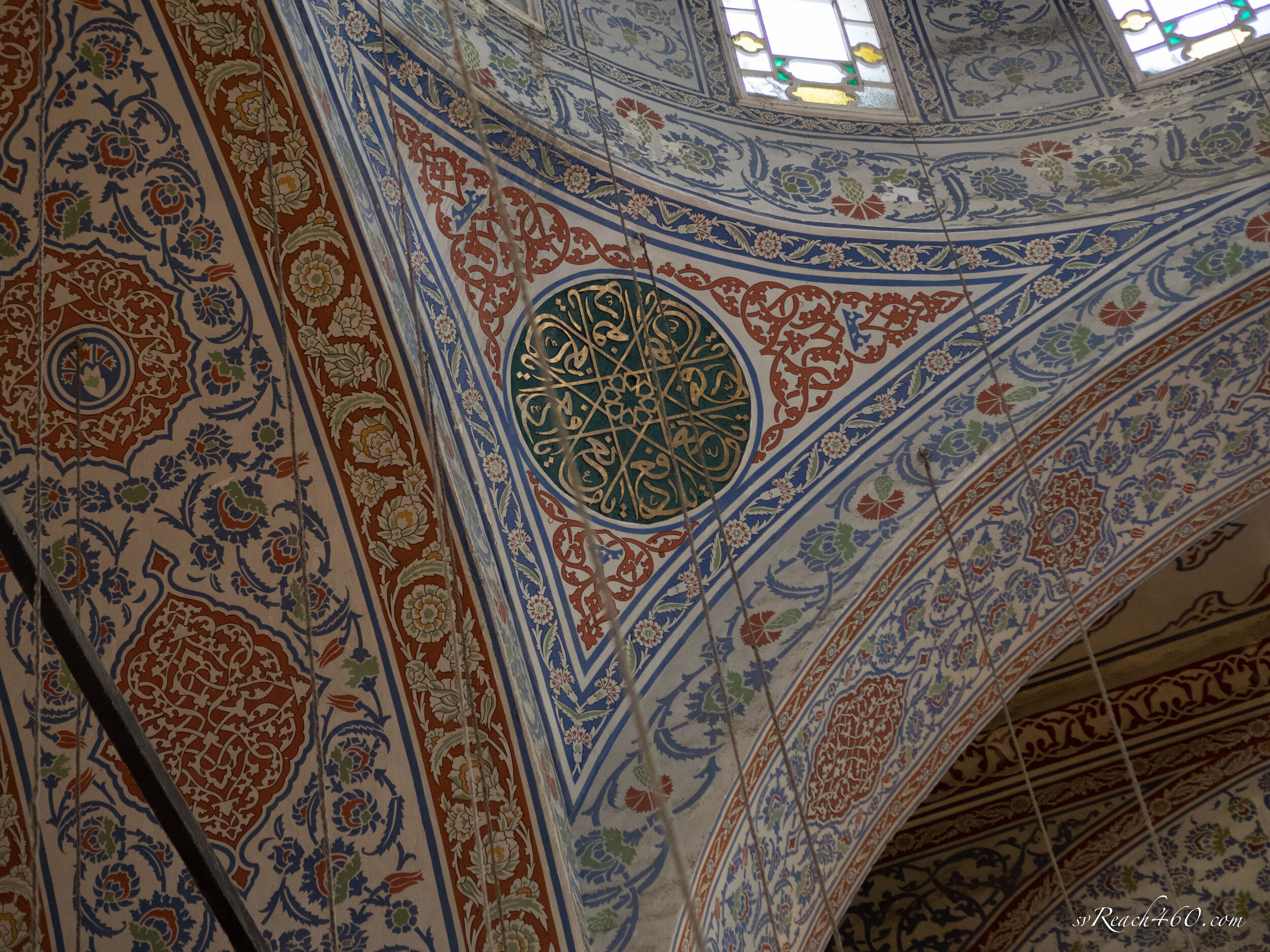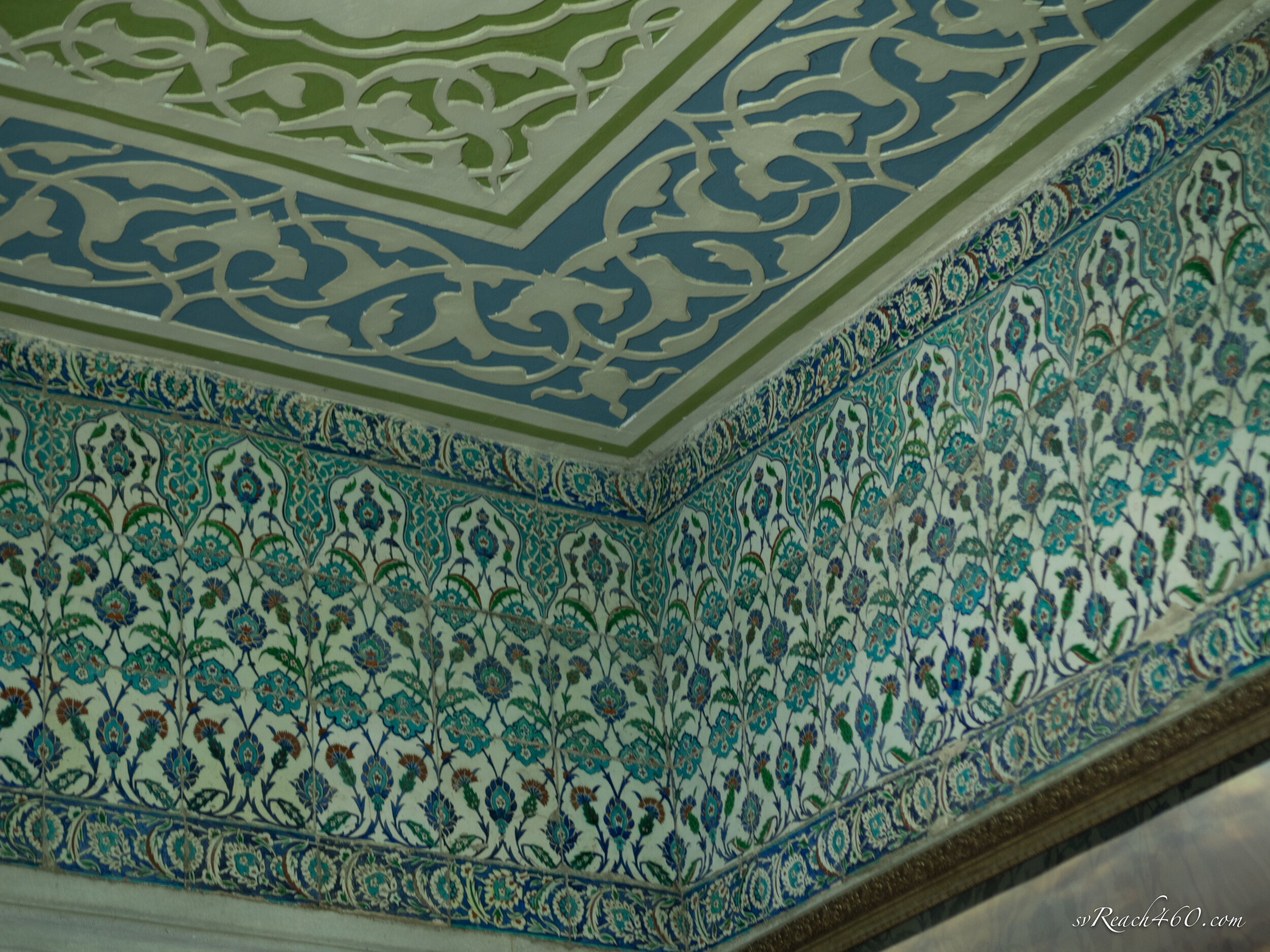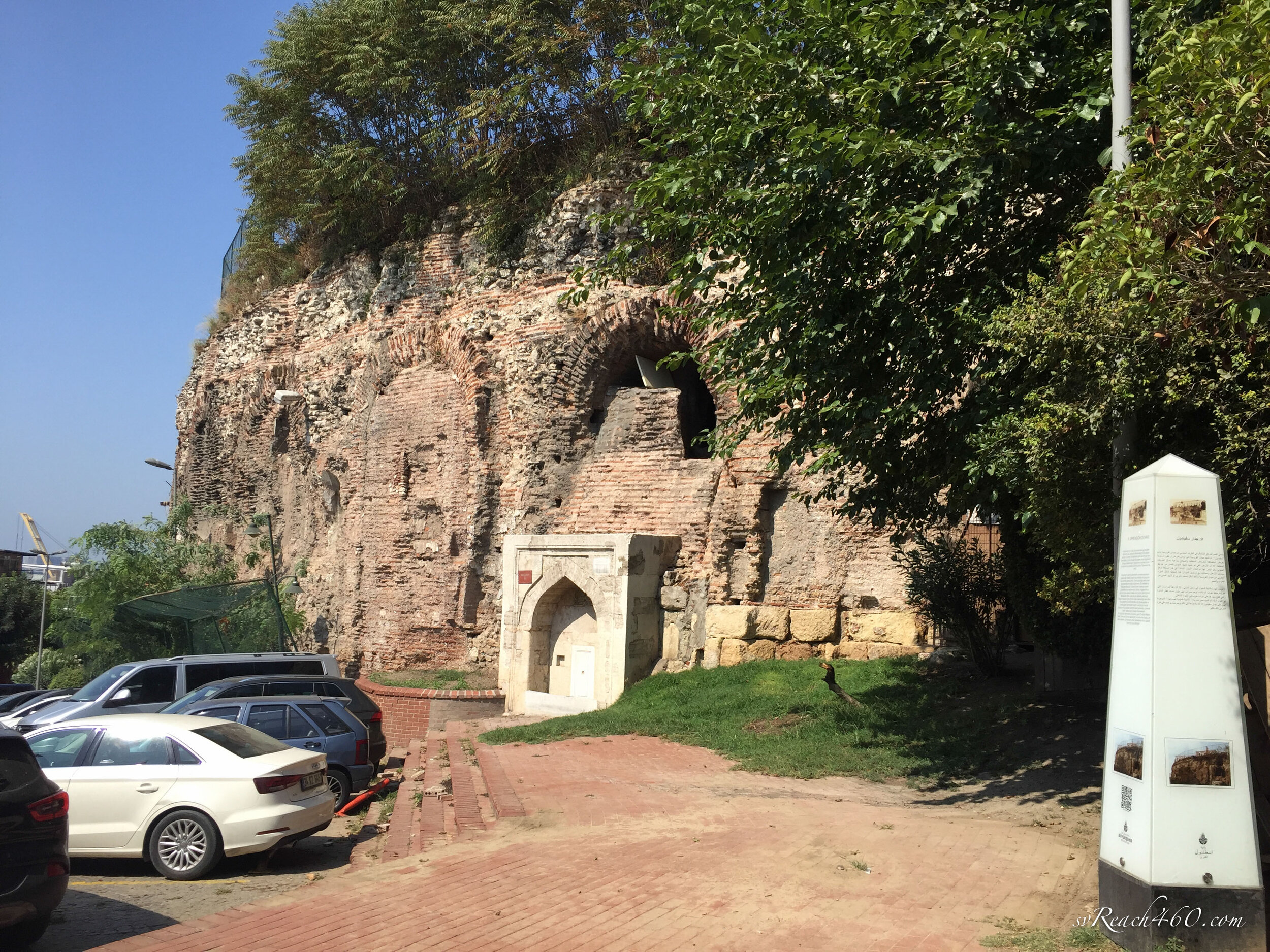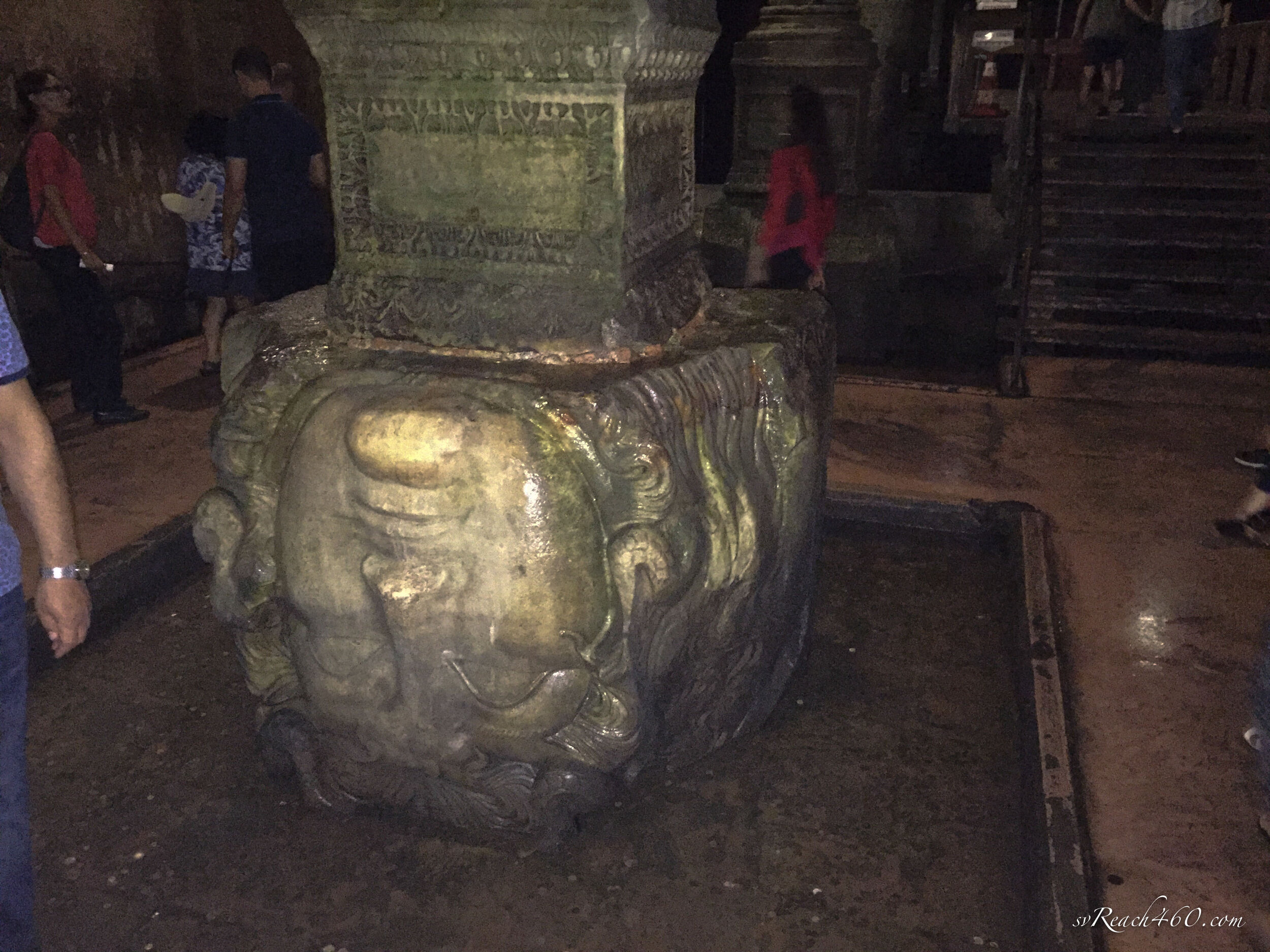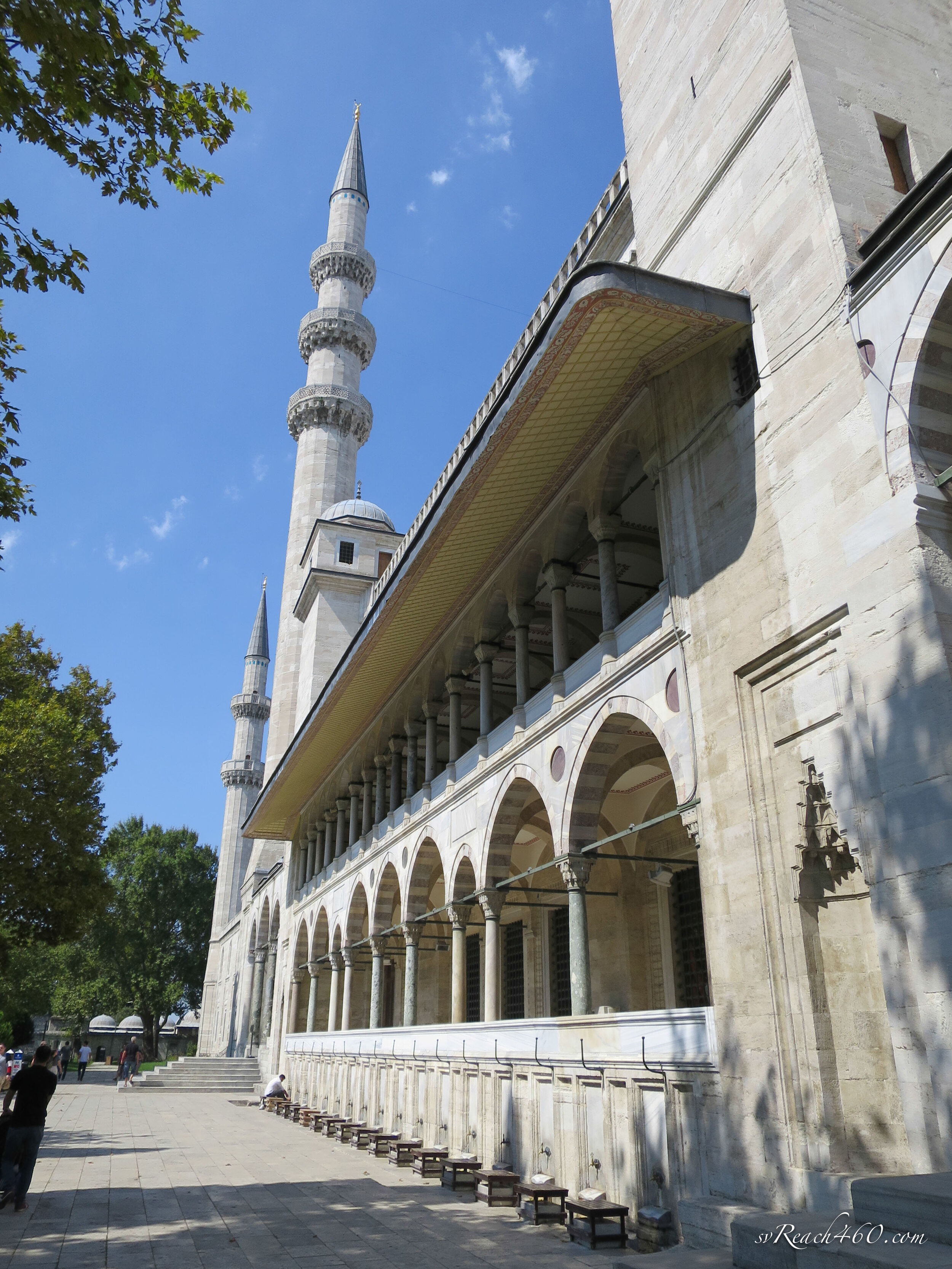Turkey - Inland
Our sailing trip to Turkey ended with inland travel. Lizz and Charlie joined us on the first leg of this trip to Capaddocia.
Approximately in the middle of the country, the entire area was a landscape unlike I’ve ever seen before.
One of the best ways to see an overview of the landscape was by air. Approximately 180 hot air balloons (~3000 people) fly over Cappadocia daily! Needless to say this was a touristy region, yet it is quite big and spread out.
I wasn’t sure how I’d feel about the height, but immediately after takeoff and a shot of adrenaline, it was an incredible and peaceful experience.
We rose up to about 1800 ft… dropped down into the valley, literally (our pilot was very good!)… then travelled over the city. It happened to be a windy day, on the verge of having to cancel flights for the day. Landing was a tricky prospect.
Coming from sea level, we had a change in altitude as this region lies up to 3/4 mile high, with ancient volcanic geology and a few volcanic peaks in the sight lines. Over time, the soft ash layers were weather worn and formed all types of unique rock formations, sometimes called fairy chimneys or mushroom rocks.
Even more interesting is that people inhabited these rocks by carving out homes, fortresses, churches and monasteries, pigeon holes where guano was farmed, and even an entire underground city!
All of the hotels were “cave” hotels, including ours. We had a beautiful venue right next to the old fortress Uschisar. The rooms were unique and the views incredible. All of the hotel areas including a Turkish Bath were connected by underground caves.
In our experience it is well worth it to have a personal tour guide to get the most out of the trip (to supplement any pre-research or reading we can squeeze in), while not getting stuck in big groups and being able to navigate or avoid the touristy areas/peak times with ease.
We all appreciated our very knowledgeable & chill guide Sukru for two days exploring the area.
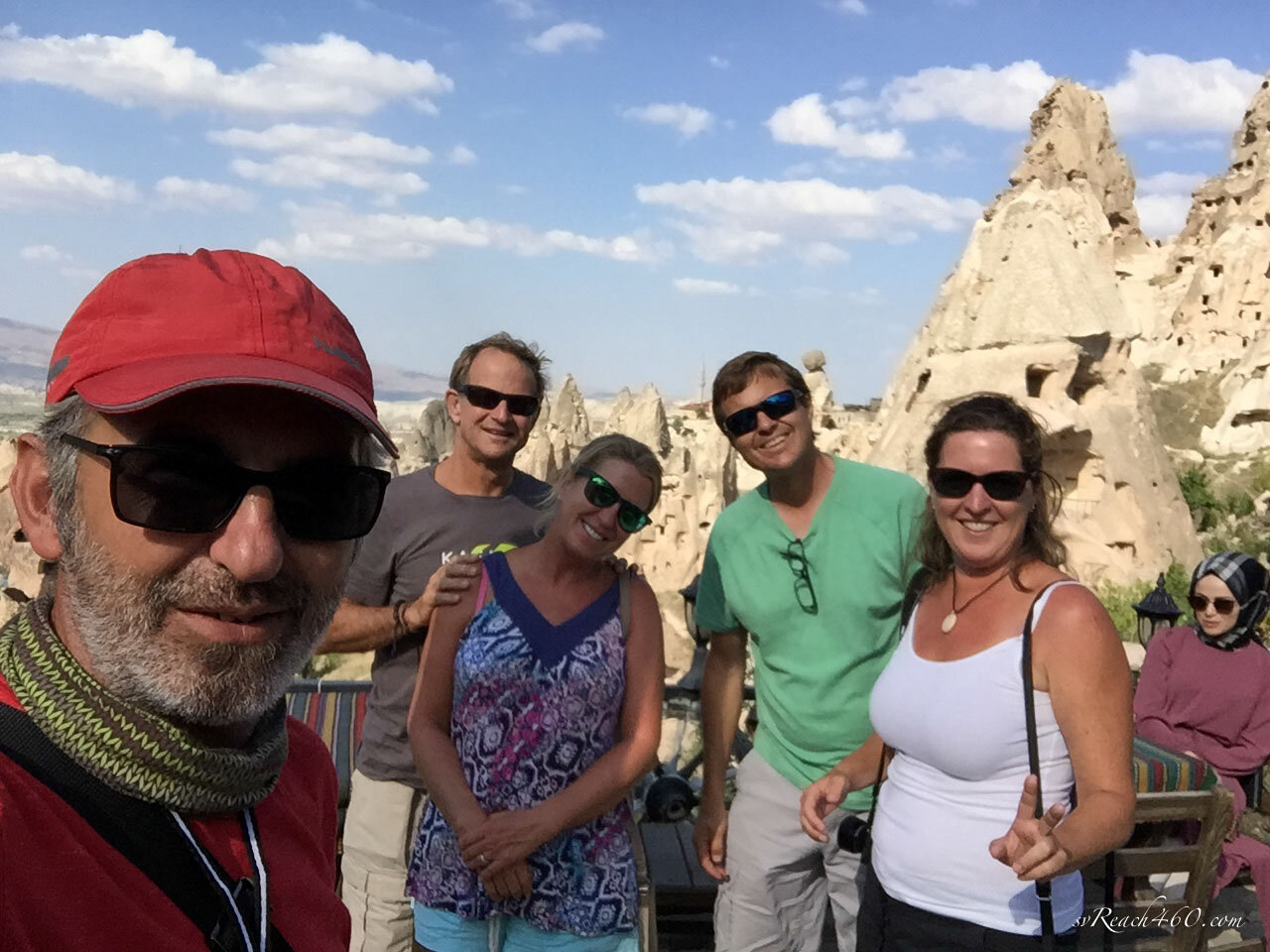


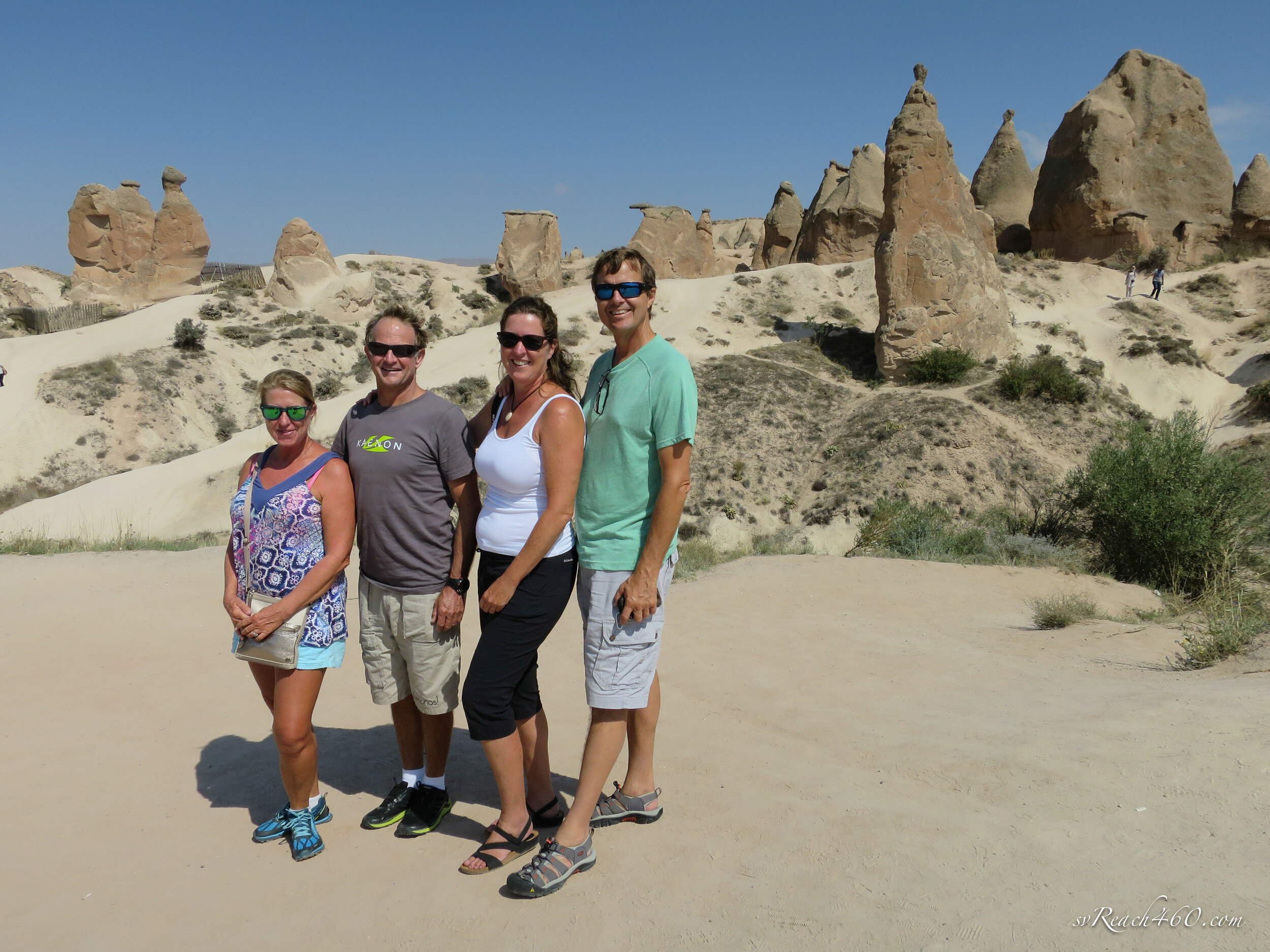


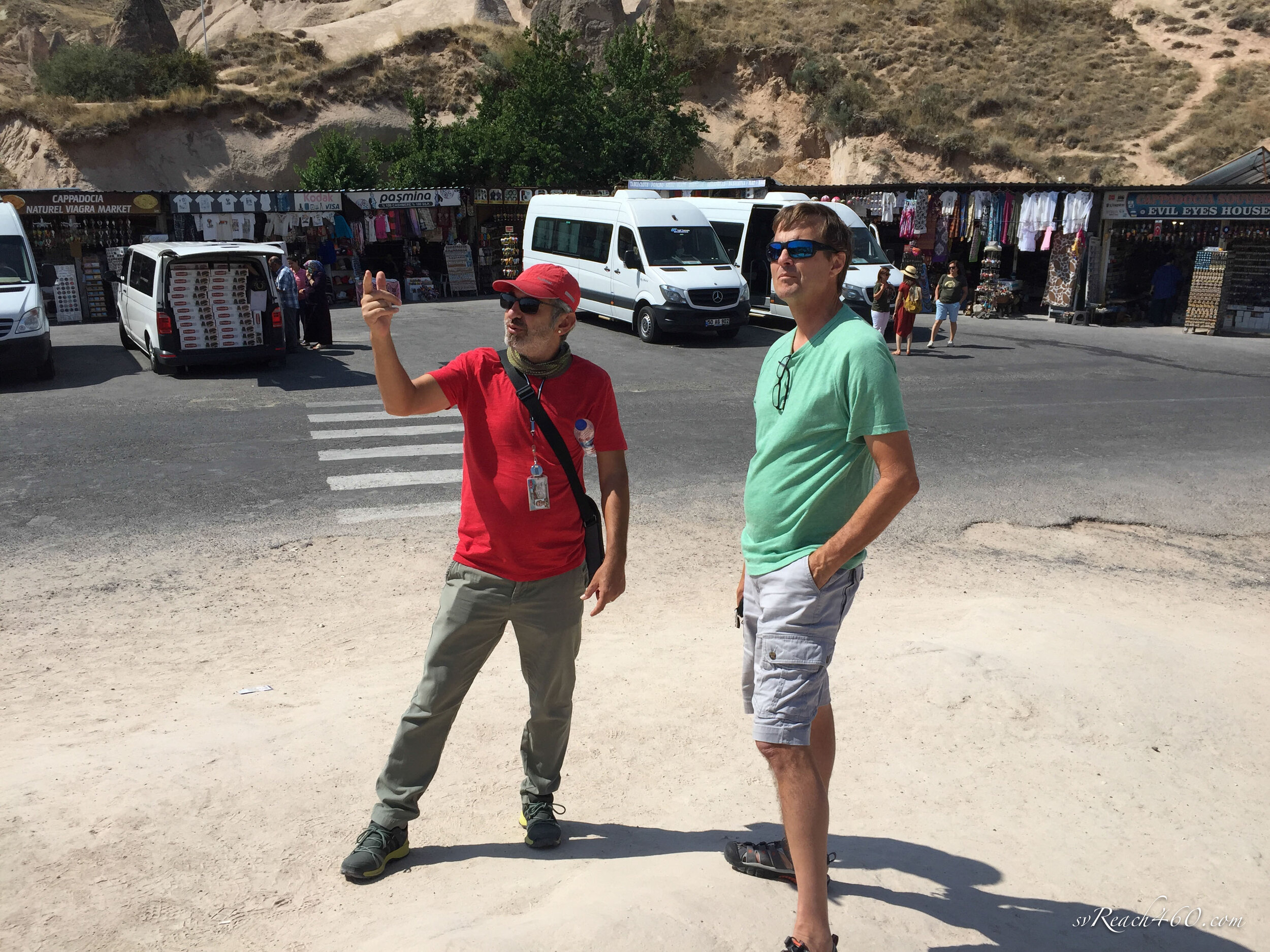
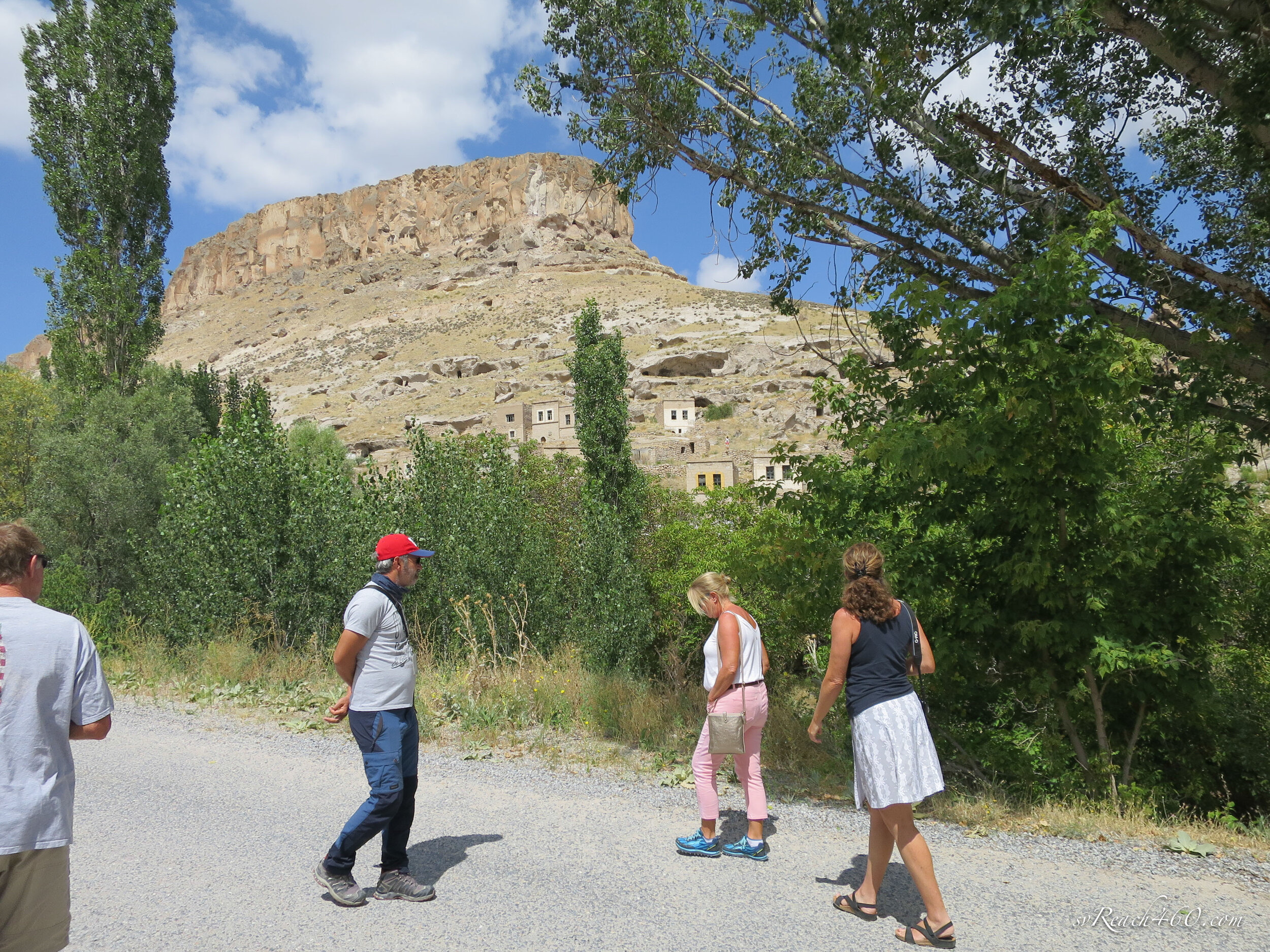
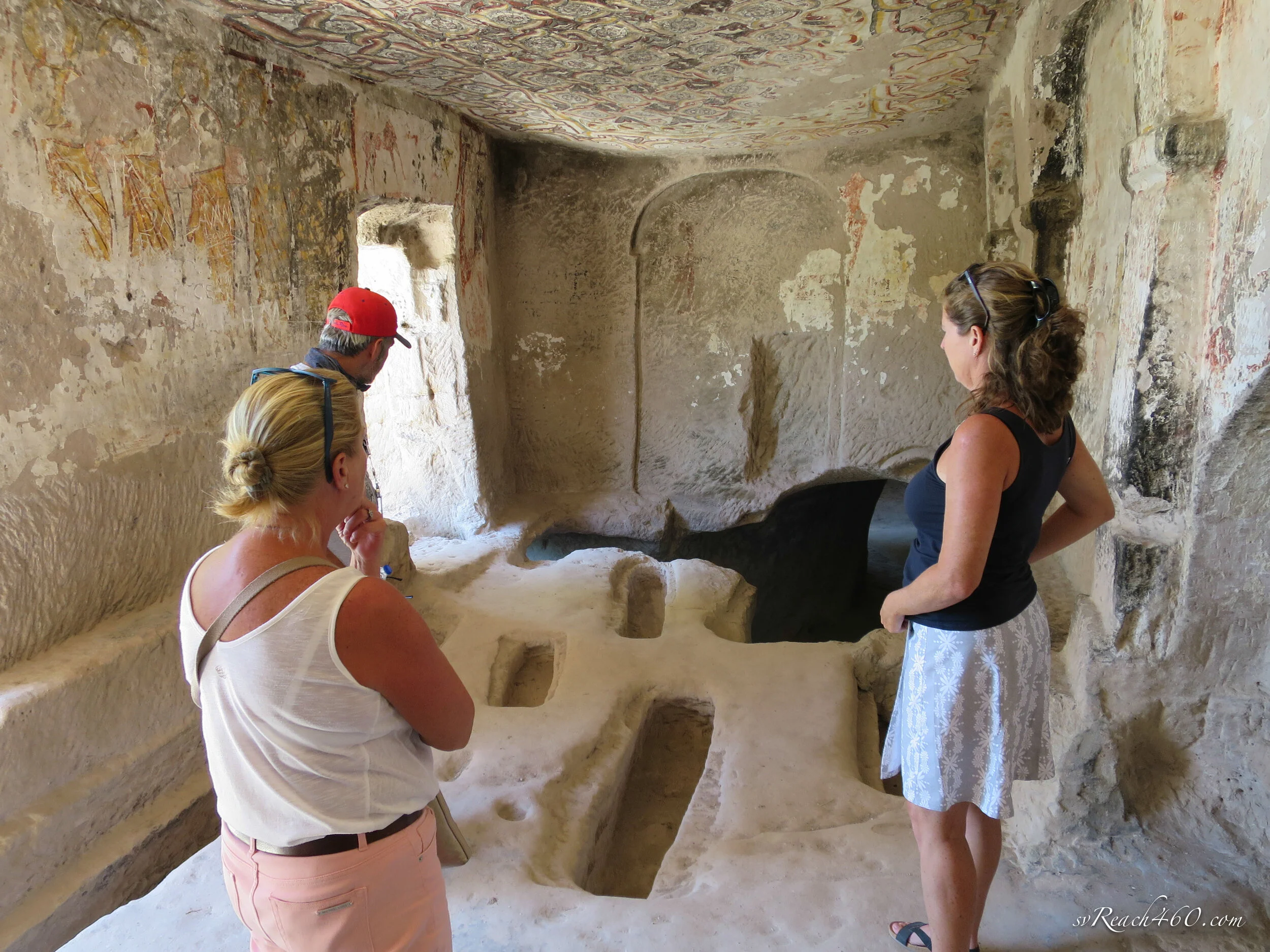

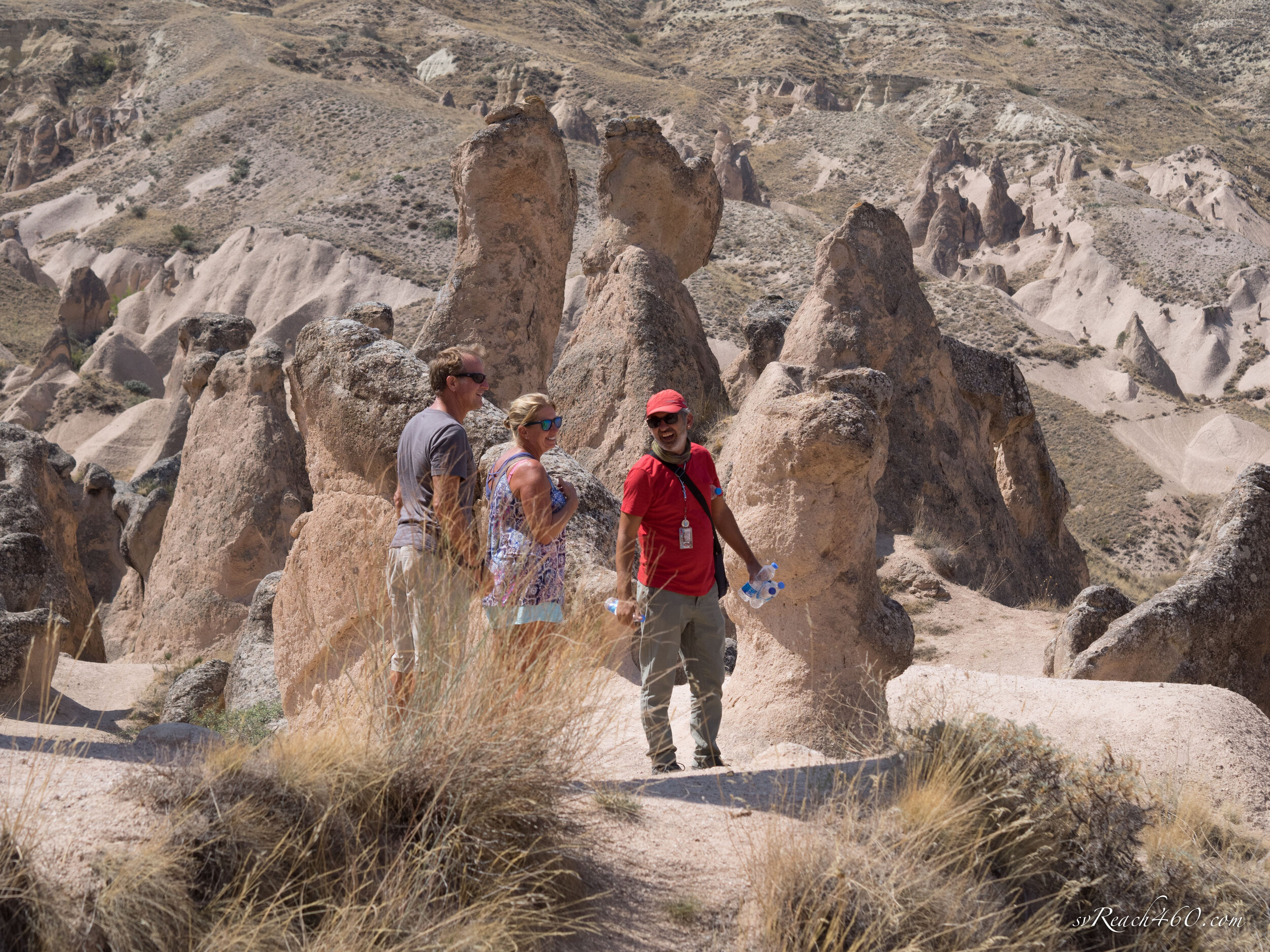
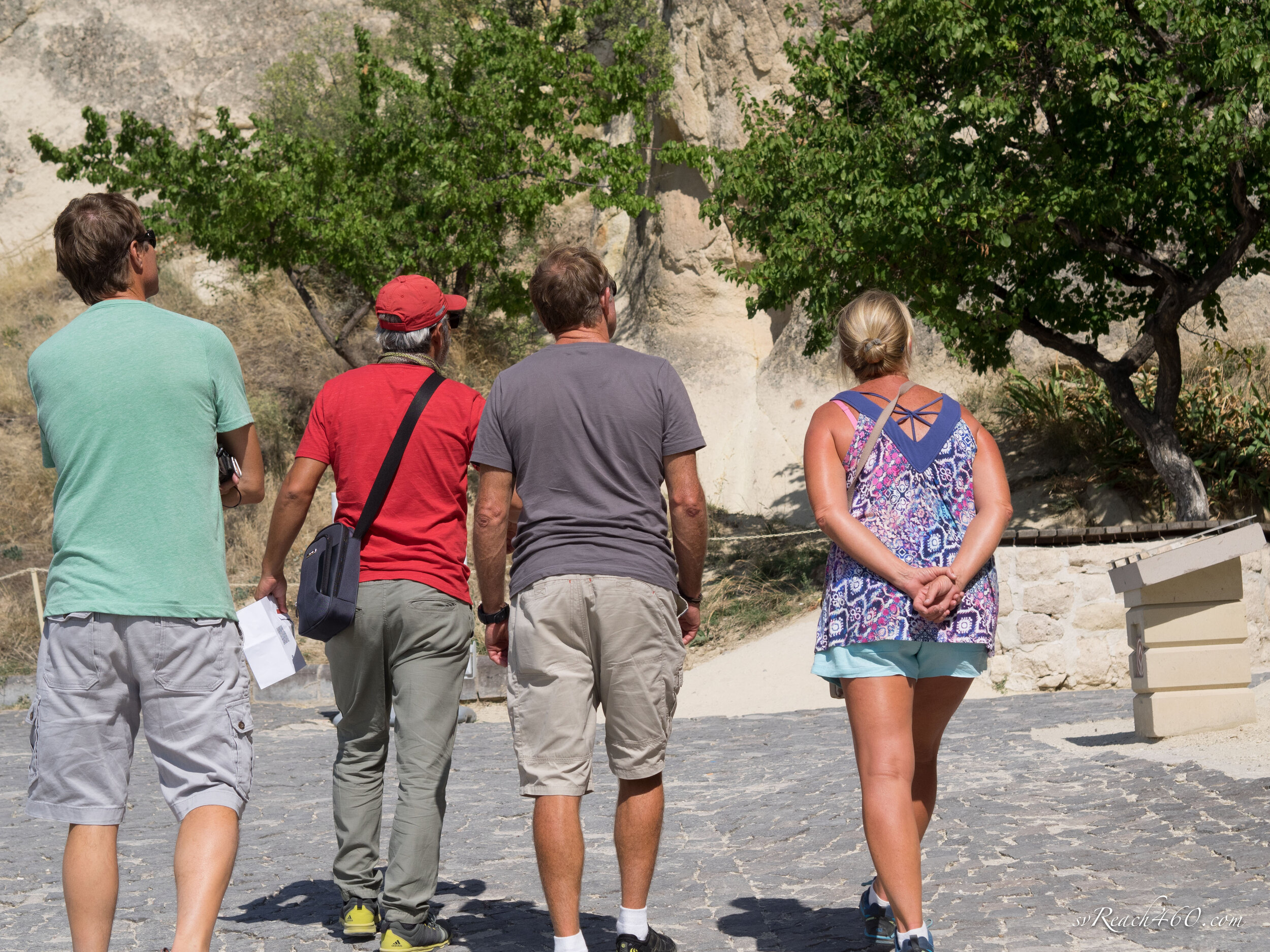
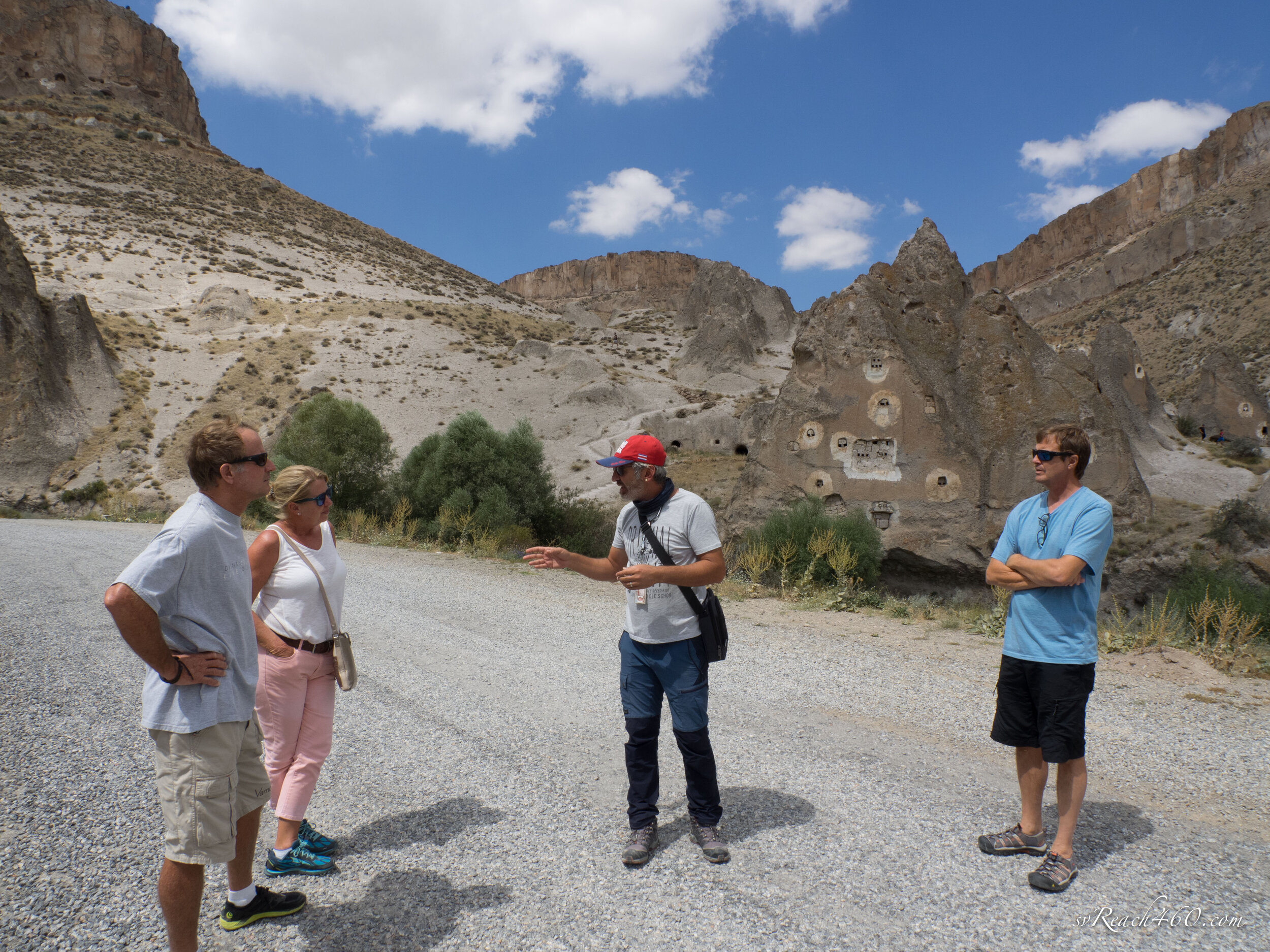
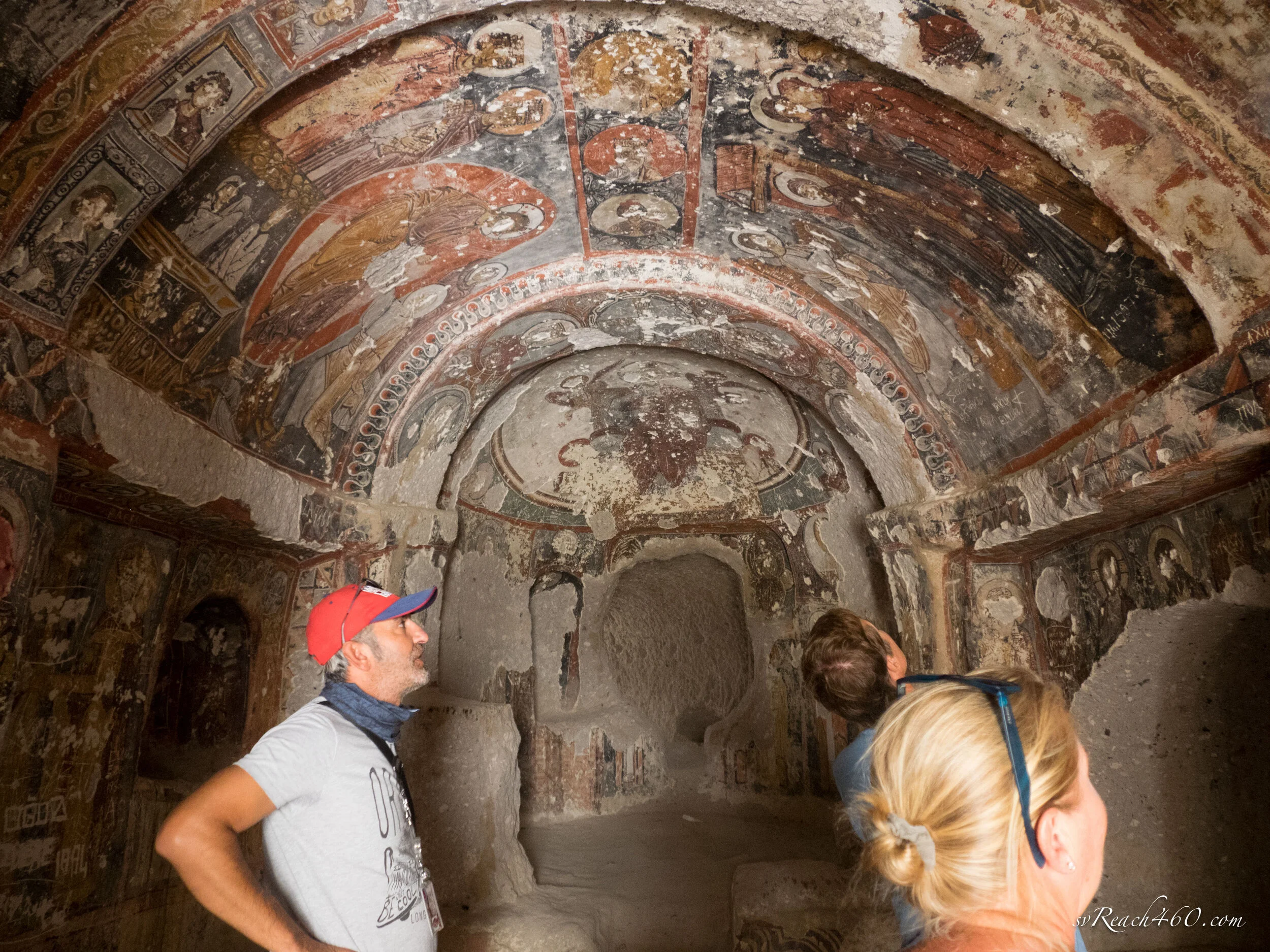
Highlights of our tour included the mushroom rocks (topped with a hard basalt layer on soft ash), the Imagination valley (think cloud-spotting only with rocks), pottery traditions (dating back thousands of years), ancient Byzantine churches carved into rock (with paintings showing the development of Christianity, later defaced during the Iconoclastic period) , and the incredible underground city of Kaymakli.
The underground city originated as far back as 8th century BC with the Phrygians. It was used by Christians for refuge/protection in the Byzantine era and continued use until as late as the early 20th century AD until the Greek/Turkey population exchange.
There were seven floors in the area we toured, with very narrow walkways and stone wheels used to block these walkways from invaders.
After a wonderful three days in Capaddocia, Mark and I flew into Istanbul while Lizz and Charlie returned to Kaya. We absolutely loved sailing and traveling with them and are very much anticipating the day when Reach and Kaya share an anchorage again!
The Bosphorus straight separates Europe and Asia and Istanbul lies on all sides, encompassing the so-called Old City, New City and the Asian City. I was thrilled to visit this historically diverse city at the nucleus of the Silk Road.
We stayed right in the heart of the Old City, in walking distance to most of the major monuments and markets. On our first afternoon we took a culinary walking tour which was full of sights, sounds and tastes of the city. So much fun ~ the Spice Market was incredible!
The next day we had a guide show us the main sites: Hagia Sophia, Blue Mosque, Underground Cistern, Grand Bazaar and the New City. I was most impressed with Hagia Sophia.
I’m not sure that there is anywhere else in the world you can witness this mix of religious artifacts combining Christianity and Islam.
Among marble walls, intricate mosaics of Christian images (historically plastered over with sections now uncovered) sit right next to the grandeur of the minarets, mihrab and minbar.
The building itself grew over centuries since the Roman period where and layers upon layers of were built up and out to create this incredible architecture. There are buttresses added on all sides to hold it all up after earthquakes shook its massive form.

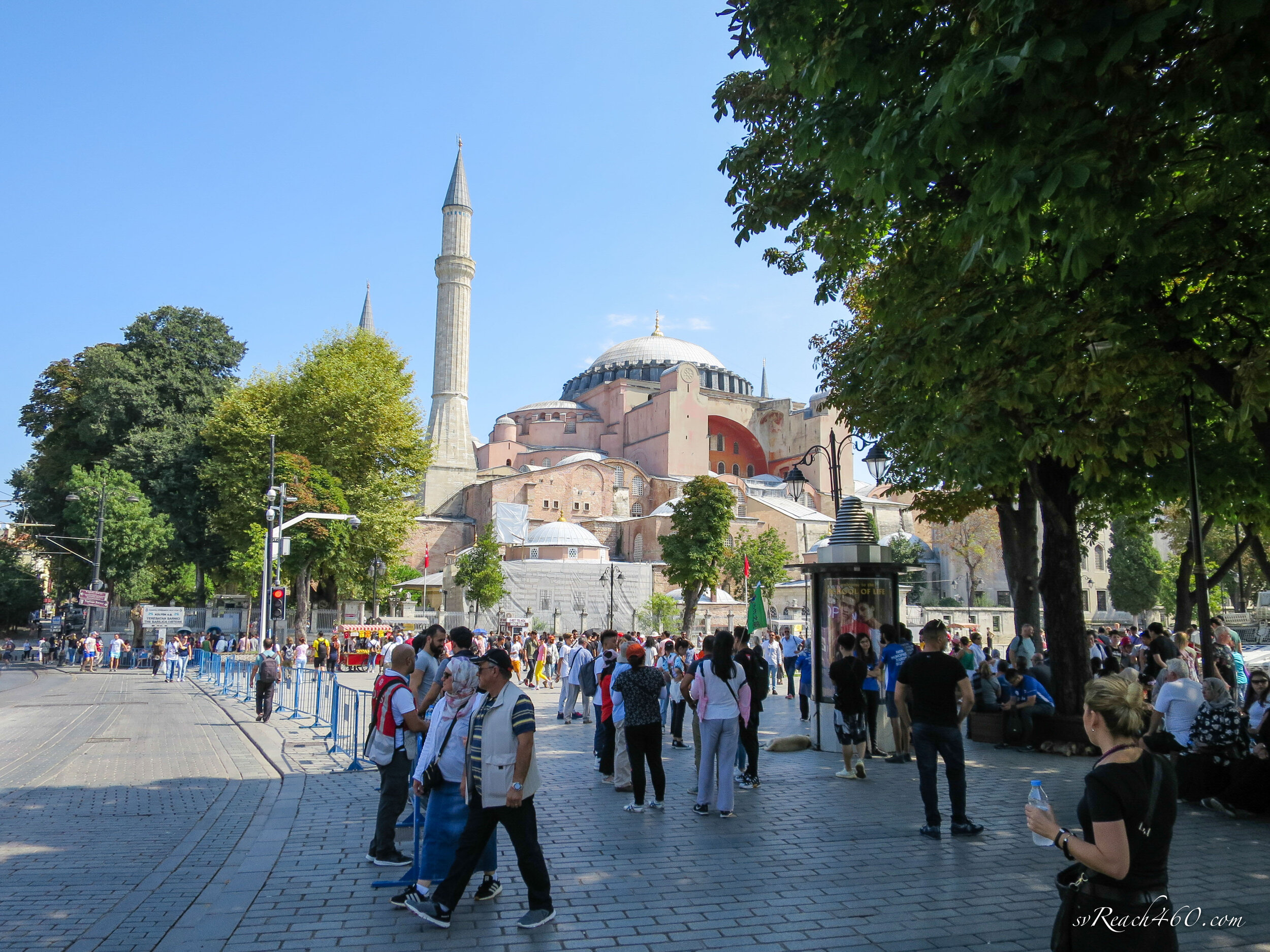
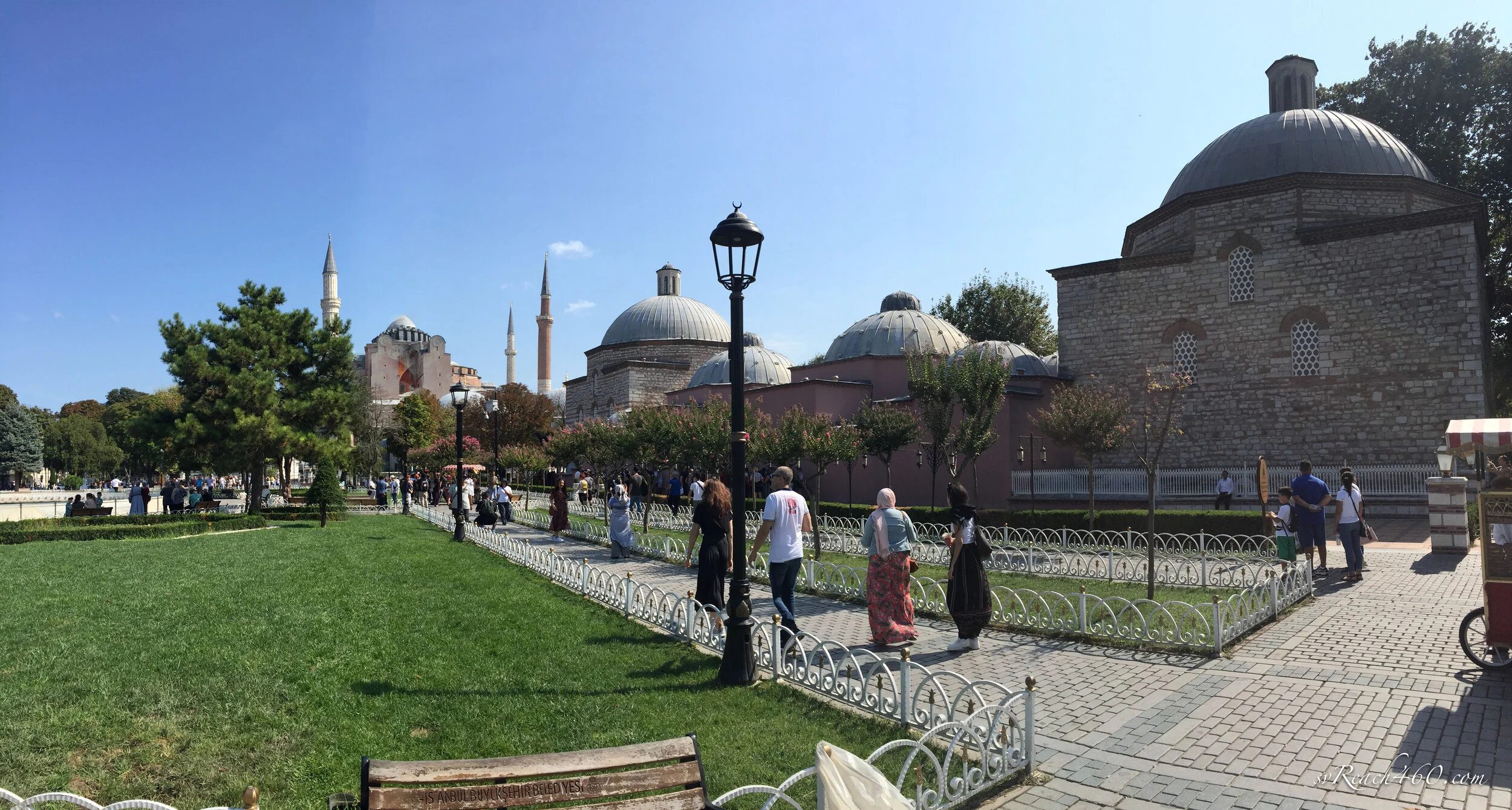
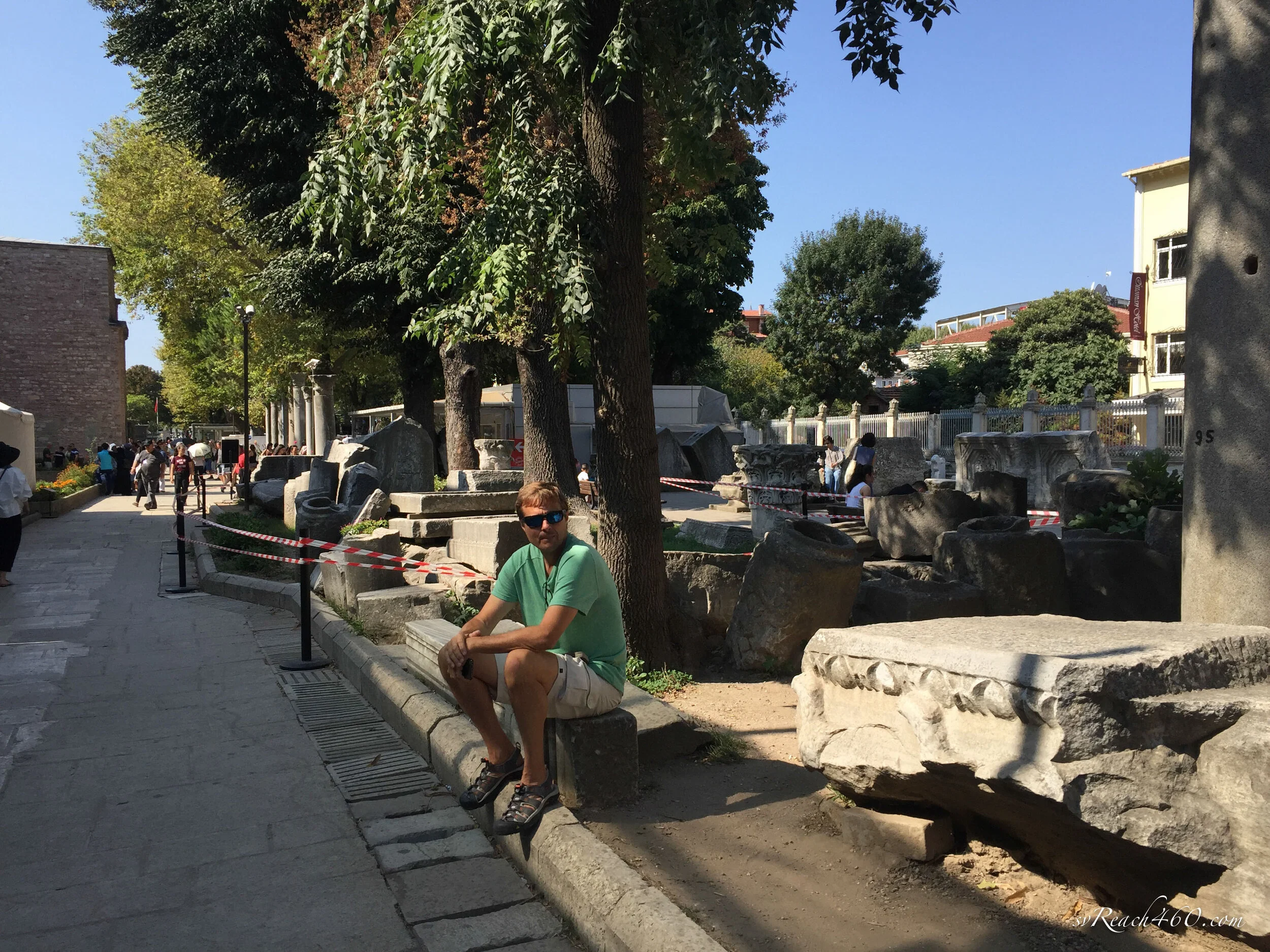

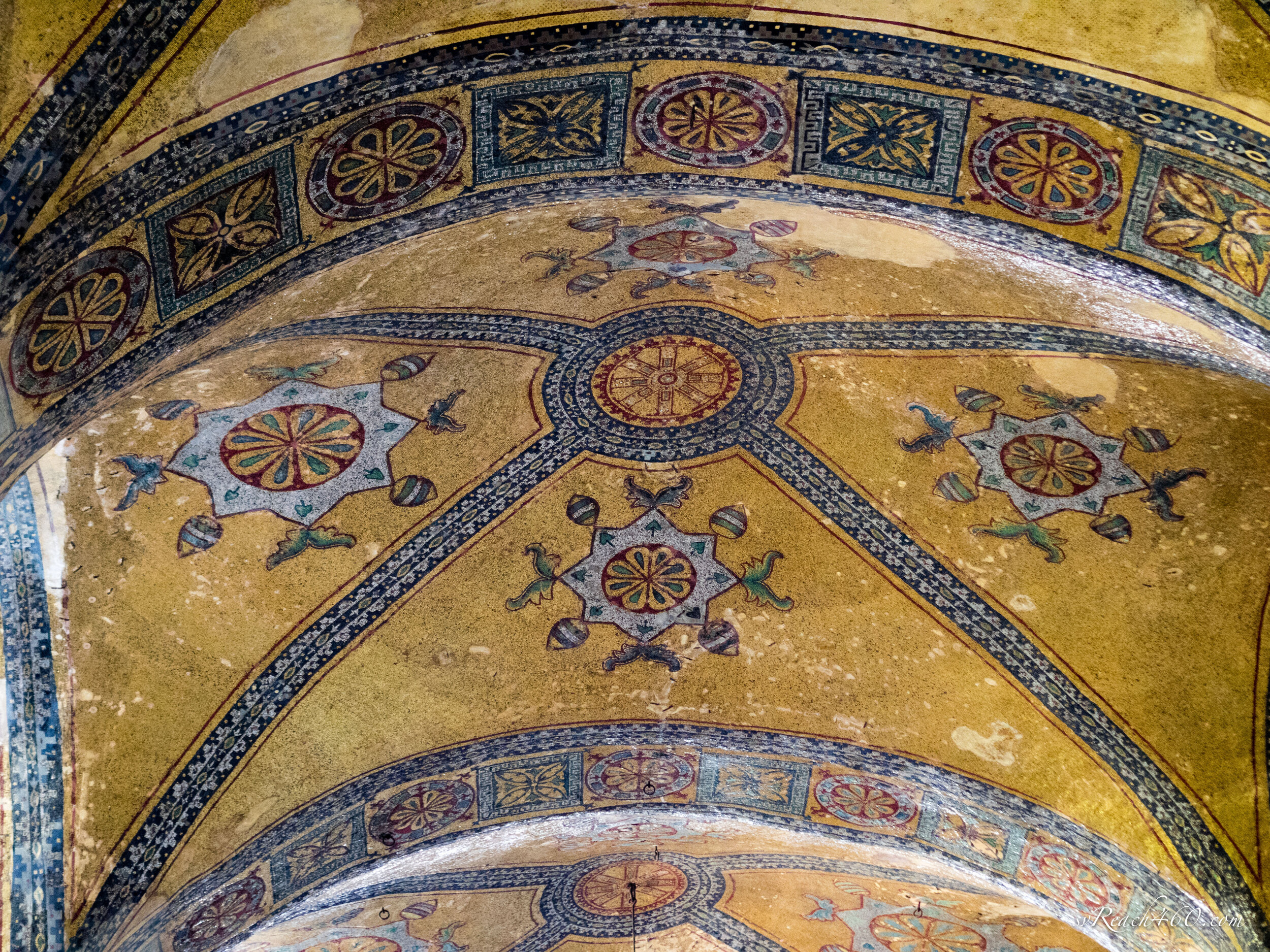
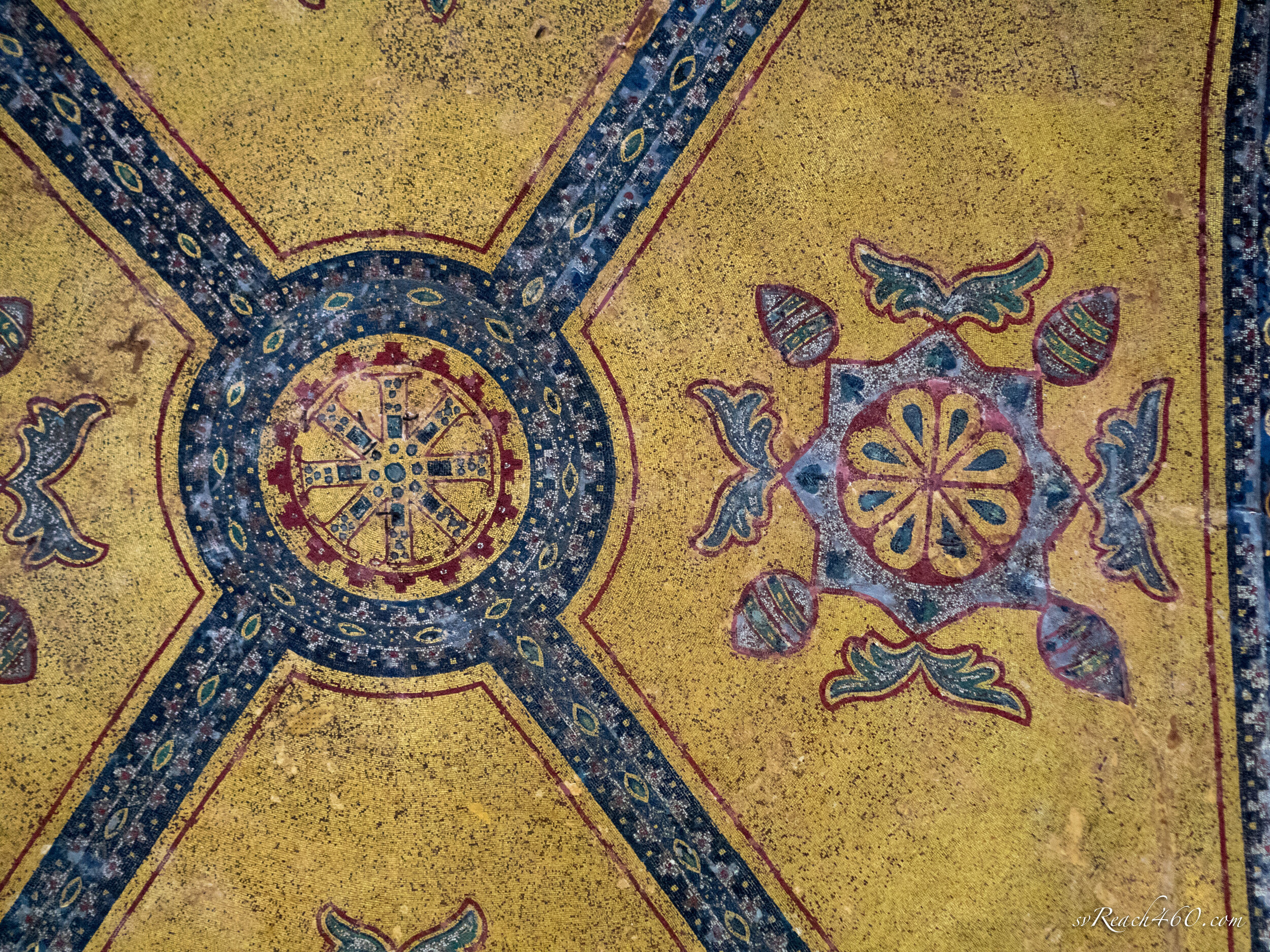
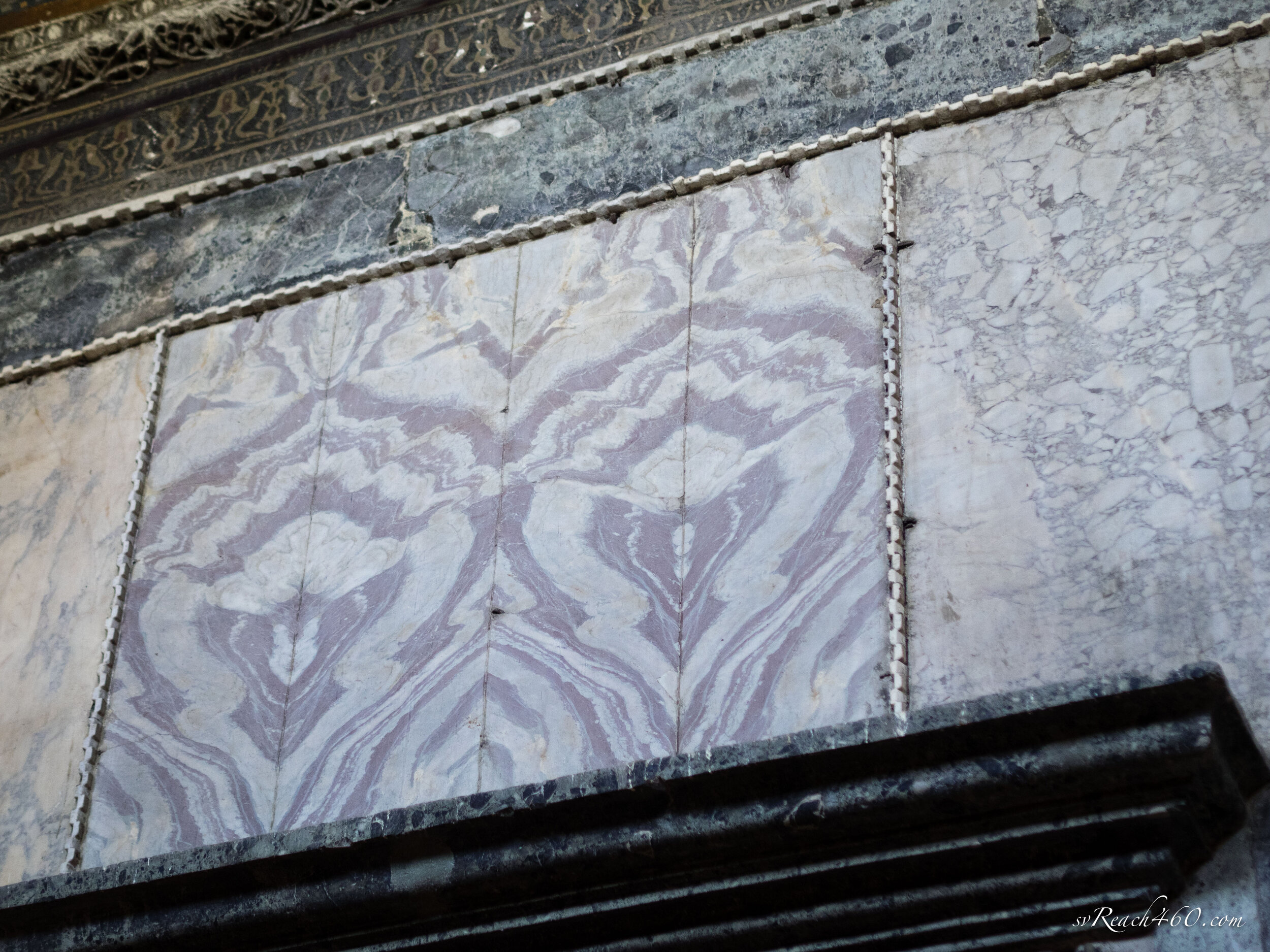
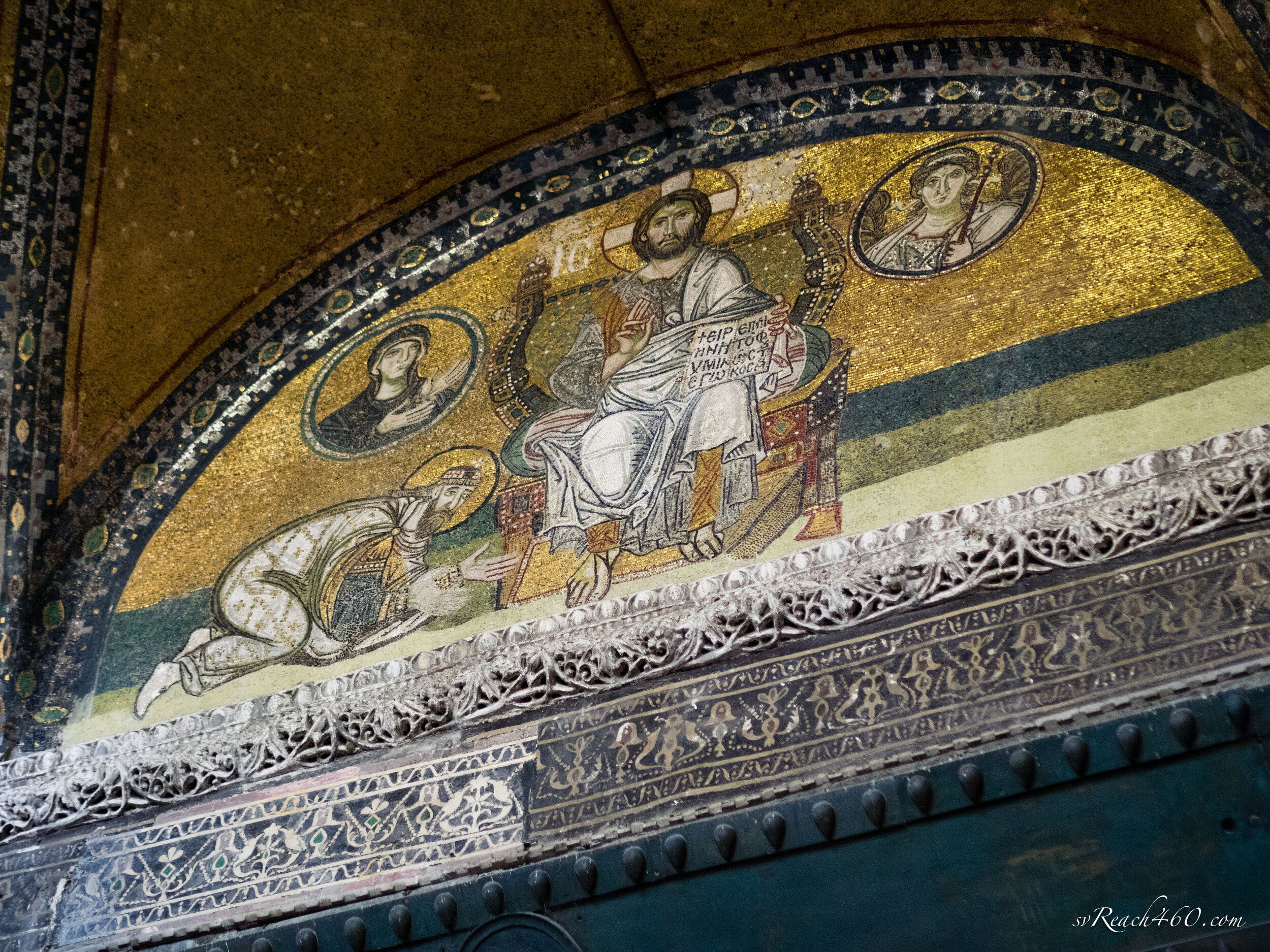
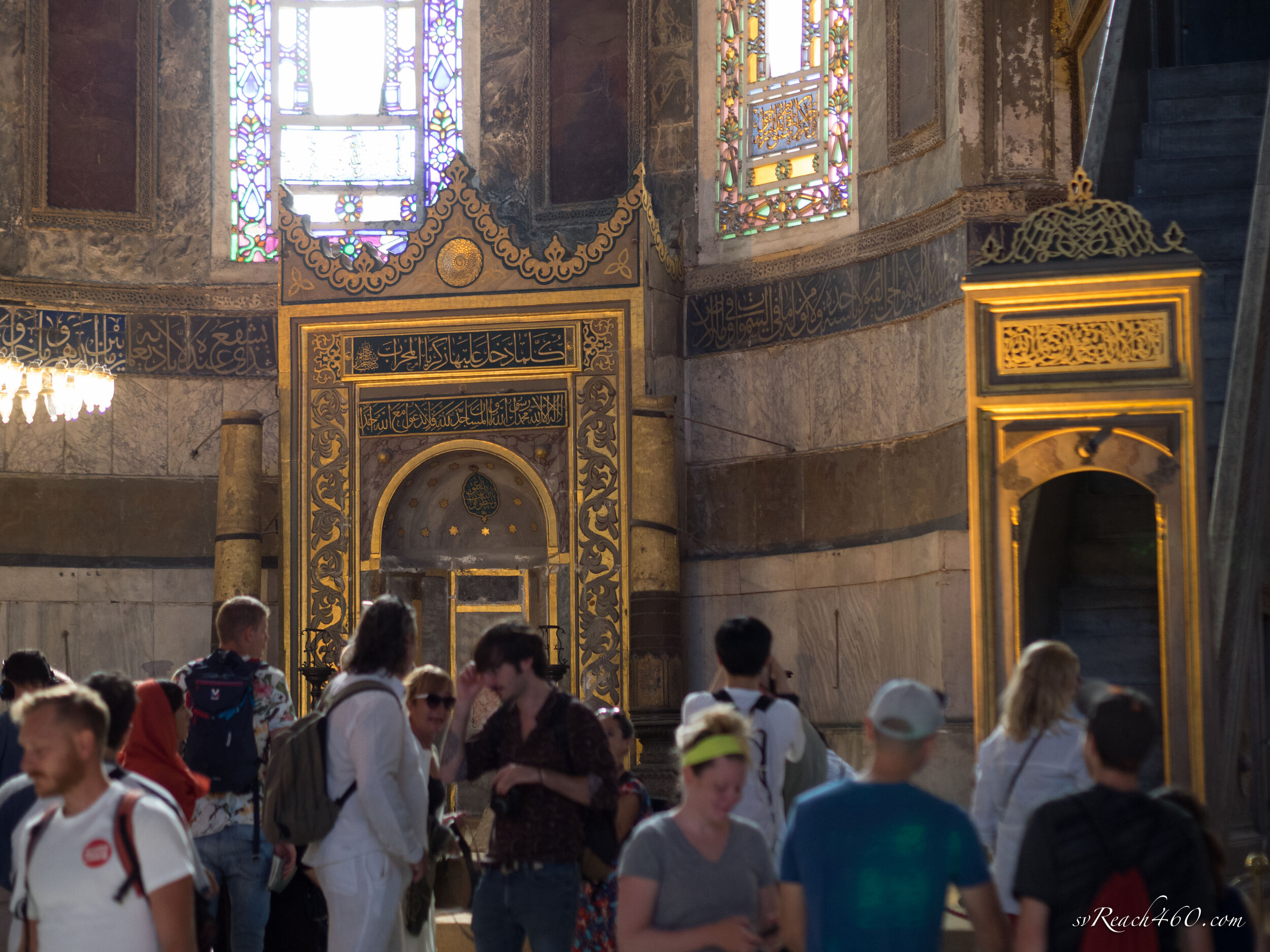
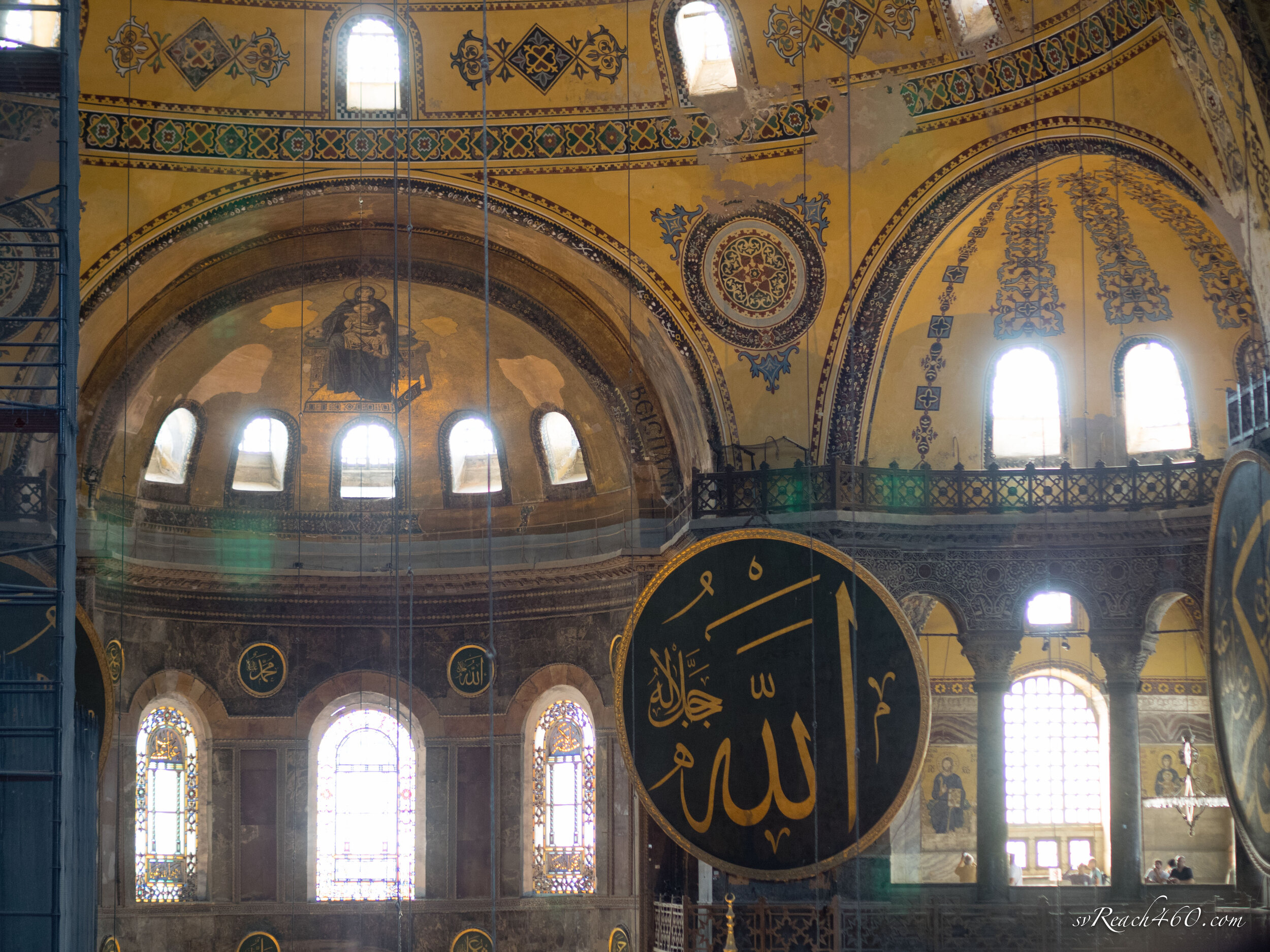
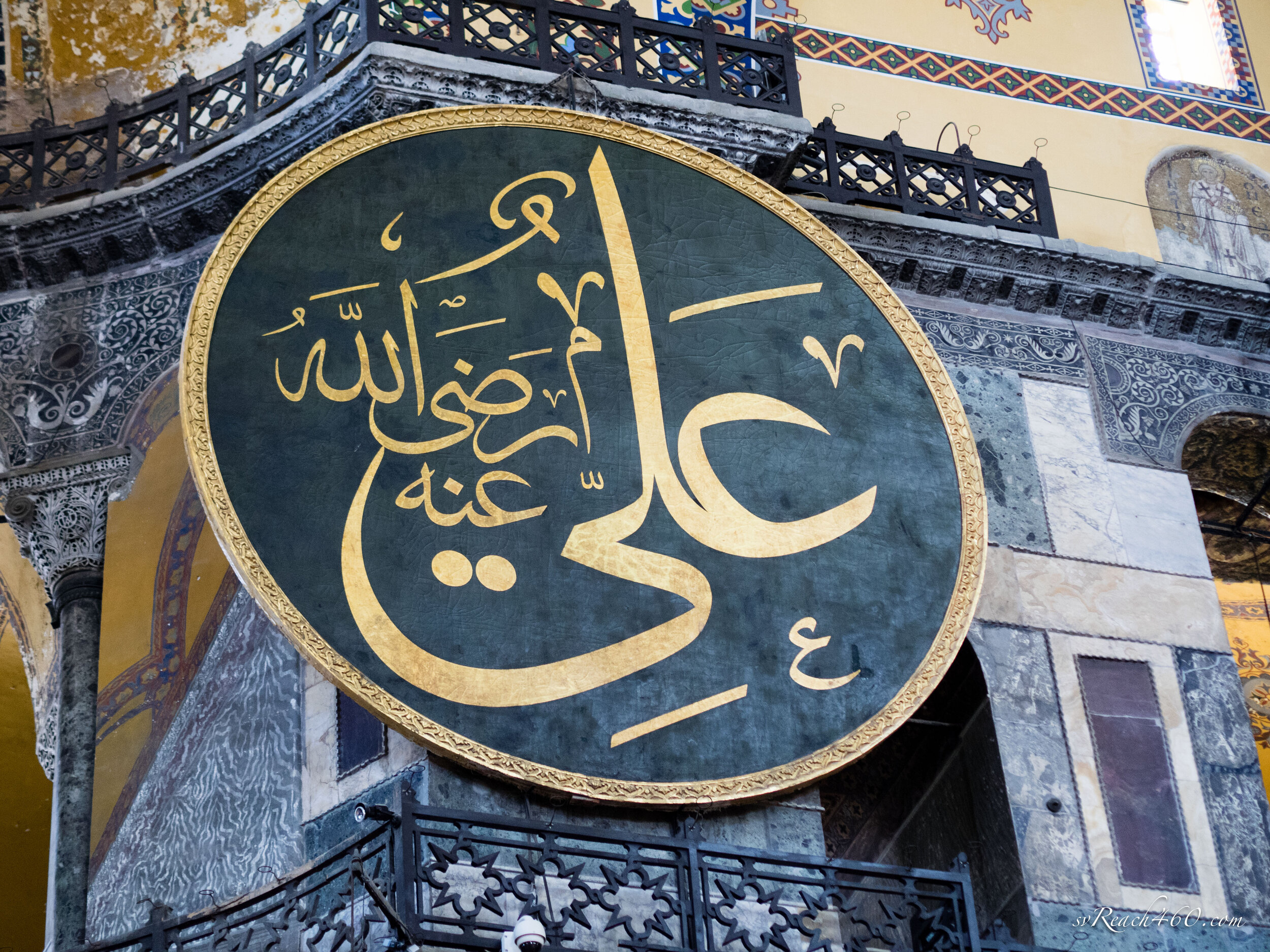
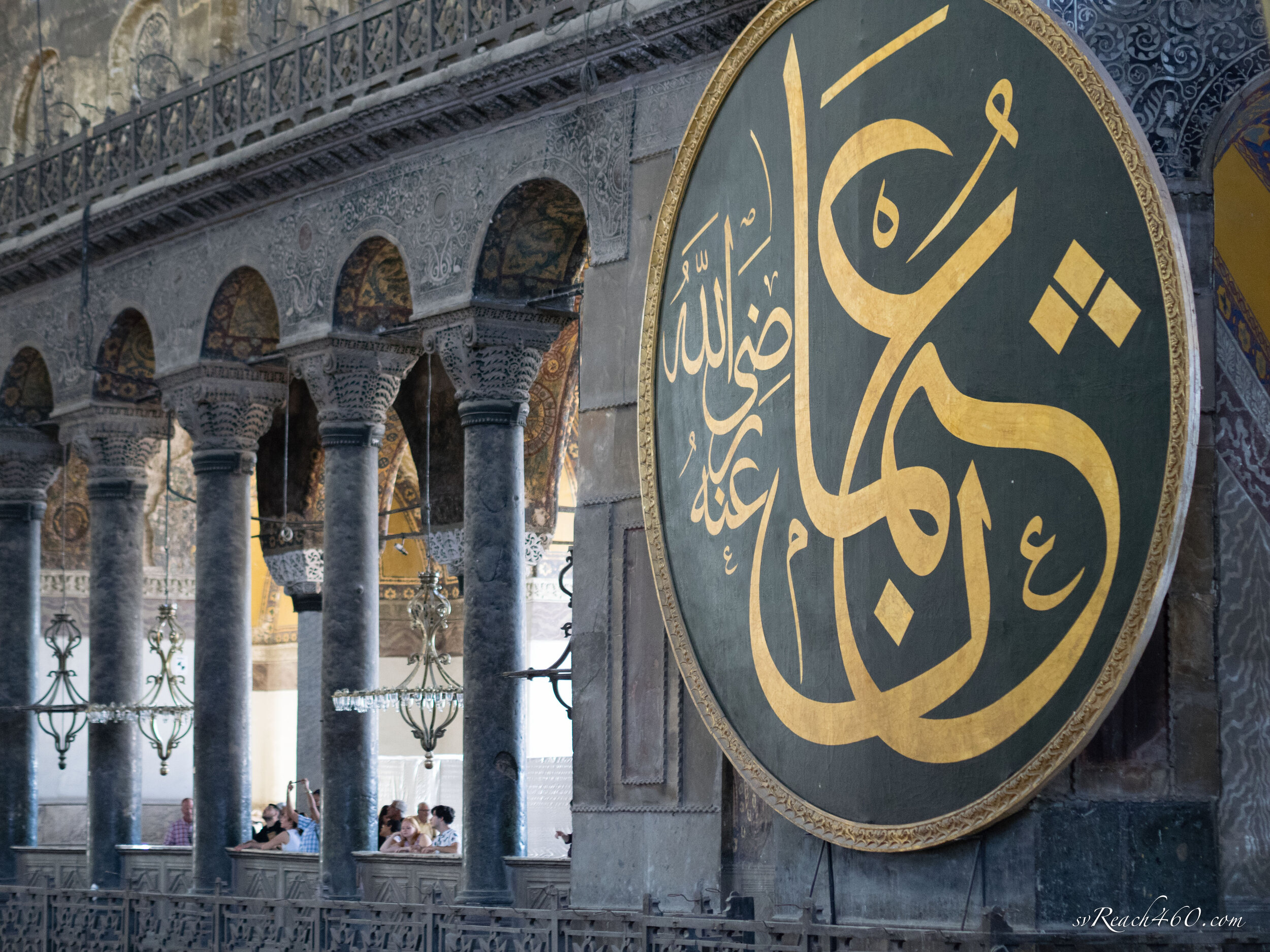
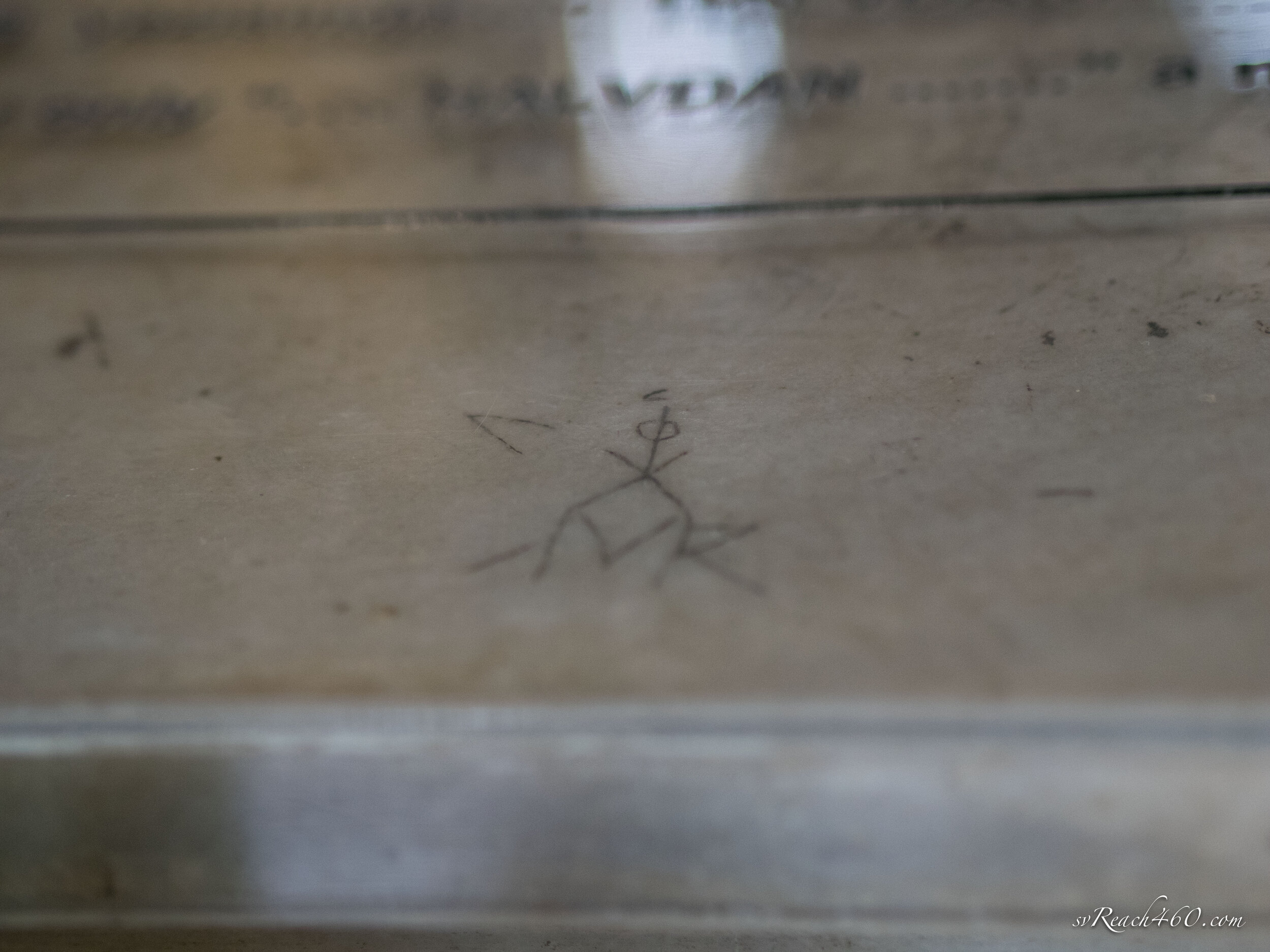
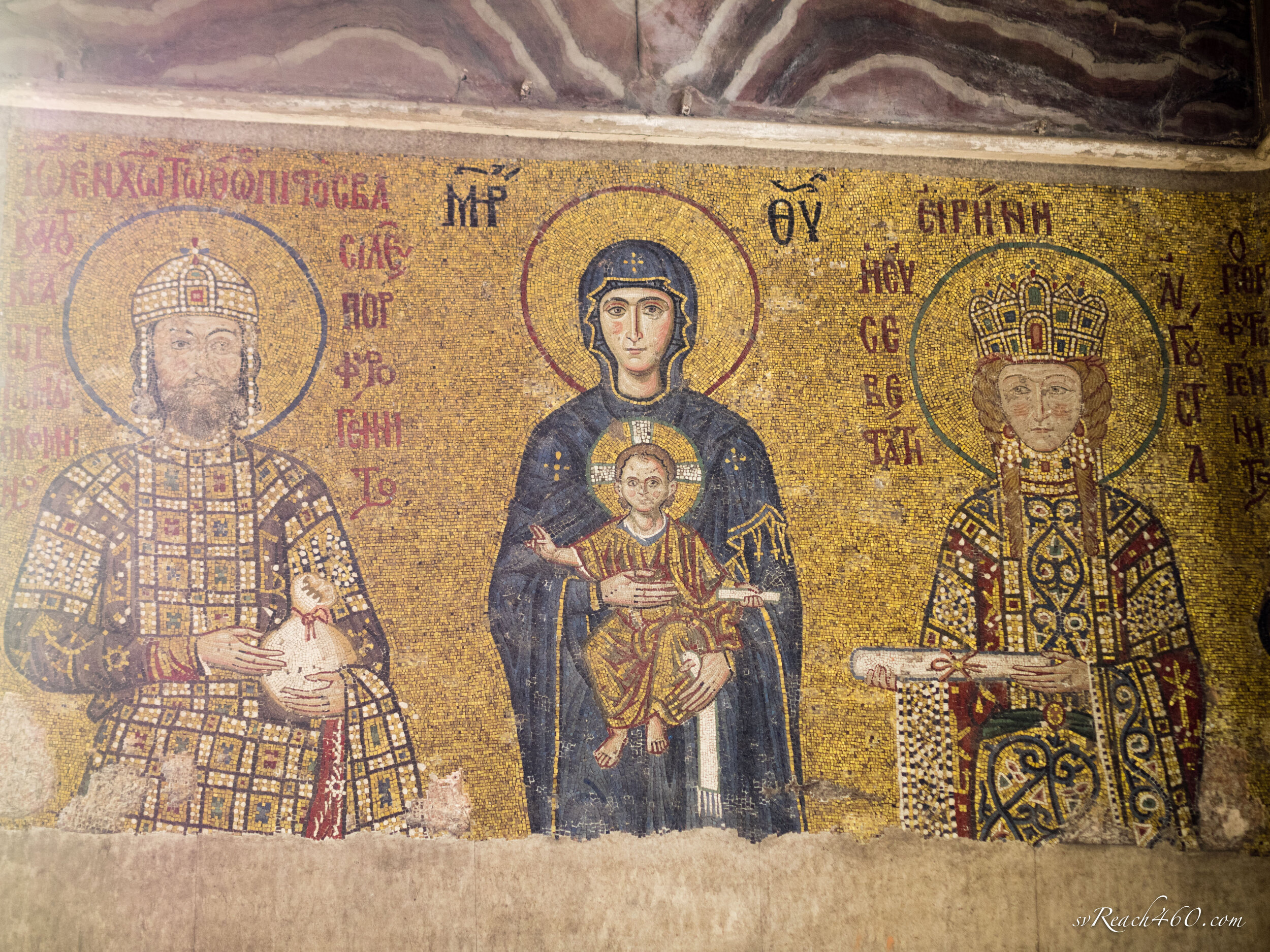
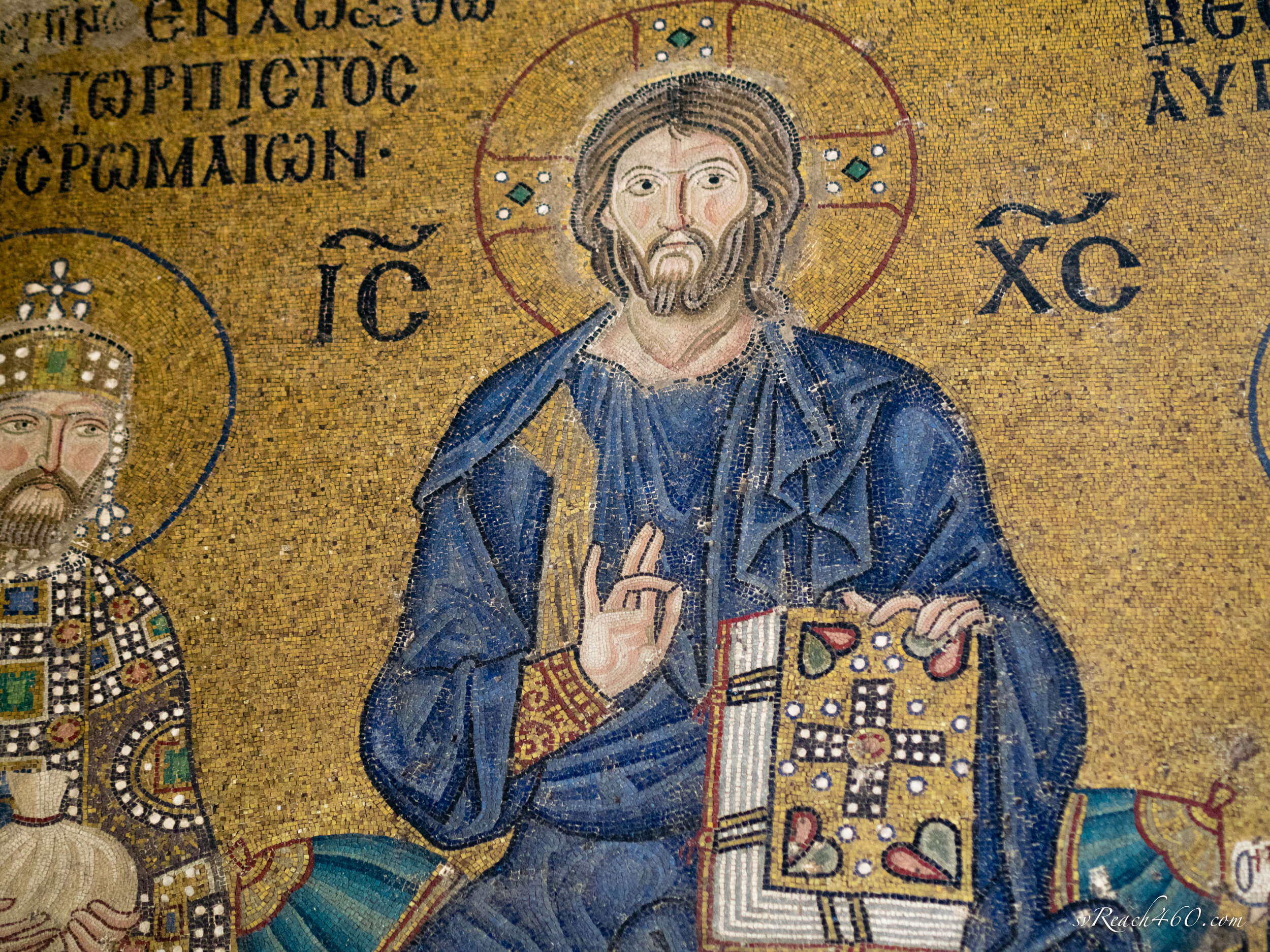
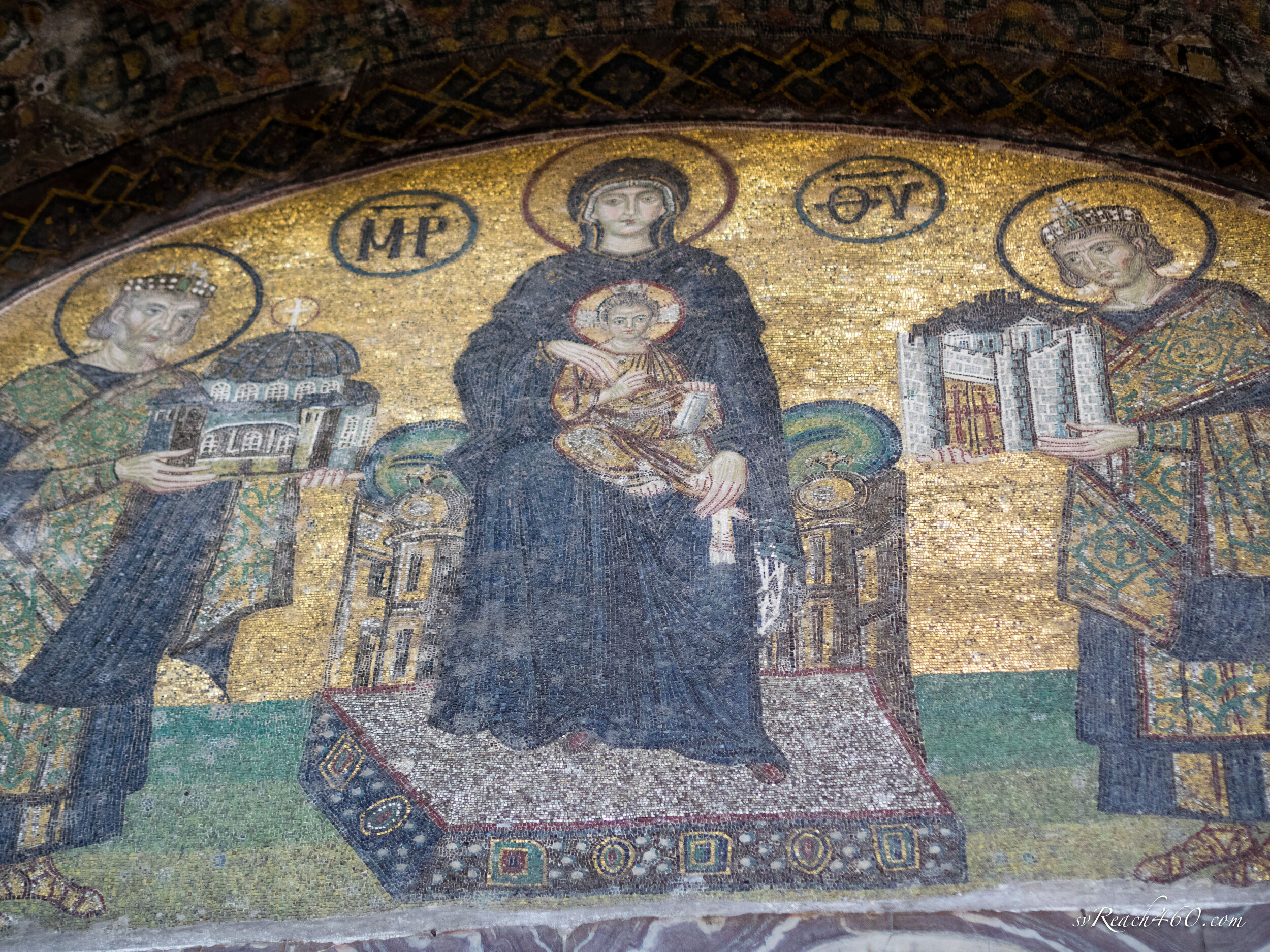
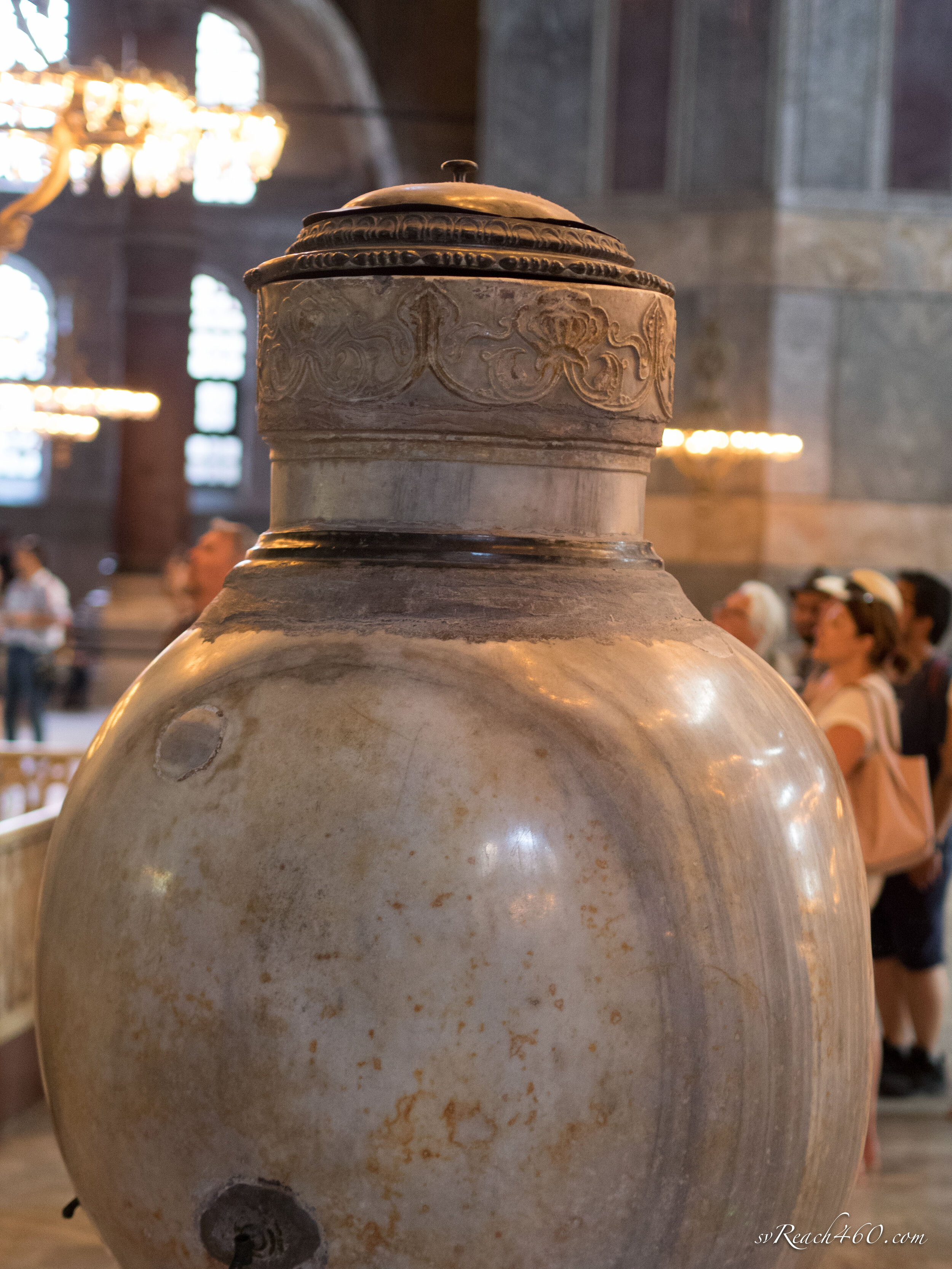
The Blue Mosque was my first visit to an active mosque and all women are required to cover their heads. It is known for its lapis blue tiles. The Underground Cistern was dried out for renovations, but the evidence of Roman aqueducts here and around the city were amazing feats of ancient industry.
The Grand Bazaar (along with the Spice Market) is at the pinnacle of markets ~ one of our favorite places to visit in any country! The New City was young and chic and could have passed for any city in Europe… after noting how youthful everyone looked our guide mentioned that over 50% of Turkey is under 30.
On the last day we visited Topkapi Palace, central headquarters of the Ottoman Sultans.
An amazing museum even with much of it closed for renovation, we saw many relics and visited the harem and library. It would have been a good place for a guide and even more time here, despite the crowds.

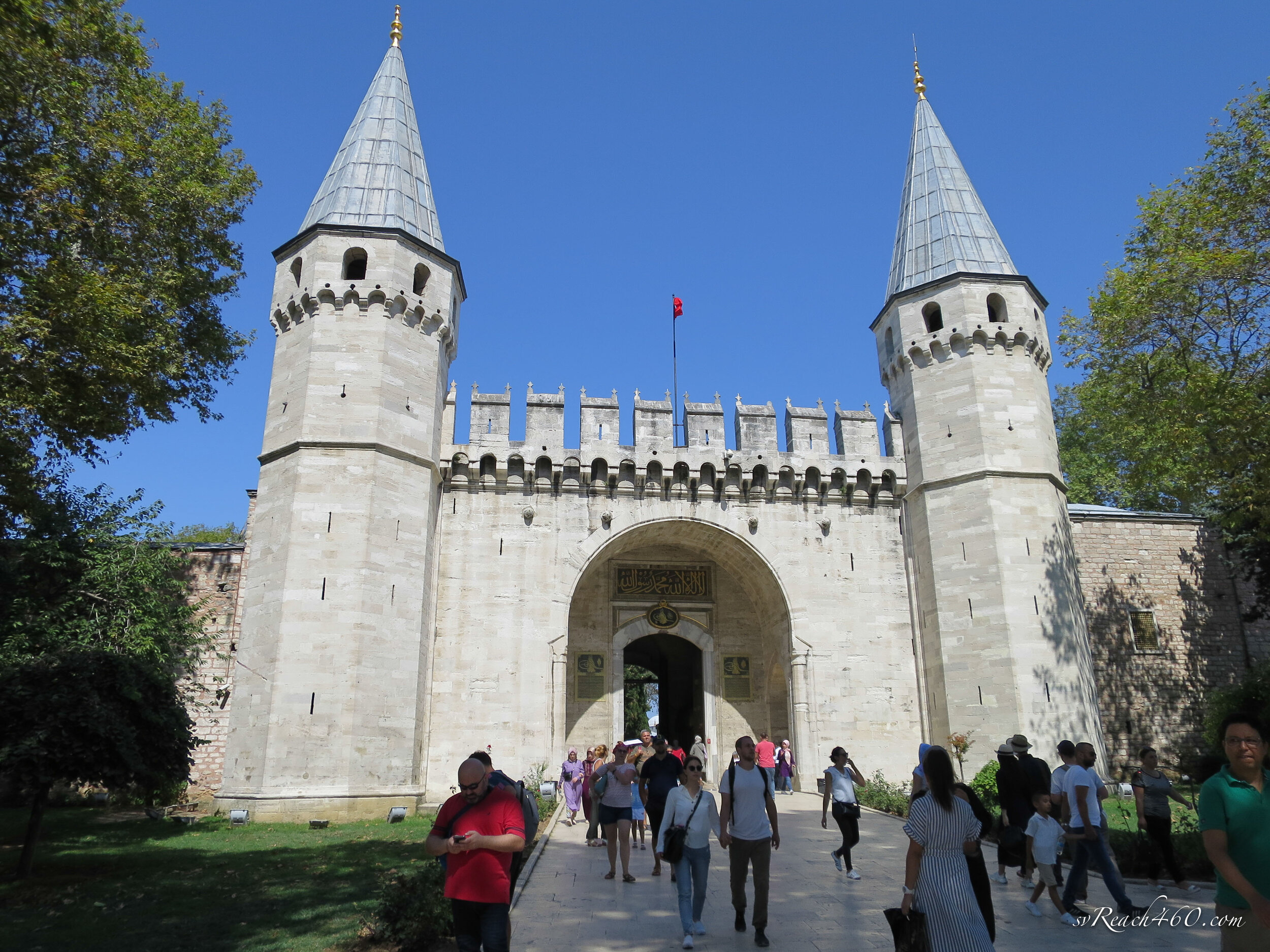
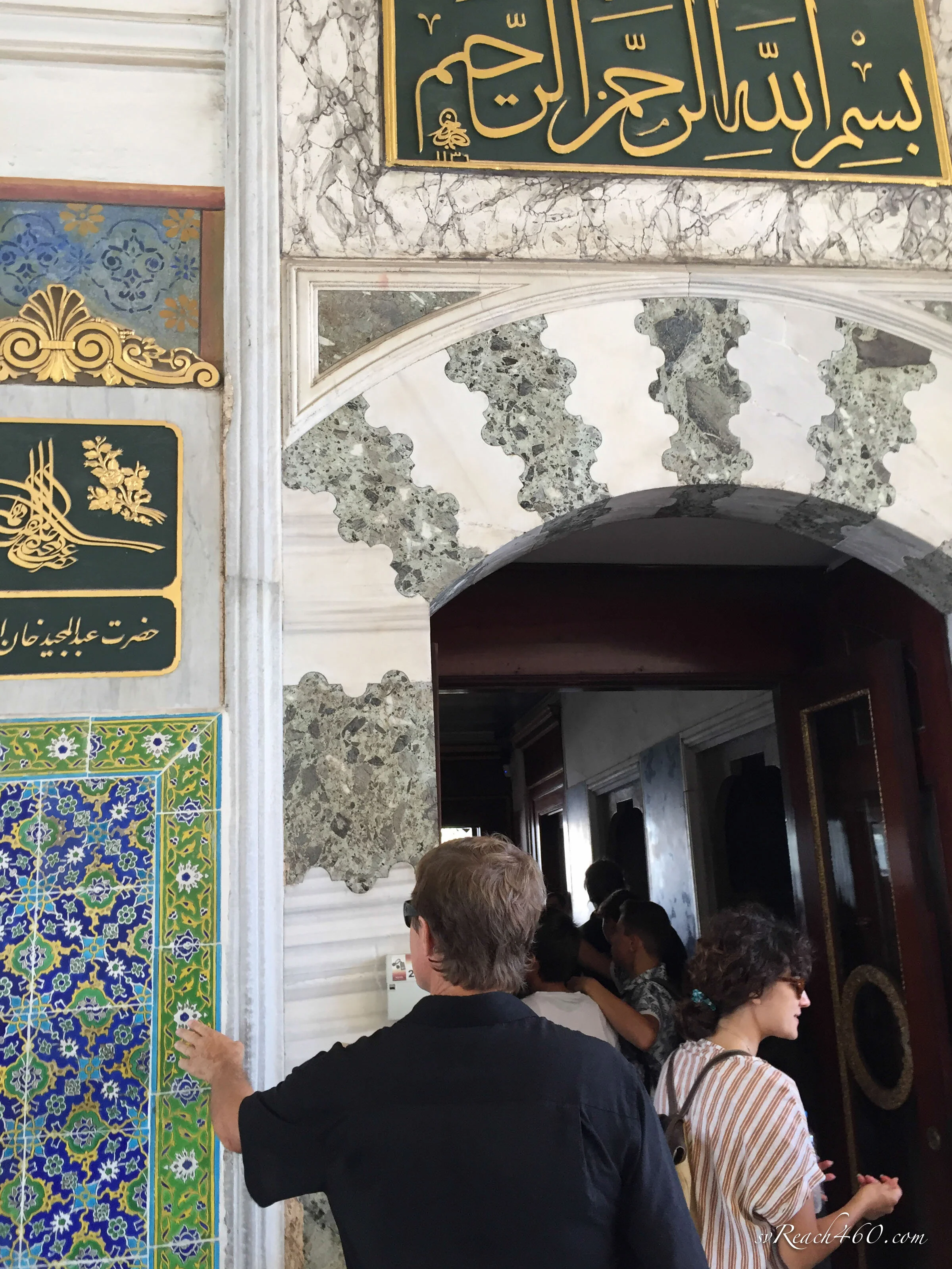
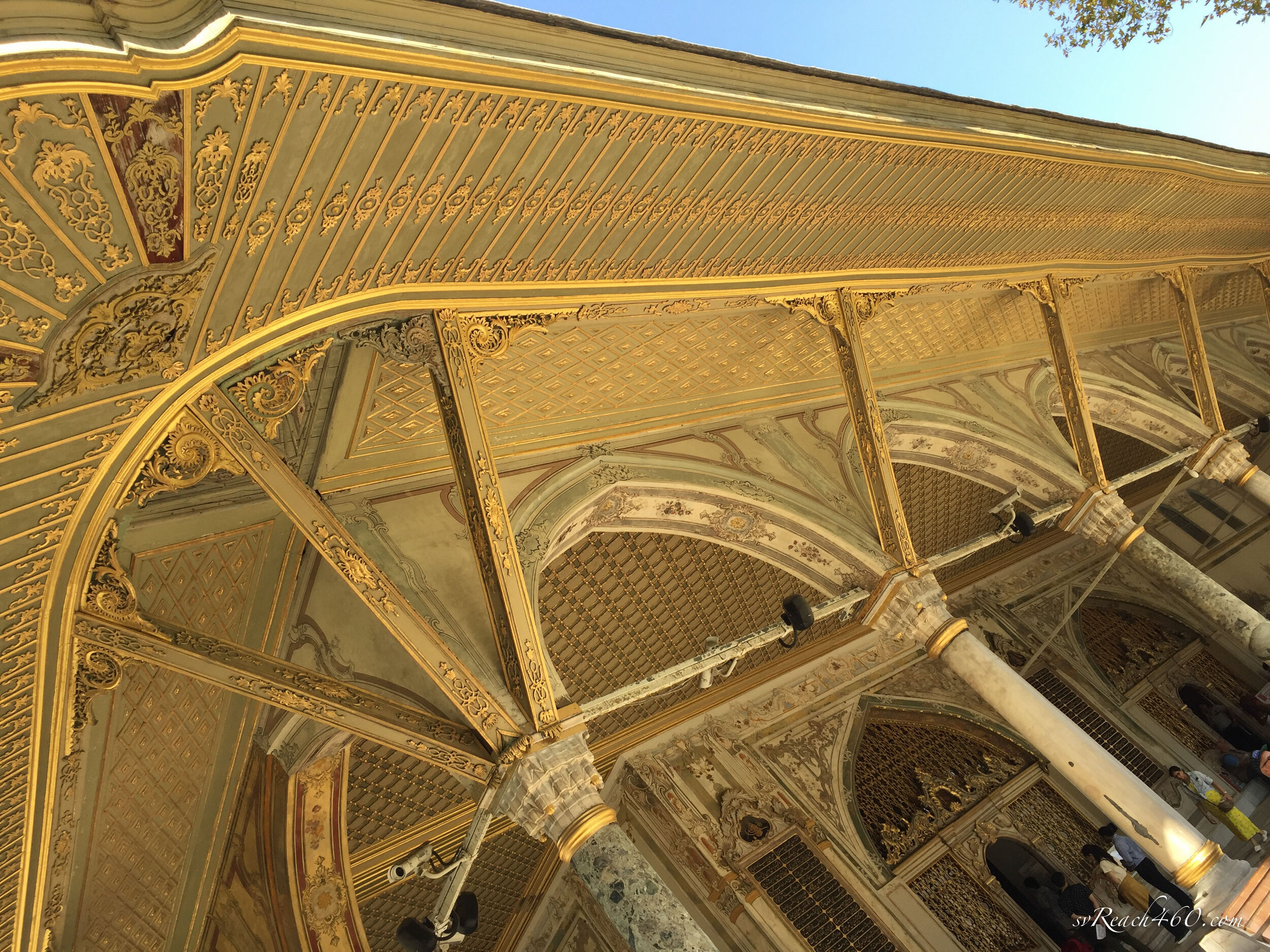

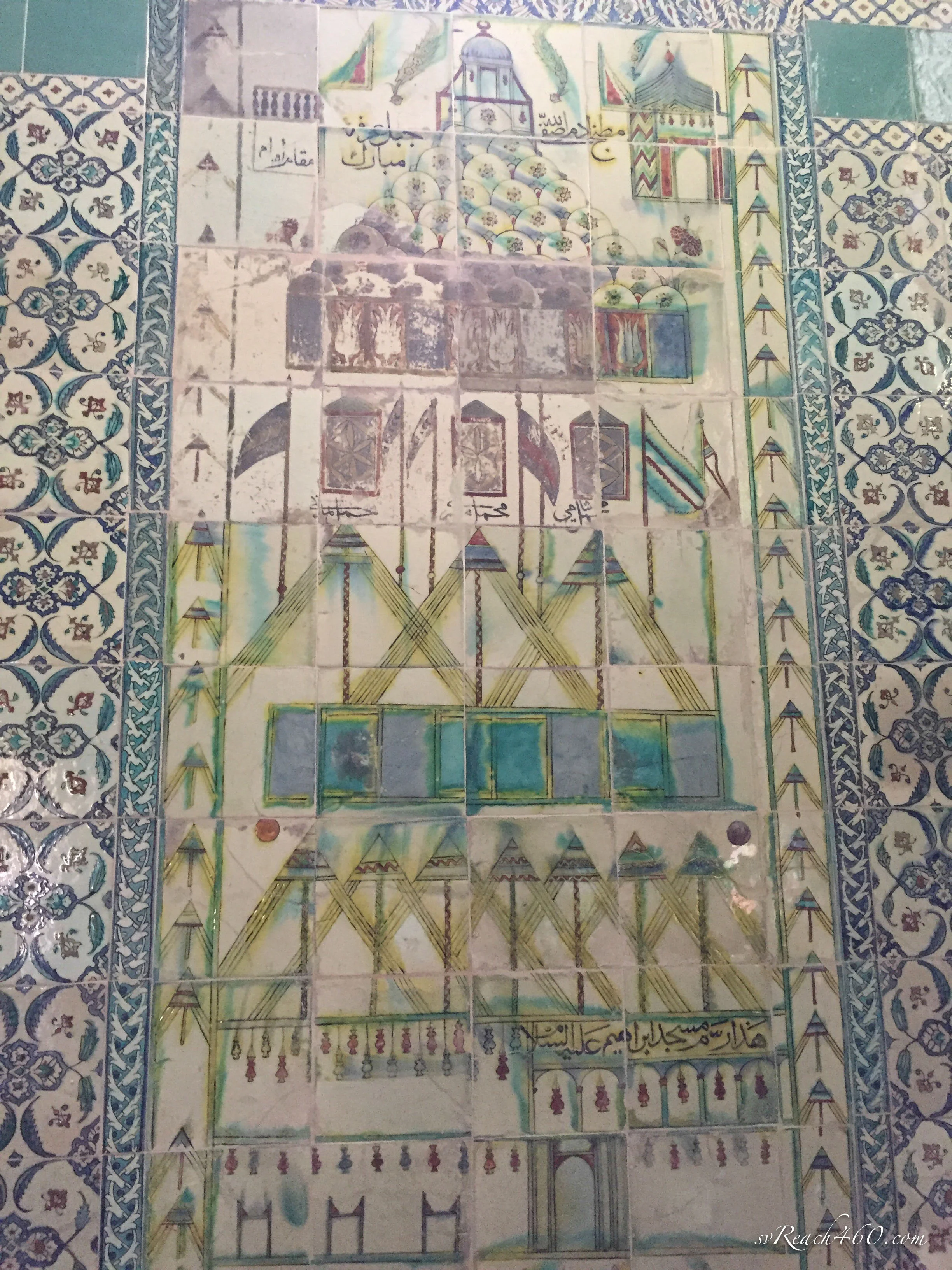
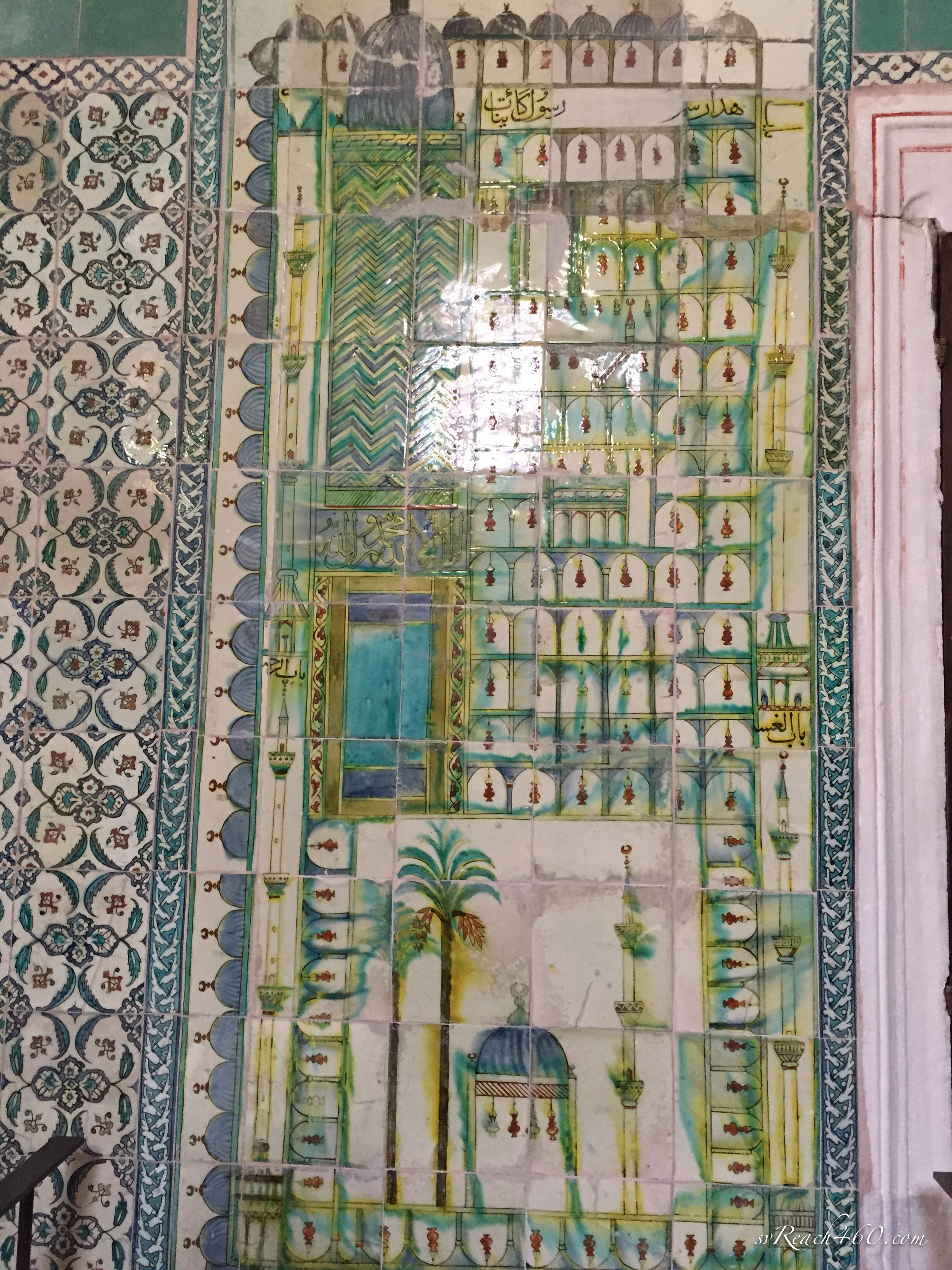
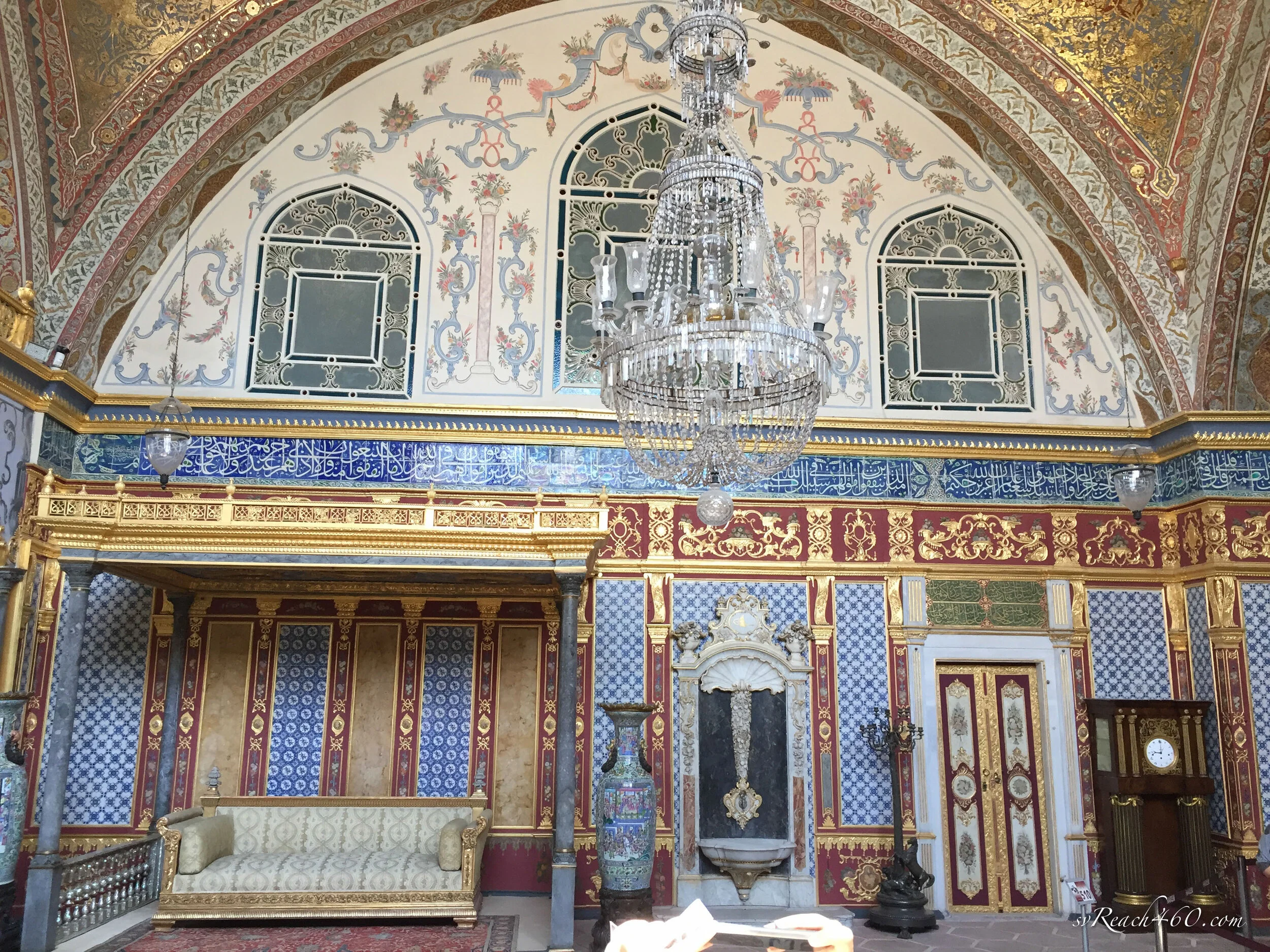
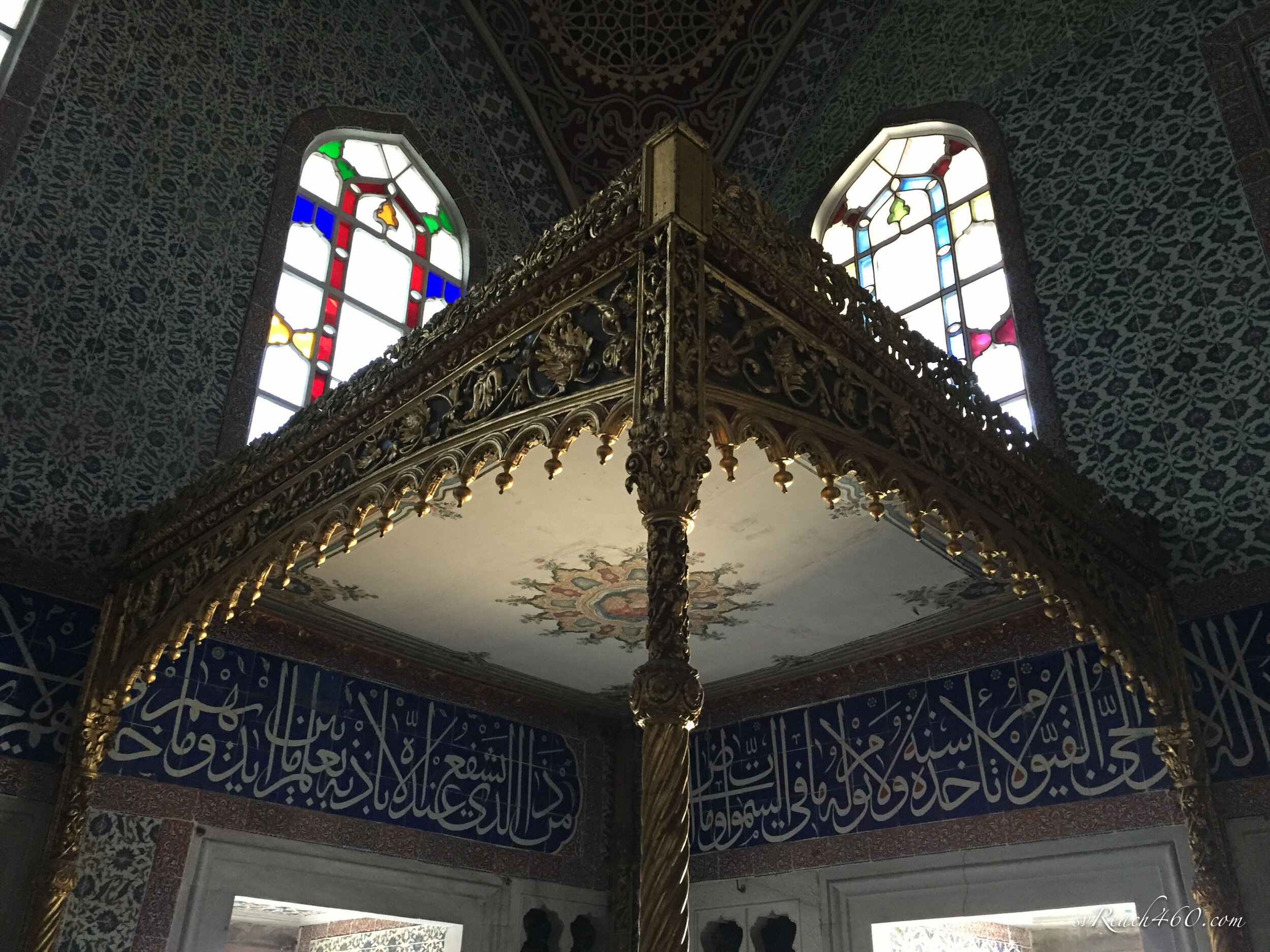
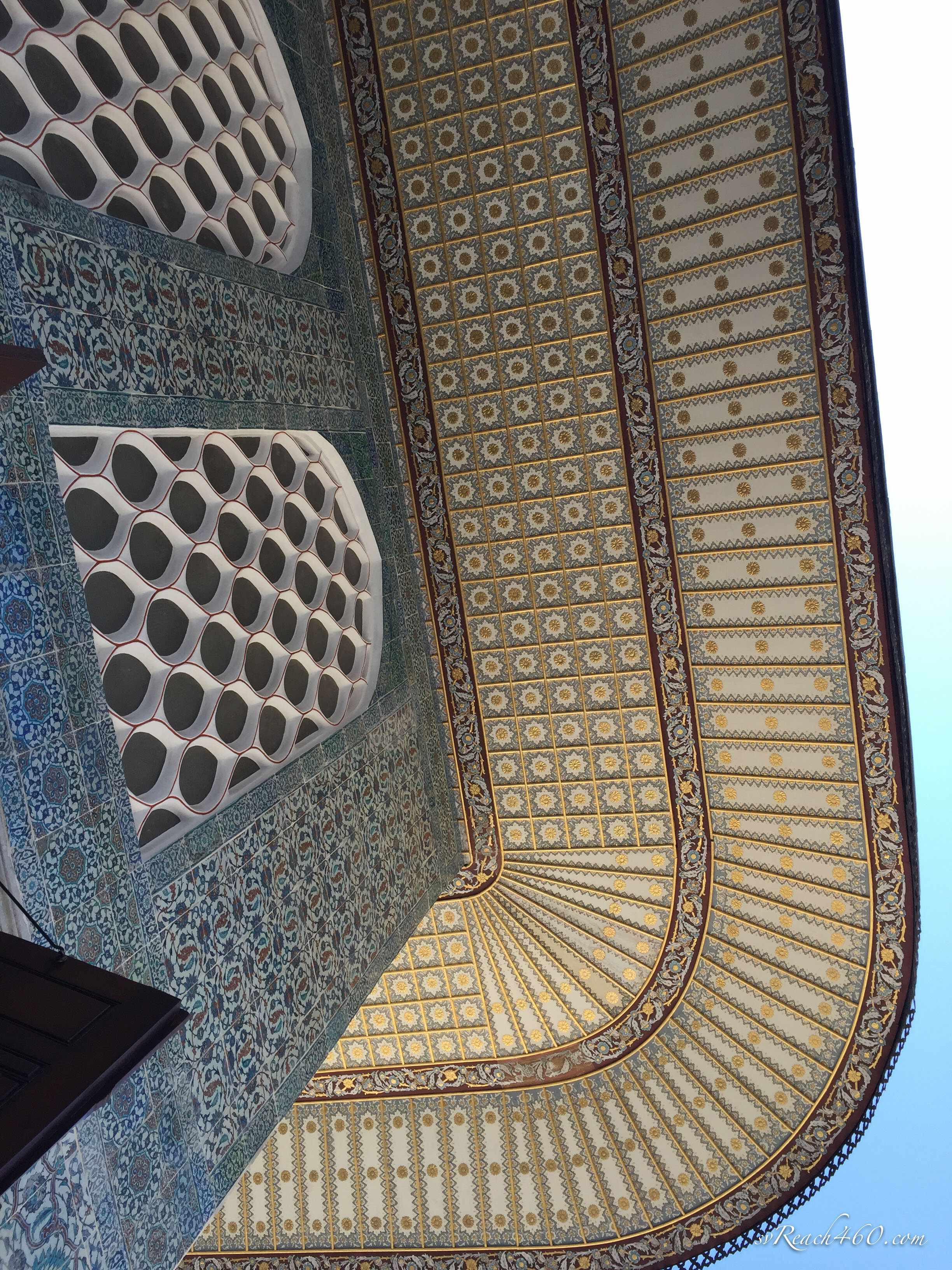
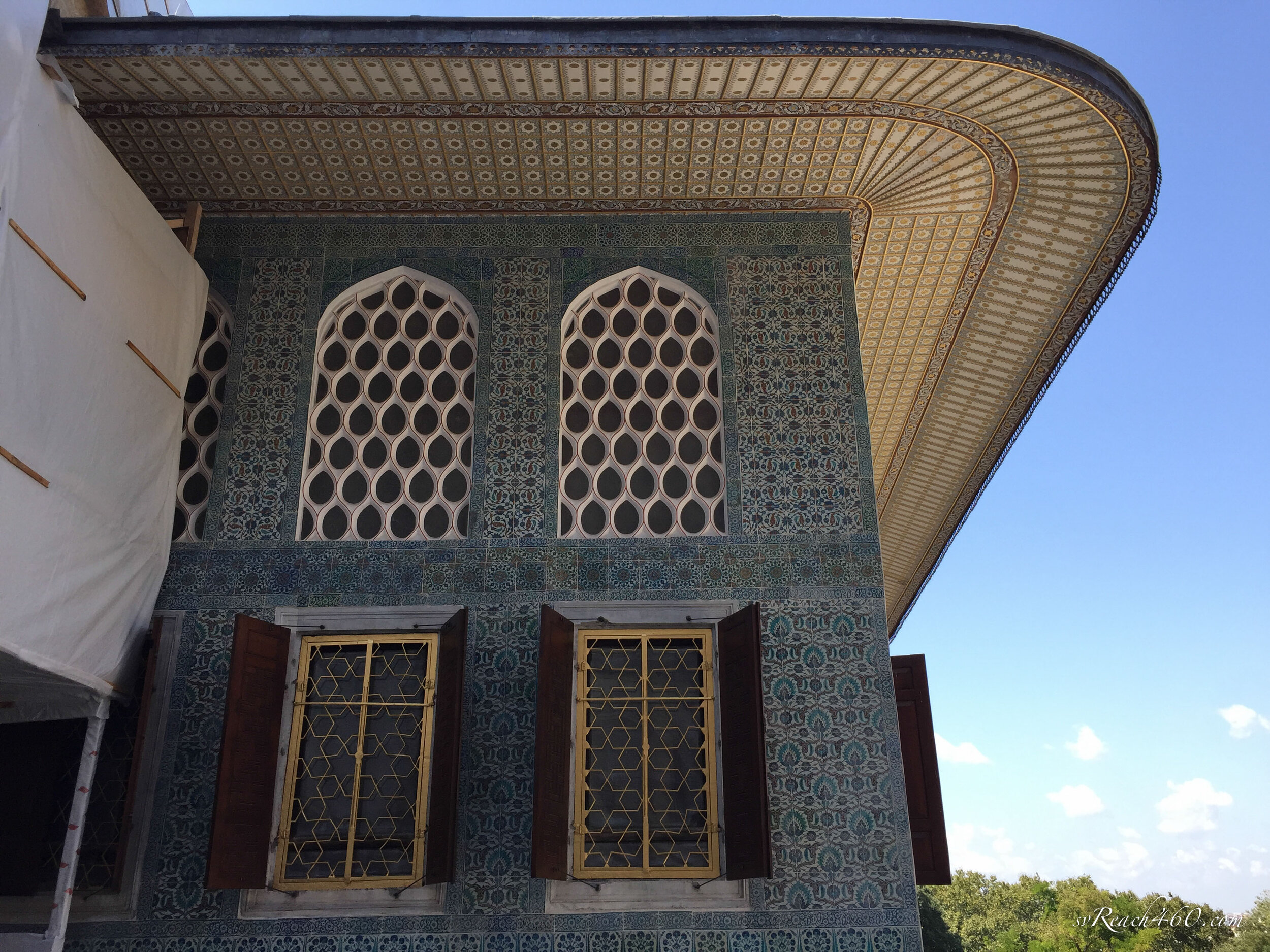
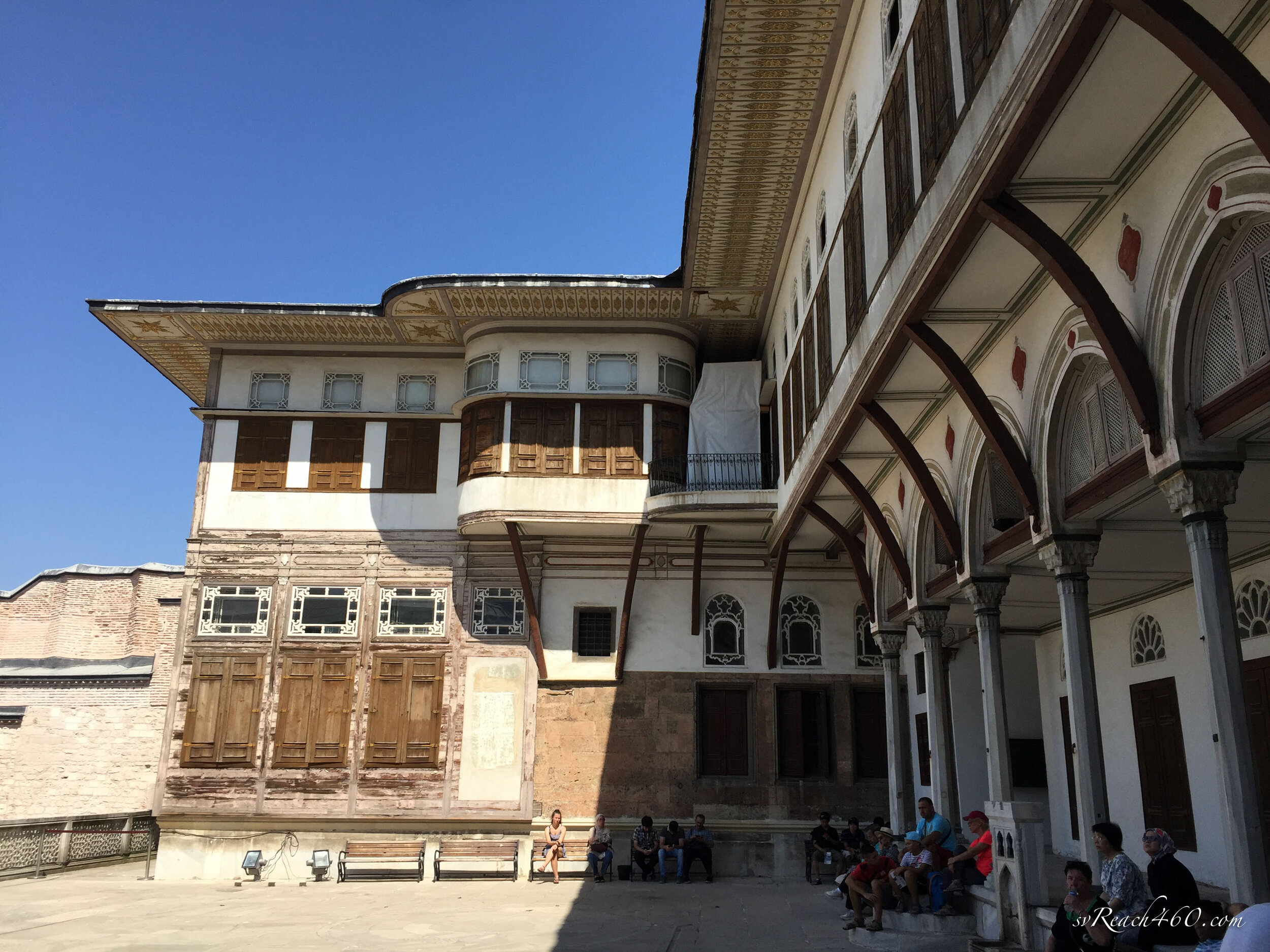
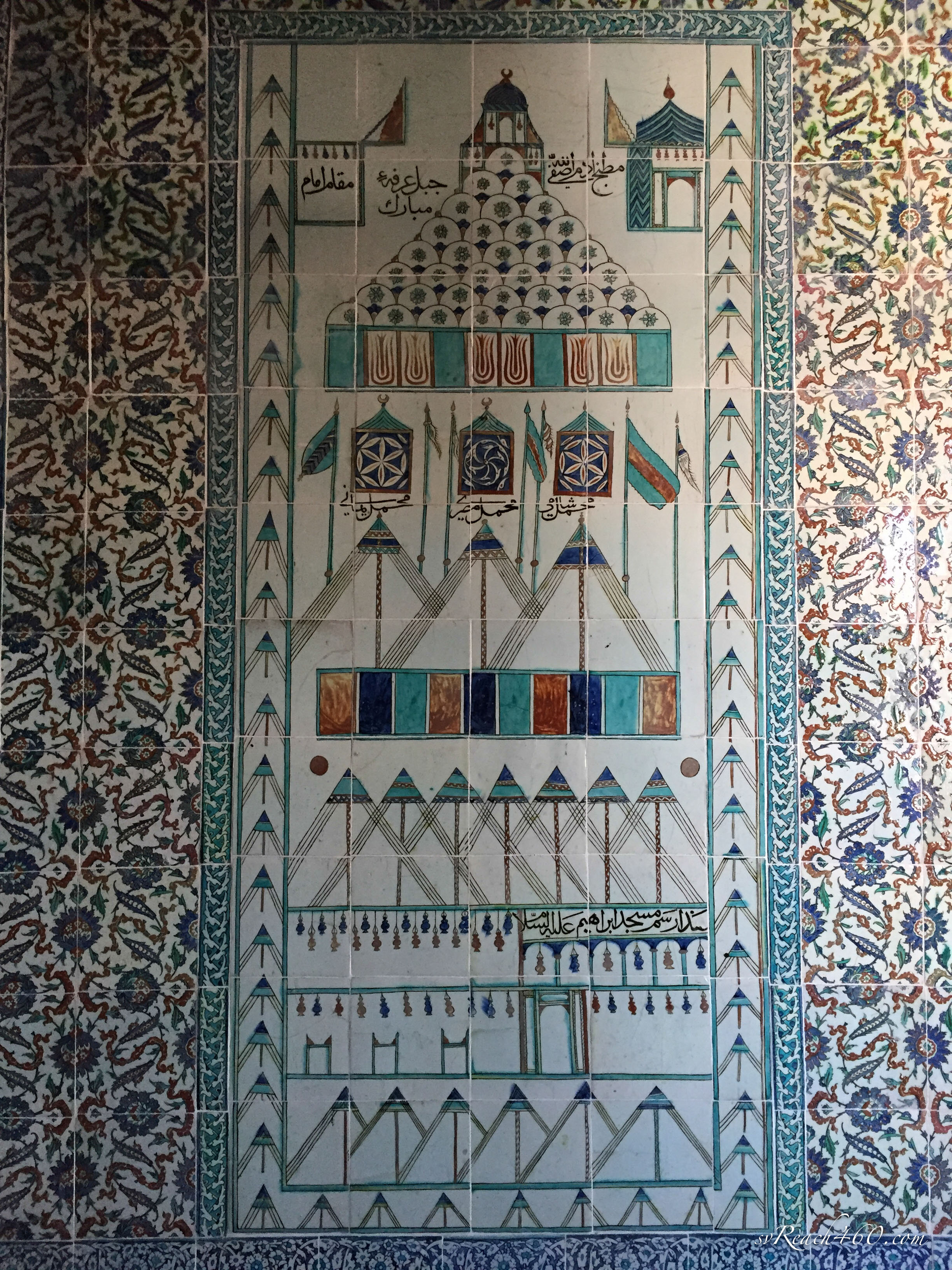
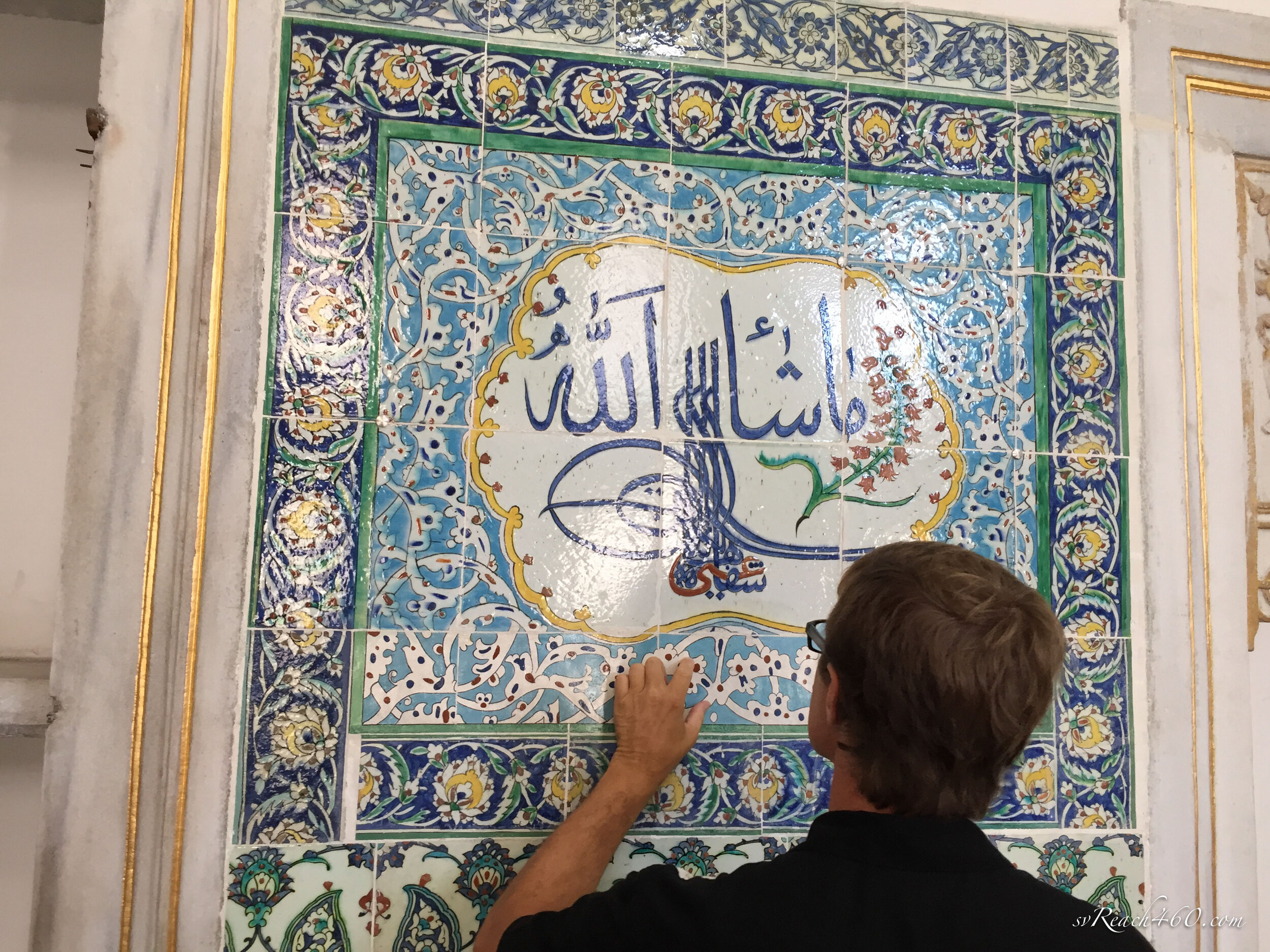

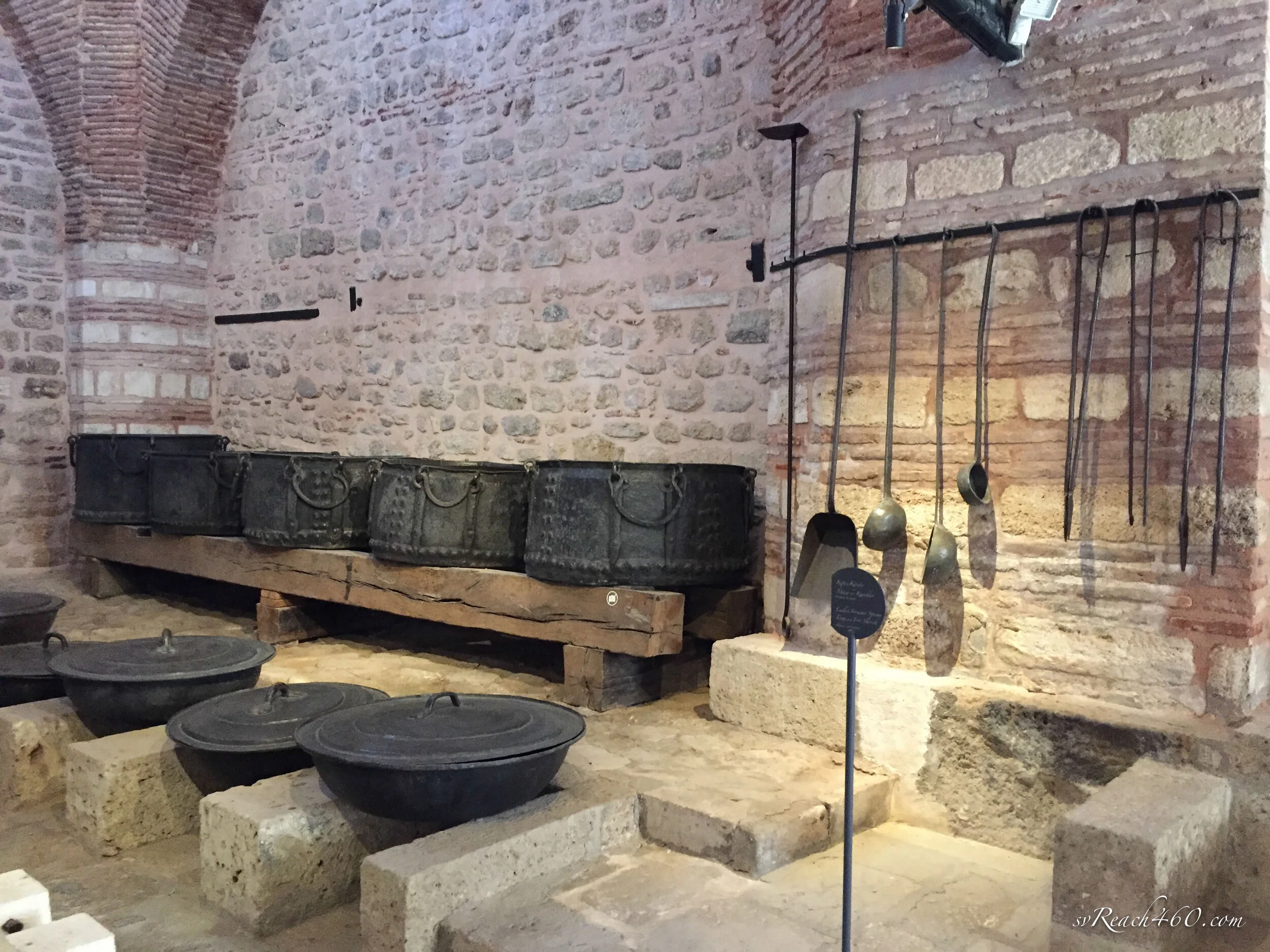
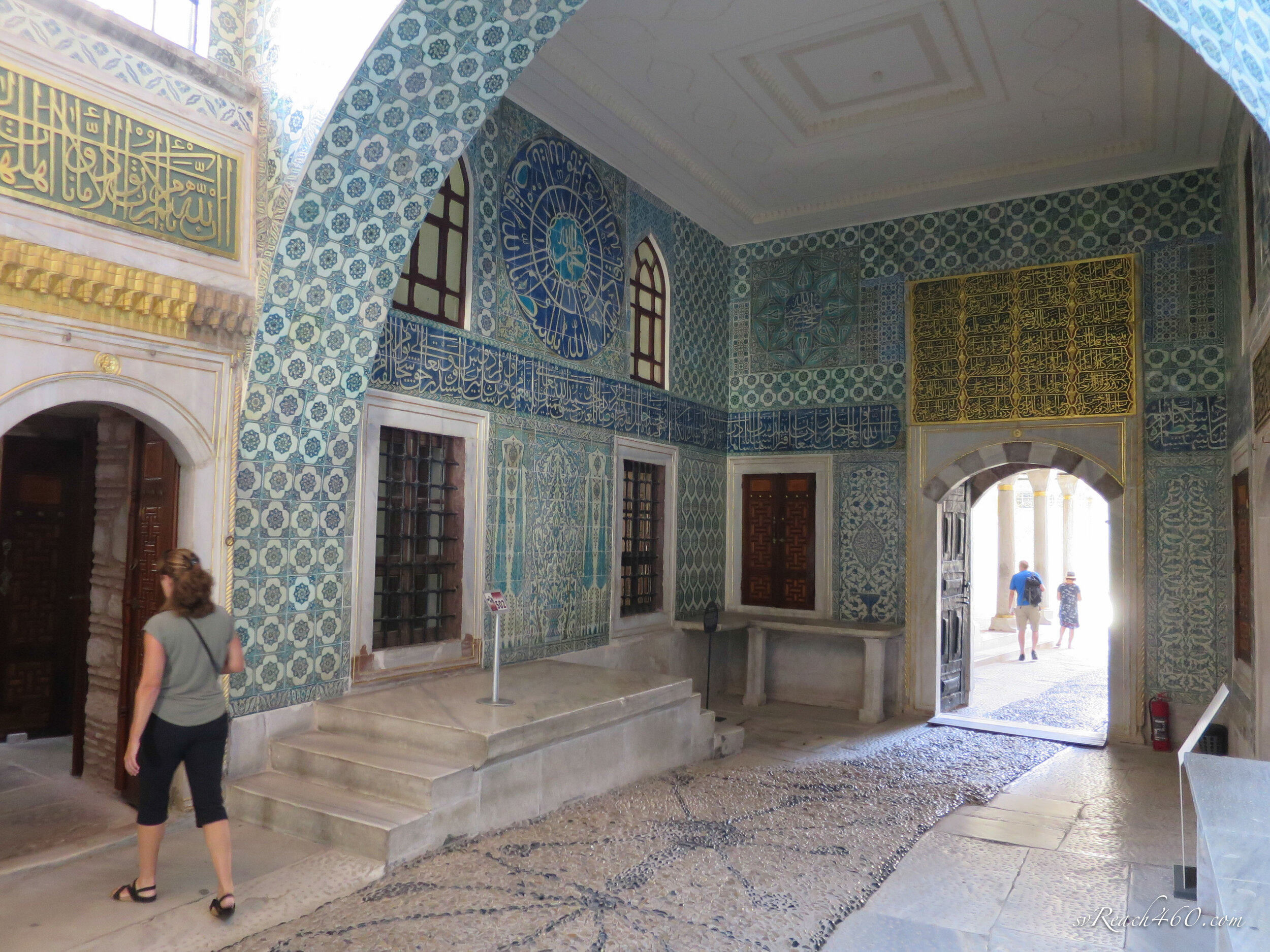


On the whole of our sailing and inland trip around Turkey, we encountered tourists from all over the world, China ranking at the top of that list, along with British, Middle Eastern, European and Russian visitors. Only twice did we see other people from the USA, as well as two US-flagged cruising boats. Everyone we met in Turkey was incredibly friendly, and we found them to be genuine, open and proud hosts of their country.




